|
The recent victories of the left in a number of municipalities and in elections for the Constitutional Convention have set the stage for a categorical rejection of the legacy of the Augusto Pinochet dictatorship and the building of a new Chile Daniel Jadue and Javiera Reyes Javiera Reyes, who is 31 years old, is the new mayor of the Santiago municipality of Lo Espejo in Chile. “I grew up in a home where [former President of Chile] Salvador Allende was always the good guy,” she told us, “and [military dictator] Augusto Pinochet was a tyrant. That marked my life.” Reyes’ comment reflects the old divides that have convulsed Chile’s politics since General Augusto Pinochet’s coup d’état against former President Salvador Allende of the Popular Unity coalition on September 11, 1973. Almost 50 years have gone by and yet Chile is still influenced by the legacy of that coup and of the Pinochet dictatorship, which lasted from 1973 to 1990. The May 2021 election that propelled Reyes to the mayor’s office in Lo Espejo also voted in a new Constitutional Convention to rewrite the Pinochet-era Constitution of 1980. Reyes’ victory and the gains made by the left alliance to shape the new Constitution suggest that it is Allende’s legacy that will shape the future and not that of Pinochet. Reyes is a member of the Communist Party of Chile (PCCh), which has rooted itself deeply in Chile’s society over the past 109 years. A PCCh leader--Daniel Jadue—will be the left’s candidate in the presidential election to be held in November 2021. Jadue, like Reyes, is a mayor of a municipality in Chile’s vast capital city of Santiago (a third of Chile’s 18 million people live in Santiago). In the May 2021 election, he was re-elected to the mayoralty of Recoleta, which he has governed since 2012. “There is a historical continuity in [PCCh’s] policy,” Jadue told us, “with the same horizon—updated, of course. No one is thinking of taking up statist projects [again] or socialism as it has been tried, but there is undoubtedly a historical continuity, and we are in one way or another participants in the dream of the people who in the 1970s sought to build a fairer country and who today seek exactly the same thing.” Vote without fearJadue leads in the November 2021 general election polls to replace Chile’s right-wing President Sebastián Piñera. Already, the press has started reporting about the various stances taken by Jadue during his life, particularly his association in the 1980s with Palestinian activism. The smearing of candidates of the left has become part of the electoral process in Latin America: the extreme-right press in Ecuador said that the left-leaning candidate for president, Andrés Arauz, had taken money from the Colombian left-wing guerrilla group ELN (National Liberation Army). The right-wing press also reported that Peru’s current presidential candidate Pedro Castillo, who is leading by a narrow margin, was similar to Sendero Luminoso (Shining Path), which is a guerilla insurgency in Peru. Jadue dismisses these claims made against the leftist candidates. “I want my entire record to be visible because I have nothing to hide,” Jadue said when he spoke to us. The communists participated in the elections held on May 15 and 16 under the slogan Vote Without Fear (Vota Sin Miedo). This slogan comes from a long history, which is part of the party’s legacy. The PCCh was banned, and its members were subjected to persecution over three periods: 1927-1931, 1948-1958, and 1973-1990. Pinochet’s dictatorship killed thousands of communists, including many key leaders. A swath of Chile’s society was gripped by fear brought about by Allende’s socialism, which was essentially a result of the hatred cultivated during Pinochet’s dictatorship. During this time, it takes courage to stand with the communists. Fear of communism has been diminishing, Reyes told us, because the PCCh elected officials have shown their constituents efficiency and compassion through their governance. Jadue’s Recoleta has become a showcase, with a municipal pharmacy, optical shop, bookstore and record store, open university, and real estate project operating free of any profit motive under Jadue’s vision as the mayor of the municipality. Javiera Reyes says that her communism is rooted in her “conception of a municipal government that starts with the universalization of rights and the capacity to create conditions for a good life.” The project of municipal socialism starts with “health, education and common spaces,” says Reyes. It is a project that is “democratic and open to the community.” Unlike Chile’s right-wing mayors, the communist mayors in Santiago such as Reyes, Jadue and Iraci Hassler (who was elected in May 2021 to the mayoralty of Santiago Centro) put the role of women at the core of their policies, including mechanisms to tackle violence against women. They want to create a society without fear in the broadest sense possible. Penguin RevolutionIn 2006, students across Chile protested the privatization of education. Their mass struggle was called the Penguin Revolution because of their black-and-white school uniforms. “The Penguin Revolution in 2006 was my first [introduction] to politics,” Reyes told us. Reyes and Hassler both participated in the massive protests in 2011 and 2013 over the inequalities that marked the secondary and university education in the country. Reyes joined the PCCh during that period. Other students who are currently Chilean politicians, such as Camila Vallejo and Karol Cariola as well as Hassler, were already communists. Student demonstrations came alongside manifestations and strikes by workers from all sectors. Their protests rattled the elite consensus, which since the fall of Pinochet in 1990 had not attempted to write a new Constitution for the country or bothered to formulate a path out of neoliberal suffocation. In October 2019, high school students protested the rise of fares for public transport. This wave of protests, which is ongoing, began to define Chile’s political life. With the slogan “it’s not 30 pesos, it’s 30 years,” the students have highlighted the need for a new Constitution. A new ChileChile has the lowest electoral participation rate in Latin America. After 17 years of dictatorship, trust in the state structures had practically disappeared. Voting was compulsory until 2009, although registration to vote was not compulsory. Young people did not register with the electoral service (Servel). The demand for a new constitution was a wake-up call for the youth. Data shows that more than half of Chile’s young people between 18 and 29 years of age voted in the election, with women constituting 52.9% of the voters. Women and young people will shape the Constitutional Convention, just as women and young women in particular—such as Reyes and Hassler—have taken over the mayors’ offices. The 155-member Constitutional Convention is filled with young people like Reyes and Hassler, a sizable section of the left. The right wing was unable to win one-third of the convention, which would have given it veto power. This means that the new Constitution, which will be drafted in the next nine months, will have a progressive character. On July 18, Jadue faces a primary against Gabriel Boric, another student leader and now a leader of the Frente Amplio (Broad Front). All indications suggest that Jadue will prevail over Boric and then meet the candidates of the right in November. He will be the third communist to run for the presidency, following Elías Lafertte Gaviño (1931 and 1932) and Gladys Marín (1999). If the polls are accurate, Jadue will be the first communist president of Chile. This article was produced by Globetrotter. AuthorVijay Prashad is an Indian historian, editor and journalist. He is a writing fellow and chief correspondent at Globetrotter. He is the chief editor of LeftWord Books and the director of Tricontinental: Institute for Social Research. He is a senior non-resident fellow at Chongyang Institute for Financial Studies, Renmin University of China. He has written more than 20 books, including The Darker Nations and The Poorer Nations. His latest book is Washington Bullets, with an introduction by Evo Morales Ayma. This article was republished from People's Dispatch. Archives June 2021
0 Comments
In a popular booklet by Leo Panitch and Sam Gindin (P&G), "Global Capitalism and American Empire," Lenin’ theory of imperialism comes in for some heavy criticism. Originally published in 2004 the theories propounded in this booklet (available on Amazon) are still popular with many on the left who feel that Lenin is too dated to be a useful guide to 21st century imperialist practices. The following is an attempt to show the continued relevance of Lenin’s “Imperialism,The Highest Stage of Capitalism." The authors, in a section entitled "Rethinking Imperialism," caution against considering "globalization as inevitable and irreversible." They quote the “Communist Manifesto” as follows: "The need of a constantly expanding market for its products chases the bourgeoisie over the whole surface of the globe." Curiously, they think Marx and Engels were exhibiting "prescience" when they wrote this – which they call a description "of a future that strongly matches our present." But Marx and Engels were not prophesying the future. They were describing the historical reality of their own day – so manifest, already by 1848, was the imperial drive of capitalism. Incidentally, the fact that P&G can take an 1848 description of capitalism for a future prediction strongly matching the present explains one of the reasons why the classics of Marxism have not become outdated. P&G look at history and discern three "great structural crises" in capitalism: 1) Post 1870s colonial rivalry leading to World War I; 2) the Great Depression, leading to World War II; 3) globalization rapidly advancing due to economic problems of the 1970s. Because the contours of these crises and the results produced by them could not be predicted in advance, P&G contend that globalization is "neither inevitable" re: classical Marxism, "nor impossible to sustain." Since Lenin’s theory of imperialism implies the opposite conclusions, the authors think his theory is mistaken. Let’s take a closer look. Lenin’s theory, according to the authors, made the "fundamental mistake" of assuming "capitalist economic stages and crises." Lenin was "defective" in his "historical reading of imperialism" as well as his understanding of capital accumulation and, lastly, his view that "inter-imperialist rivalry" was "an immutable law of capitalist globalization." After having asserted all this, P&G concluded, contrary to Lenin’s ideas, "A distinctive capitalist version of imperialism did not suddenly arrive with the so-called monopoly or finance-capital stage of capitalism...." P&G accuse Lenin of "reductionism" in equating monopoly capitalism with imperialism. They maintain that "capitalism" and "imperialism" are independent of each other ("two distinct concepts"). History tells them that imperialism can be traced further back than the 1870s: that it goes at least as far back as mercantilism. This is just playing with words. The Romans were imperialists as far as that goes. Lenin was not discussing some universal ahistorical "imperialism" but the specific historical imperialism of his own epoch based on the domination of financial capital. Lenin saw that after 1873 (as a result of crises) monopoly capitalism began to consolidate and replace so-called competitive capitalism: the imperialism of Lenin’s days was a direct outgrowth of this new type, a higher type in his words, of capitalism. We can, without accusing Lenin of having a defective historical understanding, agree with P&G that it is false to maintain that "the nature of modern imperialism was once and for all determined in the kinds of rivalries attending the stage of industrial concentration and financialization associated with turn-of-the [19th]-century monopoly capital." But of course they are correct. No Marxist, especially Lenin, would maintain history gets frozen at a particular stage of its development. Lenin says of his definition of imperialism that it is convenient to sum up the principle aspects of the phenomena he is describing but "nevertheless inadequate" because all definitions [and theories based on them] are "conditional and relative" because all historical social events and formations are in flux. P&G would have a better grasp of Lenin’s theory if they understood it in its own terms and did not misrepresent it as a "once and for all" statement of the nature of imperialism. Their mistake is in thinking Lenin’s view of imperialism in terms of an evolution of economic stages and crises within capitalism was itself a mistake. P&G also deny that imperialism is the "highest stage of capitalism." They do this because they are historically situated in the 21st century phase of "globalization" and Lenin’s theory, now over a century old, dealt with the capitalism of his era. Therefore they maintain that what he was observing was "a relatively early phase of capitalism." They could have saved themselves a lot of unnecessary Lenin criticism had they been more historical themselves. Capitalism is not going to go back to a previous stage of independent national capitalism. It will continue to internationalize itself through the process we call "globalization" and what Lenin was describing was a relatively early phase of the highest stage of capitalism. What we call "globalization" is just a euphemism for the domination of the world by a handful of powerful states dominated by financial and monopoly elites that continue to plunder the world in their own interests (as the crisis of 2008 showed). Lenin saw that this system was really a transitional system to an even higher form of economic development – namely socialism. This transitional nature of the "highest stage of capitalism" is presently obscured by the temporary world dominance of US monopoly capitalism. We should be absolutely clear about this, Lenin meant by "highest stage" not that the historical features of capitalism in his epoch were fixed for all (capitalist) time, as P&G seem to imply, but only that capitalism had, as capitalism, no higher stage to evolve into that would renounce the need to export capital (finance capital especially) and find markets abroad. Globalization is just the latest stage of monopoly capitalism as it has transformed itself and developed since the days of Lenin, but it is still the logical outcome of the situation described by Marx and Engels in 1848. It is also, I think, an error to hold, as do P&G, that Lenin and like minded theorists of the past did not recognize the role of the state in relation to the market: that they failed "to appreciate the crucial role of the state in making ‘free markets’ possible and then to make them work." A strange accusation to make against someone who viewed the state as the executive committee of the bourgeoisie and thought that it functioned to further the interests of the capitalist class and its struggle to, among other things, build, acquire, and maintain markets both domestic and foreign. It is true that Lenin could not foresee the specific historical development that has resulted in "neoliberal" globalization dominated by one "superpower." But it is also true that the theory laid out by Lenin in “Imperialism the Highest Stage of Capitalism” remains the best starting point for any attempt to understand the contemporary world. Author Archives June 2021 6/15/2021 Critique of the Misunderstandings Concerning Marx's Base-Superstructure Spatial Metaphor. By: Carlos L. GarridoRead NowKarl Marx’s 1859 preface to A Contribution to the Critique of Political Economy[i] represents one of the clearest reflections of the development of his and Engels’ thought. In what amounts to a short four and a half pages, Marx concisely exhibits the resulting conclusions of more than two decades worth of studies – from his first encounter with the economic question in 1842-3 via the polemic over landed property and forest theft, to the latest decade and a half painfully spent in the British Museum in London (except for the short interruption of the 48 revolutions) divided between the political writings for the New York Tribune and his economic studies for this text and for Capital, which this text is a dress rehearsal for. Although endless work can be done on these four and a half pages, I would like to limit myself to a clarification of the famed and famously misinterpreted spatial metaphor of the economic foundation and the political-legal superstructure. The most common misunderstanding of this metaphor posits that the economic foundation absolutely determines the ideological superstructure. In this view, all legal, political, philosophical, and religious structures and forms of consciousness are reducible to a reflection of the present economic situation. This perspective, held primarily by various vulgar Marxists of the second international and by critics of Marx (esp. the Weberian conception of Marxism), has come to be labeled as economically reductive and subsequently critiqued by dozens of 20th century Marxist, e.g., Althusser, Gramsci, Lukács, Lenin. On the other hand, as a reaction to this economic reductionism, some Marxists have rejected the conception that the economic foundation influences the superstructure any more than the superstructure influences the economic. This perspective holds that there is a mutual conditioning of the two spheres, a dialectical interpenetrative relation between the opposing poles of the economic foundation and the ideological superstructure, where, as Marcuse states, “ideology comes to be embodied in the process of production itself.”[ii] The various reactions to economic determinism may take different forms, generally, what they share is a refusal to describe the influence of the economic realm on the ideological as ‘determinist’ – unless couched within a framework that equalizes the determination of the superstructure on the economic in a dialectical fancy of interpenetrative determination. Funny enough, Marx’s preface presents the relation between the economic and the superstructural with an ambiguity which seems to foreshadow both misinterpretations. First, he states that “the mode of production of material life conditions the general process of social, political and intellectual life,” then that “it is not the consciousness of men that determines their existence, but their social existence that determines their consciousness” (KM, 20-21). These two sentences chronologically follow each other but refer to two different (albeit synonymous) concepts for describing the relationship between material life and the ideological superstructure, viz., conditions and determines. Although synonymous, ‘conditions’ carries conceptually an openness for a less rigid affecting relationship. To say that something conditions can range from meaning that it influences to determines. Given the conceptual ambiguity, it would seem that the economic reductionist group would read conditions qua determines while the group which reacts to the reductionists would read conditions qua influences. Between this binary of blue and red pill, can we ask for another color? I think Marx offers us blue and red for us to make purple, indubitably the most beautiful color keeping with Plato. In essence, both misunderstandings are partly correct – the economic foundation determines the superstructure, but the superstructure can also influence the economic foundation. As Althusser noted,[iii] in a seemingly contradictory manner the superstructure is determined by the economic base while nonetheless sustaining a “relative autonomy” in relation to it, effectively allowing it to have “reciprocal action” upon it. It is important to note that this Althusserian formulation is actually a reconceptualization of how Engels dealt with the issue in a 1890 letter response to Conrad Schmidt. In this letter from an aged Engels, we find an elucidation for this often-misunderstood spatial metaphor, and consequently, a clarification of the scope of rigidity the concept of determination carries in his and Marx’s works. This letter, along with the others with which it was jointly published as Engels on Historical Materialism, gives a fascinating insight into how determination ought to be read in the Marxist tradition. Before Engels deals with the question of the economic foundation’s determination of the superstructure, he examines production’s (as in the moment, the “point of departure,”[iv] not the whole) determinative relation to the moment of exchange, and the moment of exchange’s determinative relation to the newly separated money market. He says, Production is in the last instance the decisive factor. However, as soon as the commercial exchange of commodities separates itself from actual production it follows a movement which, although as a whole still dominated by production, in turn obeys in its particular details and within the sphere of its general dependence, its own laws. The same relational function of determination/conditioning is sustained with the economic foundation and the political superstructure (and afterwards with the legal, philosophical, and scientific aspects of the superstructure): While the new independent power must, on the whole, submit to the movement of production, in turn it also reacts, by virtue of its immanent, i.e., its once transmitted but gradually developed relative independence, upon the conditions and course of production. There is a reciprocity between two unequal forces; on the one side, the economic movement; on the other, the new political power which strives for the greatest possible independence and which having once arisen is endowed with its own movement. The economic movement, upon the whole, asserts itself but it is affected by the reaction of the relatively independent political movement which it itself had set up. This political movement is on the one hand the state power, on the other, the opposition which comes to life at the same time with it. These passages not only demonstrate with utmost clarity how a determinative relation can sustain within it a relative independence (what Althusser later calls ‘relative autonomy’) which allows the determined variable a capacity to react and influence that which determines it, but in demonstrating the translatability into various spheres of how this relationship functions, Engels is providing a general formulative understanding of the question on determination. In essence, the variable which determines (or conditions) sets the parameters for the determined variable, such that the determined variable presupposes the other’s boundaries for its activity. Concretely, the superstructure presupposes a specific economic foundation which has set a historical boundary on it. Within this determined space, the superstructure is relatively autonomous, enough so that it becomes capable of emergent qualities which can have a reactive or “counter-active influence” upon that which determines it. Philosophically, the position can be labeled as compatibilist, i.e., there is a soft determination which allows for the conditioned autonomous expression of that which is determined. Therefore, although the determination of the economic foundation on the superstructure is not absolute (hard determinism), neither is it nonexistent. Engels critiques both positions: he argues it is “altogether pedantic to seek economic causes for all” things, asserting that in doing so Paul Barth is “contending against windmills,” while also criticizing the position which altogether either denies determination or places the primary source of determination on the wrong variable as participating in “ideological conceptions” whereby the real relationship is inverted and placed on its head, making one take the “effect for the cause.” Why do these misunderstandings arise? As the conclusion in Engels’ letter states, What all these gentlemen lack is dialectics. All they ever see is cause here, effect there. They do not at all see that this is a bare abstraction; that in the real world such metaphysical polar opposites exist only in crises; that the whole great process develops itself in the form of reciprocal action, to be sure of very unequal forces, in which the economic movement is far and away the strongest, most primary and decisive. They do not see that here nothing is absolute and everything relative. For them Hegel has never existed. Yours, etc Notes [i] All subsequent quotes from this text will be from this edition: Marx, Karl. A Contribution to the Critique of Political Economy. (International Publishers, 1999). [ii] Marcuse, Herbert. One-Dimensional Man. (Beacon Press, 1966), p. 189. [iii] In his essay Ideology and Ideological State Apparatuses [iv] In the appendix to the above edition of A Contribution to the Critique of Political Economy, a drafted introduction called ‘Production, Consumption, Distribution, Exchange (Circulation)’ provides an analysis of the relation each of the four moments has with the other. Here he calls production the “moment of departure.” This draft is included in the introduction of a series of manuscripts now known as Grundrisse. AuthorCarlos L. Garrido is a philosophy graduate student and assistant at Southern Illinois University, Carbondale. His specialization is in Marxist philosophy and the history of American socialist thought (esp. early 19th century). He is an editorial board member and co-founder of Midwestern Marx and the Journal of American Socialist Studies. Archives June 2021 "Revolution is, unfortunately, not made with fastings. Revolutionaries from all parts of the world must choose between being the victims of violence or using it. If one does not wish to see one's spirit and one's intelligence serving brute force, one must forcibly resolve to put brute force under the subservience of intelligence and the spirit." The author of this passage, written more than forty years ago, was Jose Carlos Mariátegui, founder of the Peruvian Communist Party, a physically feeble man of unstable health who combined a powerful, cold and lucid intelligence with an exquisite artistic sensitiveness and an incorruptible revolutionary morale. His short life, ended before he was thirty-five, elapsed between long periods of hospitalization and poverty. Jail and the continuous humiliations he suffered, did not deter him from accomplishing his life's work, which, given the circumstances he had to cope with, does not cease to stimulate today more and more amazement, as well as the increased attention and admiration of revolutionaries the world over. Suffering from the time he was seven years old from an incipient physical disability which denied him a normal childhood, and when called upon, helping his mother out by working as proofreader in a publishing house, his career as a revolutionary writer began when an army man cowardly attacked him for the ideas he expressed in a newspaper article. The sum total of Mariátegui's work constitutes an ideological struggle against reformism, first and foremost. His work Defense of Marxism is imbued with this spirit, and the very founding of the Peruvian Communist Party denounces "domesticated socialism": "The ideology we adopt," states Mariátegui in his thesis of affiliation with the Third Internationale, "is that of militant revolutionary Marxism-Leninism, a doctrine which we wholly and unreservedly adhere to in its philosophical, political and socio-economic aspects. The methods we uphold are those of orthodox revolutionary socialism. We not only rebuke in all their forms the methods and tendencies of the Second Internationale, but oppose them actively." In this document he did no more than ratify before the world what he had previously made known in a magazine: "The political sector with which I can never come to terms is the other one: that of mediocre reformism, of domesticated socialism, of Pharisaical democracy. Moreover, if the revolution demands violence, authority, discipline, I am all for violence, authority, discipline. I accept them in block form, with all their horrors, without any cowardly reserves." Between 1919 and 1923 Mariátegui made a tour of Europe. It was in Italy where his thought ripened and became richer. In addition to his admiration for the theorist of violence, the revolutionary trade-unionist George Sorel, there was his passion for Gobetti, Labriola, and he found in Croce a friend with whom he could enter into controversy. Mariategui was an eyewitness to the great social upheavals which foreshadowed the triumph of Nazism and the reformist preachings of class collaborationism. On his return to Peru, in a work on the world crisis and on the role that the Peruvian proletariat ought to play in it, he wrote: "..The proletarian forces are divided in two great groupings: reformists and revolutionaries. "There is the faction of those who want to bring about socialism by collaborating politically with the bourgeoisie; and the faction of those who want to bring about socialism by conquering for the proletariat in its entirety political power." To this global crisis, Mariátegui answered in a vein both aggressive and critical: "I am of the same opinion as those who believe that humanity is going through a revolutionary period. And I am convinced of the imminent decline of all the social-democratic theses, of all the reformist theses and of all the evolutionist theses." In another article, he denounced the impotence of reformism to avoid war: "The thought of Lasallean social-democracy guided the Second Internationale; that is why it proved itself impotent before war. Its leaders and sectional corps had become accustomed to a reformist and democratic attitude and resistance to war demanded a revolutionary attitude." Defense of Marxism (a work from which we publish here one of its most interesting chapters) constitutes a rebuttal of Beyond Marxism by the Belgian revisionist Henri de Man, and of other social-democratic theorists, such as Vandervelde, a rebuttal which arises from revolutionary tenets and from practical positions. Mariátegui, who is brought to task in a controversy over principles, is equally removed from all sectarian and dogmatic standpoints, because he understood that Marxism was never "a set of principles embodying rigid consequences, similar in all historical climes and all social latitudes." "We must strip ourselves radically of all the old dogmatisms," he wrote, "of all the discredited prejudices and archaic superstitions." It is the correct interpretation of Marxist theory that makes him state directly: "Marx is not present in spirit in all his so-called disciples and heirs. Those who have carried on his ideas are not the pedantic German professors of the Marxist theory of value and surplus value, incapable themselves of making any contribution to the doctrine, devoted only to fixing limitations and labels to it; it has rather been the revolutionaries, slandered as heretics..." A deplorable article by Mirochevsky, published in Dialéctica, in which Mariátegui is grossly characterized as a petty bourgeois populist,was later impugned by the articles on Mariátegui of Semionov and Shulgovski, both of whom see the great Peruvian Marxist in a totally different light. But even today there are people interested in misrepresenting his political thoughts and actions to the point of belittling his significance from the Liberation Army spokesman he is to that of a sort of moralizing Salvation Army sermonizer. With each passing day, though, this task grows more difficult. In this chapter, "Ethics and Socialism," transcribed from his work Defense of Marxism, Mariétegui comes to grips with revolutionary ethics, with the ethics of socialism. For the great Peruvian, Marxist revolutionary ethics "does not emerge mechanically from economic interests; it is formed in the class struggle, carried on in a heroic frame of mind, with passionate willpower." And further on, he adds: "The worker who is indifferent to the class struggle, who derives satisfaction from his material well-being and, generally speaking, from his lot in life, will be able to attain a mediocre bourgeois moral standard, but will never be able to raise himself to the level of socialist ethics." The charges that have been brought to bear against Marxism for its attributed unethicality, for its materialistic motives, for the sarcasm with which Marx and Engels deal with bourgeois ethics in their pages, are not new. Neo-revisionist critique does not say, as regards this matter, one single thing which socialist Utopians and all the run of the mill Pharisaical socialists have not said beforehand. But Marx's reinstatement, from the standpoint of ethics, has also been effected by Benedetto Croce — being one of the most fully recognized representatives of idealist philosophy, his judgments will seem to all concerned to carry more weight than any Jesuitic regret over the petty bourgeois mentality. In one of his first essays on historical materialism, confusing the thesis of the lack of ethics inherent in Marxism, Croce wrote the following: "This current has been principally determined by the necessity in which Marx and Engels found themselves, before the various strains of socialist Utopians, of stating that the so-called social question is not a moral question (i. e., according to how it should be interpreted, this question will not be solved by preachings or by moral means), as well as by their severe criticism of class hypocrisy and ideology. It has also been nurtured, as far as I can see, by the Hegelian origin of the thoughts of Marx and Engels for it is known that in Hegelian philosophy ethics loses the rigidity which Kant gave it and which Herbart was later to lend support to. And, finally, the term "materialism" does not surrender in this connection a shred of efficacy, seeing that the mere term brings immediately to mind the full implications of what is meant by "interest" and "pleasure." But it is evident that the ideality and absoluteness of ethics, in the philosophical sense of such words, are necessary assumptions of socialism. Isn't the interest that drives us to create the concept of surplus value a moral or social interest, or whatever term might be used for defining it? In the sphere of pure economic science can one speak of the theory of surplus value? Doesn't the proletariat sell its productive capacity for what it's worth, given its situation in present day society? And, without this moral assumption, how can the tone of violent indignation and bitter sarcasm, along with Marx's political actions, contained in every page of Das Kapital, be accounted for?" (Materialismo Storico ed Economia Marxistica). I have previously had occasion to set forth this passage from Croce, which led me, in turn, to quote some phrases by Unamuno, in his work entitled The Agony of Christianity (La agonía del cristianismo) and which consequently made me the recipient of a letter by Unamuno himself, who wrote me therein that Marx was more truly a prophet than a professor. On more than one occasion Croce has quoted verbatim the passage referred to above. One of his critical conclusions on this subject la precisely "the negation of the intrinsic amorality or of the anti-ethicality of Marxism." And, In this same text, he wonders why no one "has thought of calling Marx, in the way of extending him a further honor, the Machiavelli of the proletariat," a fact which can be thoroughly and amply explained in the light of the conceptions he formulates in his defense of the author of The Prince, who was no less persecuted by regrets of which posterity made him the victim. On the subject of Machiavelli, Croce has on that he "discloses the necessity and autonomy of politics, which is beyond moral good and and the laws which it would be of no consequence at all to rebel against, which are immune to sort of exorcism and which cannot be made to take leave of the world with the aid of holy water." In Croce's opinion Machiavelli gives evidence of being of "a divided mind and spirit on politics, of the autonomy of which he has become aware, and he now thinks of it as a corrupting influence for compelling him to sully his hands in dealing with basely ignorant people, and now as a sublime art with which to found and uphold that great institution, the State" (Elementi di politica). The similarity between these two cases has been clearly pointed out by Croce in the following terms: "A case, in some respects analogous to that around which the discussions on Marxian ethics have centered, is the one having to do with the traditional critique on the ethics of Machiavelli; a critique which was brought to fruition by De Sanctis (in the chapter concerning Machiavelli in his Storia della litteratura), but a critique which nevertheless recurs quite systematically, and in a work by Professor Villari, one reads that Machiavelli's great imperfection is to be found in the fact that he did not propound the moral question. And I have often asked myself if Machiavelli was bound by contract or in any way obliged to deal with every sort of question, including those in which he took no interest and on which he had nothing to say. It would be tantamount to reproof of those who study chemistry for not delving into the metaphysical principles of matter." The ethical function of socialism —in regard to which the hurried and summary extravaganzas of Marxists such as Lafargue, no doubt make for error— should be sought out, not in highfalutin decalogues nor in philosophical speculations, which in no way constitute a necessity in the formulation of Marxian theory, but in creating a morale for the producers by the same process of the anti-capitalist struggle. "Vainly," Kautsky has said "have the English workers been made the object of moral preachings, of a loftier conception of life, of feelings underlying nobler deeds. The ethics of the proletariat derives from its revolutionary aspirations; from them will it be endowed with more strength and elevation of purpose. That which has saved the proletariat from debasement is the idea of revolution." Sorel adds that for Kautsky ethics is always subordinated to the idea of the sublime, and though he disagrees with many official Marxists, who carried to extremes their paradoxes and jokes on the moralists, he nonetheless, concurs in that "Marxists had particular reasons for showing lack of confidence on all that which touched upon ethics; the propagandists of social reforms, the Utopians and the democrats had so repeatedly and misleadingly recurred to the concept of Justice that no one could be denied the right of looking upon all dissertations to this effect as a rhetorical exercise or as a sophistry, destined to lead astray those who were involved in the labor movement." One can ascribe to the influence of Sorel's thought Edward Berth's apologia on this ethical function of socialism. "Daniel Halevy," states Bert "seems to believe that the exaltation of the producer is bound to harm the man; he attributes to me a completely American enthusiasm for an industrial civilization But it will not be thus; the life of the free spirit is as dear to me as it is to him, and I am far from believing that in the world there is nothing else save production. It is always, in the end, the old charge levelled against the Marxists, who are held responsible for being both morally and metaphysically, materialists. Nothing could be more false; historical materialism does not impede in any way whatsoever the highest development of what Hegel calls the free or absolute spirit; quite the contrary, it is its preliminary condition. And our hope is, precisely, that in a society which rests on an ample economic base, made up by a federation of shops where free workers would be inspired by a spirited enthusiasm for production, art, religion and philosophy would in turn be given a prodigious impulse and the frantic and ardent rhythm resulting from it would simply skyrocket." Luc Dartin's sagacity, sharpened by a finely wrought characteristically French irony, throws light on this religious-like ascendancy pervading Marxism, a phenomenon which conforms to principles inherent in the constitution of the first socialist country in the world. Historically it had already been proven by the socialist struggles of the West, that the sublime, such as the proletariat conceives of it, is not an intellectual utopia nor a propagandistic hypothesis. When Henri de Man, demanding from socialism an ethical content, tries to demonstrate that class interest can not of itself become a sufficiently potent motor of the new order, he does not in any way go "beyond Marxism," nor does he make amends for things which have not already been pointed out by revolutionary criticism. His revisionism attacks revisionistic trade-unionism, in the practice of which class interest is content with the satisfaction of limited material aspirations. An ethics of producers, as is conceived by Sorel and Kautsky, does not emerge mechanically from economic interest, it is formed in the class struggle, engaged in with heroic disposition, with passionate will power. It is absurd to look for the ethical sentiments of socialism in those trade-unions which have fallen under the influence of the bourgeoisie — in which a domesticated bureaucracy has become enervated in its class consciousness — or in the parliamentary groups, spiritually assimilated by the class enemy, regardless of the fact of their combative stand before it as witnessed by their speeches and motions. Henri de Man expresses something which is perfectly superfluous and beside the point when he states: "The class interest doesn't explain everything. It does not create ethical motives." These avowals may impress a certain breed of nineteenth century intellectuals, whom, glaringly ignoring Marxist thought, glaringly ignoring the history of the class struggle, facilely imagine, as does Henri de Man, that they can surmount the limits of the Marxian school of thought. The ethics of socialism is formed in the class struggle. If the proletariat is to comply in its moral progress with its historical mission it becomes necessary for it to acquire beforehand a conscienciousness of its class interests; but in itself, class interest does not suffice. Long before Henri de Man, the Marxists have understood and felt this perfectly. Therein, precisely, arise their stalwart criticisms against lubberly reformism. "Without revolutionary theory, there is no revolutionary action," Lenin used to repeat, referring to the yellow-streaked tendency to forget historical finality in order to pay attention only to hourly circumstances. The struggle for socialism instills in workers which take part in it extreme energy and absolute conviction along with an asceticism that forcibly cancels and makes utterly ridiculous any charge levelled against them having to do with their materialistic creed, and formulated on behalf of a theorizing and philosophical ethics. Luc Durtain, after visiting a Soviet school, asked whether he couldn't find in Russia a lay school, to such an extent did he regard of a religious tenor Marxist education. The materialist, if it be one who practices and is religiously devoted to his convictions, can only be distinguished from the idealist by a convention of language (Unamuno, touching upon another aspect of the opposition between idealism and materialism, states that "since what is matter to us is no more than an idea, materialism is idealism"). The worker who is indifferent to the class struggle, who derives satisfaction from his material well-being and generally speaking, from his lot in life, will be able to attain a mediocre bourgeois moral standard, but will never be able to raise himself to the level of socialist ethics. And it is preposterous to think that Marx ever advocated, or ever wanted to separate the worker from his source of livelihood, or ever wanted to deprive him of all that which binds him to his work, so that the class struggle might take hold of him more firmly, more completely. This conjecture is only conceivable in those who abide by far-fetched Marxist speculations, as Lafargue, the apologist of the right, as the individual to idleness was wont to do. The mill, the factory, act on the worker's mind and soul. The union, the class struggle, continue and complete the worker's educational process. "The factory," Gobetti points out, "offers the precise vision of the coexistence of the social interests: the solidarity of labor. The individual grows accustomed to feeling himself part of the productive process, an indispensable as well as an insufficient part. Here we have the most perfect school of pride and humility. I will never forget the first impression the workers gave me, when I undertook a visit to the Fiat furnaces, one of the few English-like modern capitalistic enterprises in Italy. I felt in those workers a self-possessed attitude, an unassuming assertiveness, a contempt for every manner of dilettantism. Whomever lives in a factory possesses the dignity of work, the willingness for making sacrifices and the habit of resisting fatigue. A way of life severely founded on a sense of tolerance and interdependence which induces punctuality, strictness and perseverance in the worker. These virtues of capitalism are offset by an almost bleak asceticism; whereas, on the other hand, selfrestrained suffering nourishes, when exasperation sets in, the courage to fight and the instinct for taking a defensive stand politically. English adultness, the capacity for believing in precise ideologies, of undergoing perils in order to make them prevail, the unbending will power of carrying forward with dignity the political struggle, are born of this apprenticeship, the significant implications of which are ushering in the greatest revolution since the rise of Christianity." In this severe environment of persistency, of effort, of tenacity, the energies of European socialism have been forged, which, even in those countries where parliamentary reformism holds a big sway over the masses, offer Latin Americans an admirable example of continuity and duration. In different Latin American countries the socialist parties and the trade-union members have suffered a hundred defeats. However, each new year the elections, protest movements, any rally whatever, either of an ordinary or extraordinary character, will always find these masses greater in number and more obstinate. Renan recognized that which was mystical and religious in such a social creed. Quite justifiably Labriola praised German socialism: "This truly new and imposing case of social pedagogy, i.e., that in such great numbers of workers and middle class sectors a new conscience should take shape, in which equally coincide a guiding perception of the economic circumstance — a stimulant conducive to stepping up the struggle — and socialist propaganda, understood as the goal and arriving point." If socialism should not be achieved as a social order, this formidable edifying and educational accomplishment would prove more than enough to justify it in history. The previously quoted passage from de Man admits this postulation when he states, though with a different intention, that "the essential thing in socialism is the struggle in its behalf," a phrase which is very much reminiscent of those in which Bernstein advised the socialists to busy themselves primarily with the movement and not with the movement's results, by which, according to Sorel, the revisionist leader expressed a much more philosophical meaning than what he himself might have suspected. De Man does not ignore the pedagogical and spiritual function of the trade-union, though his own experience was inherently and mediocrely social-democratic. "The trade-union organizations," he observes, "contribute in a much greater measure than the majority of the workers suppose, and almost all of the employers, to binding together more vigorously the ties between the workers and their regular chores. They obtain this result almost without their knowing it, by trying to keep up qualification and efficiency and by developing industrial education, by organizing the right the workers have to union inspection and applying democratic norms to shop discipline by the system of delegates and sections, etc. In so doing, the union renders the worker a service a great deal less problematical, considering him a citizen of a future city, rather than seeking the remedy in the disappearance of all the psychological relations between the worker and the environment of the shop." But the Belgian neo-revisionist, notwithstanding his idealistic protestations, discovers the advantage and merit of all this in the increasing attachment of the worker to his material well-being and in the measure in which the latter factor makes a Philistine of him. Paradoxes of petit-bourgeois idealism! AuthorJuan Carlos Mariategui This article was republished from Marxists.org. Archives June 2021 Dear compañero ,[29] Though belatedly, I am completing these notes in the course of my trip through Africa,[30] hoping in this way to keep my promise. I would like to do so by dealing with the theme set forth in the title above. I think it may be of interest to Uruguayan readers. A common argument from the mouths of capitalist spokespeople, in the ideological struggle against socialism, is that socialism, or the period of building socialism into which we have entered, is characterized by the abolition of the individual for the sake of the state. I will not try to refute this argument solely on theoretical grounds but rather to establish the facts as they exist in Cuba and then add comments of a general nature. Let me begin by broadly sketching the history of our revolutionary struggle before and after the taking of power. As is well known, the exact date of the beginning of the revolutionary struggle — which would culminate in January 1959 — was July 26, 1953. A group led by Fidel Castro attacked the Moncada barracks in Oriente Province on the morning of that day. The attack was a failure; the failure became a disaster; and the survivors ended up in prison, beginning the revolutionary struggle again after they were freed by an amnesty. In this process, in which there was only the germ of socialism, the individual was a fundamental factor. We put our trust in him — individual, specific, with a first and last name — and the triumph or failure of the mission entrusted to him depended on that individual's capacity for action. Then came the stage of guerrilla struggle. It developed in two distinct environments: the people, the still sleeping mass that had to be mobilized; and its vanguard, the guerrillas, the motor force of the mobilization, the generator of revolutionary consciousness and militant enthusiasm. This vanguard was the catalyzing agent that created the subjective conditions necessary for victory. Here again, in the framework of the proletarianization of our thinking, of this revolution that took place in our habits and our minds, the individual was the basic factor. Every one of the combatants of the Sierra Maestra who reached an upper rank in the revolutionary forces has a record of outstanding deeds to his or her credit. They attained their rank on this basis First heroic stageThis was the first heroic period, and in which combatants competed for the heaviest responsibilities, for the greatest dangers, with no other satisfaction than fulfilling a duty. In our work of revolutionary education we frequently return to this instructive theme. In the attitude of our fighters could be glimpsed the man and woman of the future.[31] On other occasions in our history the act of total dedication to the revolutionary cause was repeated. During the October [1962 missile] crisis and in the days of Hurricane Flora [in October 1963] we saw exceptional deeds of valor and sacrifice performed by an entire people.[32] Finding the method to perpetuate this heroic attitude in daily life is, from the ideological standpoint, one of our fundamental tasks. In January 1959, the revolutionary government was established with the participation of various members of the treacherous bourgeoisie. The presence of the Rebel Army was the basic element constituting the guarantee of power. Serious contradictions developed right away. In the first instance, in February 1959, these were resolved when Fidel Castro assumed leadership of the government, taking the post of prime minister. This process culminated in July of the same year with the resignation under mass pressure of President Urrutia.[33] In the history of the Cuban Revolution there now appeared a character, well defined in its features, which would systematically reappear: the mass. This multifaceted being is not, as is claimed, the sum of elements of the same type (reduced, moreover, to that same type by the ruling system), which acts like a flock of sheep. It is true that it follows its leaders, basically Fidel Castro, without hesitation. But the degree to which he won this trust results precisely from having interpreted the full meaning of the people's desires and aspirations, and from the sincere struggle to fulfill the promises he made. Participation of the massesThe mass participated in the agrarian reform and in the difficult task of administering state enterprises;[34] it went through the heroic experience of the Bay of Pigs;[35] it was hardened in the battles against various groups of bandits armed by the CIA; it lived through one of the most important decisions of modern times during the October [missile] crisis; and today it continues to work for the building of socialism. Viewed superficially, it might appear that those who speak of the subordination of the individual to the state are right. The mass carries out with matchless enthusiasm and discipline the tasks set by the government, whether in the field of the economy, culture, defense, sports, etc. The initiative generally comes from Fidel, or from the revolutionary leadership, and is explained to the people, who make it their own. In some cases the party and government take a local experience and generalize it, following the same procedure. Nevertheless, the state sometimes makes mistakes. When one of these mistakes occurs, one notes a decline in collective enthusiasm due to the effect of a quantitative diminution in each of the elements that make up the mass. Work is paralyzed until it is reduced to an insignificant level. It is time to make a correction. That is what happened in March 1962, as a result of the sectarian policy imposed on the party by Aníbal Escalante.[36] Clearly this mechanism is not enough to ensure a succession of sensible measures. A more structured connection with the mass is needed, and we must improve it in the course of the coming years. But as far as initiatives originating in the upper strata of the government are concerned, we are currently utilizing the almost intuitive method of sounding out general reactions to the great problems we confront. In this Fidel is a master. His own special way of fusing himself with the people can be appreciated only by seeing him in action. At the great public mass meetings one can observe something like the dialogue of two tuning forks whose vibrations interact, producing new sounds. Fidel and the mass begin to vibrate together in a dialogue of growing intensity until they reach the climax in an abrupt conclusion crowned by our cry of struggle and victory. The difficult thing to understand for someone not living through the experience of the revolution is this close dialectical unity between the individual and the mass, in which both are interrelated and, at the same time, in which the mass, as an aggregate of individuals, interacts with its leaders. Some phenomena of this kind can be seen under capitalism, when politicians appear capable of mobilizing popular opinion. But when these are not genuine social movements — if they were, it would not be entirely correct to call them capitalist — they live only so long as the individual who inspires them, or until the harshness of capitalist society puts an end to the people's illusions. Invisible laws of capitalism In capitalist society individuals are controlled by a pitiless law usually beyond their comprehension. The alienated human specimen is tied to society as a whole by an invisible umbilical cord: the law of value.[37] This law acts upon all aspects of one's life, shaping its course and destiny. The laws of capitalism, which are blind and are invisible to ordinary people, act upon the individual without he or she being aware of it. One sees only the vastness of a seemingly infinite horizon ahead. That is how it is painted by capitalist propagandists who purport to draw a lesson from the example of Rockefeller[38] — whether or not it is true — about the possibilities of individual success. The amount of poverty and suffering required for a Rockefeller to emerge, and the amount of depravity entailed in the accumulation of a fortune of such magnitude, are left out of the picture, and it is not always possible for the popular forces to expose this clearly. (A discussion of how the workers in the imperialist countries gradually lose the spirit of working-class internationalism due to a certain degree of complicity in the exploitation of the dependent countries, and how this at the same time weakens the combativity of the masses in the imperialist countries, would be appropriate here, but that is a theme that goes beyond the scope of these notes.) In any case, the road to success is portrayed as beset with perils — perils that, it would seem, an individual with the proper qualities can overcome to attain the goal. The reward is seen in the distance; the way is lonely. Furthermore, it is a contest among wolves. One can win only at the cost of the failure of others. The individual and socialismI would now like to try to define the individual, the actor in this strange and moving drama of the building of socialism, in a dual existence as a unique being and as a member of society. I think the place to start is to recognize the individual's quality of incompleteness, of being an unfinished product. The vestiges of the past are brought into the present in one's consciousness, and a continual labor is necessary to eradicate them.[39] The process is two-sided. On the one hand, society acts through direct and indirect education; on the other, the individual submits to a conscious process of self-education. The new society in formation has to compete fiercely with the past. This past makes itself felt not only in one's consciousness — in which the residue of an education systematically oriented toward isolating the individual still weighs heavily — but also through the very character of this transition period in which commodity relations still persist. The commodity is the economic cell of capitalist society. So long as it exists its effects will make themselves felt in the organization of production and, consequently, in consciousness. Marx outlined the transition period as resulting from the explosive transformation of the capitalist system destroyed by its own contradictions. In historical reality, however, we have seen that some countries that were weak limbs on the tree of imperialism were torn off first — a phenomenon foreseen by Lenin. In these countries, capitalism had developed sufficiently to make its effects felt by the people in one way or another. But it was not capitalism's internal contradictions that, having exhausted all possibilities, caused the system to explode. The struggle for liberation from a foreign oppressor; the misery caused by external events such as war, whose consequences privileged classes place on the backs of the exploited; liberation movements aimed at overthrowing neo-colonial regimes — these are the usual factors in unleashing this kind of explosion. Conscious action does the rest. A complete education for social labor has not yet taken place in these countries, and wealth is far from being within the reach of the masses through the simple process of appropriation. Underdevelopment, on the one hand, and the usual flight of capital, on the other, make a rapid transition without sacrifices impossible.[40] There remains a long way to go in constructing the economic base, and the temptation is very great to follow the beaten track of material interest as the lever with which to accelerate development. There is the danger that the forest will not be seen for the trees. The pipe dream that socialism can be achieved with the help of the dull instruments left to us by capitalism (the commodity as the economic cell, profitability, individual material interest as a lever, etc.) can lead into a blind alley. When you wind up there after having traveled a long distance with many crossroads, it is hard to figure out just where you took the wrong turn. Meanwhile, the economic foundation that has been laid has done its work of undermining the development of consciousness. To build communism it is necessary, simultaneous with the new material foundations, to build the new man and woman. New consciousnessThat is why it is very important to choose the right instrument for mobilizing the masses. Basically, this instrument must be moral in character, without neglecting, however, a correct use of the material incentive — especially of a social character.[41] As I have already said, in moments of great peril it is easy to muster a powerful response with moral incentives. Retaining their effectiveness, however, requires the development of a consciousness in which there is a new scale of values. Society as a whole must be converted into a gigantic school. In rough outline this phenomenon is similar to the process by which capitalist consciousness was formed in its initial period. Capitalism uses force, but it also educates people in the system. Direct propaganda is carried out by those entrusted with explaining the inevitability of class society, either through some theory of divine origin or a mechanical theory of natural law. This lulls the masses, since they see themselves as being oppressed by an evil against which it is impossible to struggle. Next comes hope of improvement — and in this, capitalism differed from the earlier caste systems, which offered no way out. For some people, the principle of the caste system will remain in effect: The reward for the obedient is to be transported after death to some fabulous other world where, according to the old beliefs, good people are rewarded. For other people there is this innovation: class divisions are determined by fate, but individuals can rise out of their class through work, initiative, etc. This process, and the myth of the self-made man, has to be profoundly hypocritical: it is the self-serving demonstration that a lie is the truth. In our case, direct education acquires a much greater importance.[42] The explanation is convincing because it is true; no subterfuge is needed. It is carried on by the state's educational apparatus as a function of general, technical and ideological education through such agencies as the Ministry of Education and the party's informational apparatus. Education takes hold among the masses and the foreseen new attitude tends to become a habit. The masses continue to make it their own and to influence those who have not yet educated themselves. This is the indirect form of educating the masses, as powerful as the other, structured, one. Conscious process of self-educationBut the process is a conscious one. Individuals continually feel the impact of the new social power and perceive that they do not entirely measure up to its standards. Under the pressure of indirect education, they try to adjust themselves to a situation that they feel is right and that their own lack of development had prevented them from reaching previously. They educate themselves. In this period of the building of socialism we can see the new man and woman being born. The image is not yet completely finished — it never will be, since the process goes forward hand in hand with the development of new economic forms. Aside from those whose lack of education makes them take the solitary road toward satisfying their own personal ambitions, there are those — even within this new panorama of a unified march forward — who have a tendency to walk separately from the masses accompanying them. What is important, however, is that each day individuals are acquiring ever more consciousness of the need for their incorporation into society and, at the same time, of their importance as the motor of that society. They no longer travel completely alone over lost roads toward distant aspirations. They follow their vanguard, consisting of the party, the advanced workers, the advanced individuals who walk in unity with the masses and in close communion with them.[43] The vanguard has its eyes fixed on the future and its reward, but this is not a vision of reward for the individual. The prize is the new society in which individuals will have different characteristics: the society of communist human beings. The road is long and full of difficulties. At times we lose our way and must turn back. At other times we go too fast and separate ourselves from the masses. Sometimes we go too slow and feel the hot breath of those treading at our heels. In our zeal as revolutionaries we try to move ahead as fast as possible, clearing the way. But we know we must draw our nourishment from the mass and that it can advance more rapidly only if we inspire it by our example. Despite the importance given to moral incentives, the fact that there remains a division into two main groups (excluding, of course, the minority that for one reason or another does not participate in the building of socialism) indicates the relative lack of development of social consciousness. The vanguard group is ideologically more advanced than the mass; the latter understands the new values, but not sufficiently. While among the former there has been a qualitative change that enables them to make sacrifices in their capacity as an advance guard, the latter see only part of the picture and must be subject to incentives and pressures of a certain intensity. This is the dictatorship of the proletariat operating not only on the defeated class but also on individuals of the victorious class. All of this means that for total success a series of mechanisms, of revolutionary institutions, is needed.[44] Along with the image of the multitudes marching toward the future comes the concept of institutionalization as a harmonious set of channels, steps, restraints and well-oiled mechanisms which facilitate the advance, which facilitate the natural selection of those destined to march in the vanguard, and which bestow rewards on those who fulfill their duties and punishments on those who commit a crime against the society that is being built. Institutionalization of the revolutionThis institutionalization of the revolution has not yet been achieved. We are looking for something new that will permit a complete identification between the government and the community in its entirety, something appropriate to the special conditions of the building of socialism, while avoiding at all costs transplanting the commonplaces of bourgeois democracy — such as legislative chambers, for example — into the society in formation. Some experiments aimed at the gradual institutionalization of the revolution have been made, but without undue haste. The greatest brake has been our fear lest any appearance of formality might separate us from the masses and from the individual, which might make us lose sight of the ultimate and most important revolutionary aspiration: to see human beings liberated from their alienation. Despite the lack of institutions, which must be overcome gradually, the masses are now making history as a conscious collective of individuals fighting for the same cause. The individual under socialism, despite apparent standardization, is more complete. Despite the lack of a perfect mechanism for it, the opportunities for self expression and making oneself felt in the social organism are infinitely greater. It is still necessary to deepen conscious participation, individual and collective, in all the structures of management and production, and to link this to the idea of the need for technical and ideological education, so that the individual will realize that these processes are closely interdependent and their advancement is parallel. In this way the individual will reach total consciousness as a social being, which is equivalent to the full realization as a human creature, once the chains of alienation are broken. This will be translated concretely into the reconquering of one's true nature through liberated labor, and the expression of one's own human condition through culture and art. New status of workIn order to develop a new culture, work must acquire a new status.[45] Human beings-as-commodities cease to exist, and a system is installed that establishes a quota for the fulfillment of one's social duty. The means of production belong to society, and the machine is merely the trench where duty is performed. A person begins to become free from thinking of the annoying fact that one needs to work to satisfy one's animal needs. Individuals start to see themselves reflected in their work and to understand their full stature as human beings through the object created, through the work accomplished. Work no longer entails surrendering a part of one's being in the form of labor power sold, which no longer belongs to the individual, but becomes an expression of oneself, a contribution to the common life in which one is reflected, the fulfillment of one's social duty. We are doing everything possible to give work this new status as a social duty and to link it on the one hand with the development of technology, which will create the conditions for greater freedom, and on the other hand with voluntary work based on the Marxist appreciation that one truly reaches a full human condition when no longer compelled to produce by the physical necessity to sell oneself as a commodity. Of course, there are still coercive aspects to work, even when it is voluntary. We have not transformed all the coercion that surrounds us into conditioned reflexes of a social character and, in many cases, is still produced under the pressures of one's environment. (Fidel calls this moral compulsion.) There is still a need to undergo a complete spiritual rebirth in one's attitude toward one's own work, freed from the direct pressure of the social environment, though linked to it by new habits. That will be communism. The change in consciousness does not take place automatically, just as change in the economy does not take place automatically. The alterations are slow and not rhythmic; there are periods of acceleration, periods that are slower, and even retrogressions. Furthermore, we must take into account, as I pointed out before, that we are not dealing with a period of pure transition, as Marx envisaged in his Critique of the Gotha Program, but rather with a new phase unforeseen by him: an initial period of the transition to communism, or of the construction of socialism. This transition is taking place in the midst of violent class struggles, and with elements of capitalism within it that obscure a complete understanding of its essence.[46] If we add to this the scholasticism that has held back the development of Marxist philosophy and impeded a systematic treatment of the transition period, whose political economy has not yet been developed, we must agree that we are still in diapers and that it is necessary to devote ourselves to investigating all the principal characteristics of this period before elaborating an economic and political theory of greater scope. The resulting theory will, no doubt, put great stress on the two pillars of the construction of socialism: the education of the new man and woman and the development of technology. Much remains to be done in regard to both, but delay is least excusable in regard to the concept of technology as a basic foundation, since this is not a question of going forward blindly but of following a long stretch of road already opened up by the world's more advanced countries. This is why Fidel pounds away with such insistence on the need for the technological and scientific training of our people and especially of its vanguard. IndividualismIn the field of ideas that do not lead to activities involving production, it is easier to see the division between material and spiritual necessity. For a long time individuals have been trying to free themselves from alienation through culture and art. While a person dies every day during the eight or more hours in which he or she functions as a commodity, individuals come to life afterward in their spiritual creations. But this remedy bears the germs of the same sickness: that of a solitary being seeking harmony with the world. One defends one's individuality, which is oppressed by the environment, and reacts to aesthetic ideas as a unique being whose aspiration is to remain immaculate. It is nothing more than an attempt to escape. The law of value is no longer simply a reflection of the relations of production; the monopoly capitalists — even while employing purely empirical methods — surround that law with a complicated scaffolding that turns it into a docile servant. The superstructure imposes a kind of art in which the artist must be educated. Rebels are subdued by the machine, and only exceptional talents may create their own work. The rest become shamefaced hirelings or are crushed. A school of artistic experimentation is invented, which is said to be the definition of freedom; but this “experimentation” has its limits, imperceptible until there is a clash, that is, until the real problems of individual alienation arise. Meaningless anguish or vulgar amusement thus become convenient safety valves for human anxiety. The idea of using art as a weapon of protest is combated. Those who play by the rules of the game are showered with honors — such honors as a monkey might get for performing pirouettes. The condition is that one does not try to escape from the invisible cage. New impulse for artistic experimentationWhen the revolution took power there was an exodus of those who had been completely housebroken. The rest — whether they were revolutionaries or not — saw a new road. Artistic inquiry experienced a new impulse. The paths, however, had already been more or less laid out, and the escapist concept hid itself behind the word “freedom.” This attitude was often found even among the revolutionaries themselves, a reflection in their consciousness of bourgeois idealism. In countries that have gone through a similar process, attempts have been made to combat such tendencies with an exaggerated dogmatism. General culture became virtually taboo, and the acme of cultural aspiration was declared to be the formally exact representation of nature. This was later transformed into a mechanical representation of the social reality they wanted to show: the ideal society, almost without conflicts or contradictions, that they sought to create. Socialism is young and has its mistakes. We revolutionaries often lack the knowledge and intellectual audacity needed to meet the task of developing the new man and woman with methods different from the conventional ones; conventional methods suffer from the influences of the society that created them. (Once again the theme of the relationship between form and content is posed.) Disorientation is widespread, and the problems of material construction absorb us. There are no artists of great authority who also have great revolutionary authority. The members of the party must take this task in hand and seek the achievement of the main goal: to educate the people. What is sought then is simplification, something everyone can understand, something functionaries understand. True artistic experimentation ends, and the problem of general culture is reduced to assimilating the socialist present and the dead (therefore, not dangerous) past. Thus socialist realism arises upon the foundations of the art of the last century.[47] The realistic art of the 19th century, however, also has a class character, more purely capitalist perhaps than the decadent art of the 20th century that reveals the anguish of the alienated individual. In the field of culture, capitalism has given all that it had to give, and nothing remains but the stench of a corpse, today's decadence in art. But why try to find the only valid prescription in the frozen forms of socialist realism? We cannot counterpose “freedom” to socialist realism, because the former does not yet exist and will not exist until the complete development of the new society. We must not, from the pontifical throne of realism-at-all-costs, condemn all art forms since the first half of the 19th century, for we would then fall into the Proudhonian mistake of going back to the past, of putting a strait-jacket on the artistic expression of the people who are being born and are in the process of making themselves. What is needed is the development of an ideological-cultural mechanism that permits both free inquiry and the uprooting of the weeds that multiply so easily in the fertilized soil of state subsidies. In our country the error of mechanical realism has not appeared, but rather its opposite. This is because the need for the creation of a new individual has not been understood, a new human being who would represent neither the ideas of the 19th century nor those of our own decadent and morbid century. What we must create is the human being of the 21stcentury, although this is still a subjective aspiration, not yet systematized. This is precisely one of the fundamental objectives of our study and our work. To the extent that we achieve concrete success on a theoretical plane — or, vice versa, to the extent that we draw theoretical conclusions of a broad character on the basis of our concrete research — we will have made a valuable contribution to Marxism-Leninism, to the cause of humanity. By reacting against the human being of the 19th century we have relapsed into the decadence of the 20th century. It is not a very grave error, but we must overcome it lest we leave open the door for revisionism. The great multitudes continue to develop. The new ideas are gaining a good momentum within society. The material possibilities for the integrated development of absolutely all members of society make the task much more fruitful. The present is a time of struggle; the future is ours. New revolutionary generationTo sum up, the fault of many of our artists and intellectuals lies in their original sin: they are not true revolutionaries. We can try to graft the elm tree so that it will bear pears, but at the same time we must plant pear trees. New generations will come that will be free of original sin. The probability that great artists will appear will be greater to the degree that the field of culture and the possibilities for expression are broadened. Our task is to prevent the current generation, torn asunder by its conflicts, from becoming perverted and from perverting new generations. We must not create either docile servants of official thought, or “scholarship students” who live at the expense of the state — practicing freedom in quotation marks. Revolutionaries will come who will sing the song of the new man and woman in the true voice of the people. This is a process that takes time. In our society the youth and the party play a big part.[48] The former is especially important because it is the malleable clay from which the new person can be built with none of the old defects. The youth are treated in accordance with our aspirations. Their education is every day more complete, and we do not neglect their incorporation into work from the outset. Our scholarship students do physical work during their vacations or along with their studies. Work is a reward in some cases, a means of education in others, but it is never a punishment. A new generation is being born. The party is a vanguard organization. It is made up of the best workers, who are proposed for membership by their fellow workers. It is a minority, but it has great authority because of the quality of its cadres. Our aspiration is for the party to become a mass party, but only when the masses have reached the level of the vanguard, that is, when they are educated for communism. Our work constantly strives toward this education. The party is the living example; its cadres must teach hard work and sacrifice. By their action, they must lead the masses to the completion of the revolutionary task, which involves years of hard struggle against the difficulties of construction, class enemies, the maladies of the past, imperialism. Role of the individualNow, I would like to explain the role played by the personality, by men and women as individuals leading the masses that make history. This is our experience; it is not a prescription. Fidel gave the revolution its impulse in the first years, and also its leadership.[49] He always set its tone; but there is a good group of revolutionaries who are developing along the same road as the central leader. And there is a great mass that follows its leaders because it has faith in them. It has faith in those leaders because they have known how to interpret its aspirations. It is not a matter of how many kilograms of meat one has to eat, or of how many times a year someone can go to the beach, or how many pretty things from abroad you might be able to buy with present-day wages. It is a matter of making the individual feel more complete, with much more inner wealth and much more responsibility. People in our country know that the glorious period in which they happen to live is one of sacrifice; they are familiar with sacrifice. The first ones came to know it in the Sierra Maestra and wherever they fought; later, everyone in Cuba came to know it. Cuba is the vanguard of America and must make sacrifices because it occupies the post of advance guard, because it shows the masses of Latin America the road to full freedom. Within the country the leadership has to carry out its vanguard role. It must be said with all sincerity that in a real revolution, to which one gives his or her all and from which one expects no material reward, the task of the vanguard revolutionary is both magnificent and agonizing. Love of living humanityAt the risk of seeming ridiculous, let me say that the true revolutionary is guided by great feelings of love. It is impossible to think of a genuine revolutionary lacking this quality. Perhaps it is one of the great dramas of the leader that he or she must combine a passionate spirit with a cold intelligence and make painful decisions without flinching. Our vanguard revolutionaries must idealize this love of the people, of the most sacred causes, and make it one and indivisible. They cannot descend, with small doses of daily affection, to the level where ordinary people put their love into practice. The leaders of the revolution have children just beginning to talk, who are not learning to say “daddy”; their wives, too, must be part of the general sacrifice of their lives in order to take the revolution to its destiny. The circle of their friends is limited strictly to the circle of comrades in the revolution. There is no life outside of it. In these circumstances one must have a large dose of humanity, a large dose of a sense of justice and truth in order to avoid dogmatic extremes, cold scholasticism, or an isolation from the masses. We must strive every day so that this love of living humanity is transformed into actual deeds, into acts that serve as examples, as a moving force. The revolutionary, the ideological motor force of the revolution within the party, is consumed by this uninterrupted activity that comes to an end only with death, unless the construction of socialism is accomplished on a world scale. If one's revolutionary zeal is blunted when the most urgent tasks have been accomplished on a local scale and one forgets about proletarian internationalism, the revolution one leads will cease to be a driving force and sink into a comfortable drowsiness that imperialism, our irreconcilable enemy, will utilize to gain ground. Proletarian internationalism is a duty, but it is also a revolutionary necessity. This is the way we educate our people. Danger of dogmatismOf course there are dangers in the present situation, and not only that of dogmatism, not only that of freezing the ties with the masses midway in the great task. There is also the danger of the weaknesses we can fall into. The way is open to infection by the germs of future corruption if a person thinks that dedicating his or her entire life to the revolution means that, in return, one should not be distracted by such worries as that one's child lacks certain things, that one's children's shoes are worn out, that one's family lacks some necessity. In our case we have maintained that our children must have, or lack, those things that the children of the ordinary citizen have or lack; our families should understand this and struggle for it to be that way. The revolution is made through human beings, but individuals must forge their revolutionary spirit day by day. Thus we march on. At the head of the immense column — we are neither ashamed nor afraid to say it — is Fidel. After him come the best cadres of the party, and immediately behind them, so close that we feel its tremendous force, comes the people in its entirety, a solid structure of individual beings moving toward a common goal, men and women who have attained consciousness of what must be done, people who fight to escape from the realm of necessity and to enter that of freedom. This great throng organizes itself; its organization results from its consciousness of the necessity of this organization. It is no longer a dispersed force, divisible into thousands of fragments thrown into the air like splinters from a hand grenade, trying by any means to achieve some protection from an uncertain future, in desperate struggle with their fellows. We know that sacrifices lie ahead and that we must pay a price for the heroic fact that we are, as a nation, a vanguard. We, as leaders, know that we must pay a price for the right to say that we are at the head of a people that is at the head of America.[50] Each and every one of us readily pays his or her quota of sacrifice, conscious of being rewarded with the satisfaction of fulfilling a duty, conscious of advancing with everyone toward the new man and woman glimpsed on the horizon. Allow me to draw some conclusions:[51] We socialists are freer because we are more fulfilled; we are more fulfilled because we are freer. The basic clay of our work is the youth; we place our hope in it and prepare it to take the banner from our hands. If this inarticulate letter clarifies anything, it has accomplished the objective that motivated it. Accept our ritual greeting — which is like a handshake or an “Ave Maria Puríssima”: Patria o muerte! [Homeland or death!] Notes [29]. This letter was sent to Carlos Quijano, director of the Uruguayan weekly publication, Marcha . It was published on March 12, 1965, under the title, “From Algiers, for Marcha . The Cuban Revolution Today.” In the original edition the following editor's note was added: “Che Guevara sent this letter to Marcha from Algiers. This document is of the utmost importance, especially in order to understand the aims and goals of the Cuban Revolution as seen by one of the main actors in that process. The thesis presented is intended to provoke debate and, at the same time, give a new perspective on some of the foundations of current socialist thought.” On November 5, 1965, the letter was republished and presented as “Exclusive: A Special Note from Che Guevara.” A memo explained that Marcha 's readers in Argentina had not been able to read the original publication, because the week that it was first published the magazine was banned in Buenos Aires. Subheadings are based on those used in the original Cuban edition. They have been added by the publisher. [30]. When Che sent the letter to Quijano, he had been touring Africa since December 1964. During this African tour, Che held many meetings with African revolutionary leaders. [31]. Che's concept of the man or woman of the future, as first evident in the consciousness of the combatants in Cuba's revolutionary war, was explored by his article, “Social Ideals of the Rebel Army” (1959). These ideas were further developed in a speech, “The Revolutionary Doctor” (1960), where he described how Cuba was creating “a new type of individual” as a result of the revolution, because “there is nothing that can educate a person... like living through a revolution.” These first ideas were deepened as part of Che's concept of the individual as a direct and conscious actor in the process of constructing socialism. This article presents a synthesis of his ideas on this question. [32]. These two events in the early years of the revolution seriously tested the valor of the Cuban people in the face of disaster: first, the October [Missile] Crisis of 1962, during which the U.S. actions aimed at overthrowing the Cuban Revolution brought the world to the brink of crisis; and second, Hurricane Flora, which battered the eastern region of Cuba on October 4, 1963, resulting in over a thousand deaths. Nevertheless, Che believed that if, in fact, a new society was to be created, the masses needed to apply the same kind of consciousness in everyday activities as they had heroically displayed in such special circumstances. [33]. The revolutionary victory of January 1, 1959, meant that for the first time in their history, the Cuban people attained a genuine level of popular participation in power. At first, the government was made up of figures from traditional political parties that had in one way or another supported the revolution. As measures were adopted that affected the ruling classes, some dissent emerged that became the germ of the future counterrevolution, which was subsequently supported and funded by the U.S. Government. In this early confrontation, President Manuel Urrutia was forced to resign due to public pressure when it became clear that he was presenting obstacles to measures that would benefit the population as a whole. It was at this time, with the full backing of the Cuban people, that Fidel assumed government leadership and became Prime Minister. [34]. The Agrarian Reform Law of May 17, 1959, after only four months of taking power, was seen as the decisive step in fulfilling the revolutionary program proposed at Moncada in 1953. Che participated in the drafting of this new law along with other comrades proposed by the revolutionary leadership. [35]. On April 17, 1961, mercenary troops that were trained and financed by the U.S. Government, along with exile counterrevolutionary groups, invaded Cuba at the Bay of Pigs. This was part of the U.S. plan to destabilize and ultimately overthrow the revolution. In these circumstances, the Cuban masses, who felt that they were the participants in a genuine process of social transformation, showed they were ready to defend the gains of the revolution and were able to defeat any attempt to destroy it. [36]. The manifestations of sectarianism, which emerged in Cuba in the 1960s, forced the revolutionary leadership to take measures that would impede any tendency toward separating the government from the masses. As part of that leadership, Che participated in this process and analyzed on many occasions the grave consequences of such a separation. He expressed these views, for example, in the prolog he wrote for the book, The Marxist-Leninist Party , published in 1963, where he explained: “Mistakes were made in the leadership; the party lost those essential qualities that linked them with the masses, the exercise of democratic centralism and the spirit of sacrifice... the function of the driving force of ideology is lost... [F]ortunately the old bases for this type of sectarianism have been destroyed.” [37]. The debate over the role of the law of value within the construction of socialism formed part of Che's outline of an economic framework and his initial ideas for the Budgetary Finance System. Due to his revolutionary humanist perspective, Che rejected any notion that included using capitalist tools or fetishes. These ideas were widely discussed in his article, “On the Concept of Value,” published in the magazine Our Industry in October 1963. Here we see the beginning of the economic debate that Che initiated in those years and which had international significance. This polemic was conducted in his typically rigorous style. Outlining the guidelines to be followed, Che wrote: “We want to make it clear that the debate we have initiated can be invaluable for our development only if we are capable of conducting it with a strictly scientific approach and with the greatest equanimity.” [38]. Nelson Rockefeller, who became one of the wealthiest people in the United States, acquired his capital by a “stroke of luck,” so the story goes, when his family discovered oil. Rockefeller's economic power brought him great political influence for many years — especially with regard to Latin America policy — irrespective of who was in the White House. [39]. For Che, socialism could not exist if economics was not combined with social and political consciousness. Without an awareness of rights and duties, it would be impossible to construct a new society. This attitude would be the mechanism of socialist transition and the essential form of expressing this would be through consciousness. In this work, Che analyzed the decisive role of consciousness as opposed to the distortions produced by “real existing socialism,” based on the separation of the material base of society from its superstructure. Unfortunately, historical events proved Che right, when a moral and political crisis brought about the collapse of the socialist system. Among Che's writings on this question are: “Collective Discussion: Decisions and Sole Responsibilities” (1961), “On the Construction of the Party” (1963), “Awarding Certificates for Communist Work” (1964) and “A New Attitude to Work” (1964). [40]. From early on Che studied the concept of underdevelopment as he tried to define the realities of the Third World. In his article, “Cuba: Historical Exception or Vanguard in the Anticolonial Struggle?” (1961), Che asked: “What is 'underdevelopment'? A dwarf with an enormous head and swollen chest is 'underdeveloped,' insofar as his fragile legs and short arms do not match the rest of his anatomy. He is the product of an abnormal and distorted development. That is what we are in reality — we, who are politely referred to as 'underdeveloped.' In truth, we are colonial, semicolonial or dependent countries, whose economies have been deformed by imperialism, which has peculiarly developed only those branches of industry or agriculture needed to complement its own complex economy.” [41]. Che argued that the full liberation of humankind is reached when work becomes a social duty carried out with complete satisfaction and sustained by a value system that contributes to the realization of conscious action in performing tasks. This could only be achieved by systematic education, acquired by passing through various stages in which collective action is increased. Che recognized that this would be difficult and would take time. In his desire to speed up this process, however, he developed methods of mobilizing people, bringing together their collective and individual interests. Among the most significant of these instruments were moral and material incentives, while deepening consciousness as a way of developing toward socialism. See Che's speeches: “Homage to Emulation Prize Winners” (1962) and “A New Attitude to Work” (1964). [42]. In the process of creating the new man and woman, Che considered that education should be directly related to production and that it should be conducted on a daily basis as the only way for individuals to better themselves. This should also be undertaken in a collective spirit, so that it contributes to the development of consciousness and has a greater impact. On a practical level he developed an education system within the Ministry of Industry that guaranteed a minimum level of training for workers, so that they could meet the new scientific and technolgical challenges Cuba faced. [43]. Che discussed the role of the vanguard at key points. First, he defined the vanguard as a necessary element in leading the struggle and within the first line of defense. After the revolution, Che saw the vanguard as providing the real impulse for the masses to participate actively in the construction of a new society; at the head of the vanguard being the party. For this reason, Che occasionally insisted that the revolution was an accelerated process wherein those who play an active role have the right to become tired but not to become tired of being the vanguard. [44]. In the period when Che was a leader, the Cuban Revolution had not yet reached a level of institutionalization so that old power structures had been completely eliminated. Nevertheless, Che argued that such institutionalization was important as a means of formalizing the integration of the masses and the vanguard. Years later in 1976, after the First Congress of the Cuban Communist Party, this task of institutionalization was codified, as an expression of the power structures created by the revolution. [45]. It was Che's view that work played a crucial role in the construction of a new society. He analyzed the differences between work undertaken within a capitalist society and that which was free of alienation in a socialist society. He was aware of what was required so that workers would give their utmost and put duty and sacrifice ahead of individual gain. In a speech in 1961, Che referred to daily work as, “the most difficult, constant task that demands neither an instant violent sacrifice nor a single minute in a comrade's life in order to defend the revolution, but demands long hours ever day...” [46]. In order to understand the construction of socialism as a process that would eliminate the persistent roots of the previous society, Che examined the inherited relations of production. He insisted that two fundamental changes must occur as the only way to put an end to the exploitation of one human being by another and to achieve a socialist society: an increase in production and a deepening of consciousness. [47]. An article such as Socialism and Man in Cuba could not avoid a discussion of culture, given the enormous changes that were taking place in Cuban society and power structures at the time. It was not an easy task to reflect on the concept of socialist culture in a country that was just emerging from underdevelopment and was still characterized by a neocolonial culture, imposed by a dominant class. There was a constant struggle between the values of the past and the attempt to construct an all-encompassing culture based on solidarity between people and real social justice. The struggle was made more difficult, not only by the persistence of the past culture but also by dogmatic and authoritarian tendencies of so-called “socialist realism” in socialist countries. The antidote was to defend the best and most unique aspects of Cuban culture, avoiding excesses, and by trying to construct a culture that would express the feelings of the majority without vulgarity and schemas. This is the perspective that has been maintained in the development of revolutionary culture in Cuba, and neither neoliberalism nor globalization has been able to impede the genuine process of popular culture. This is the expression of a truly socialist society. [48]. The role of the party and revolutionary youth in the construction of a new society was broadly analyzed by Che: “On the Construction of the Party,” “The Marxist-Leninist Party,” “To be a Young Communist” and “Youth and Revolution.” [49]. The harmony established between Fidel and Che from their first meeting in Mexico in 1955 represented a coming together of common ideals and a common approach to the liberation of Latin America and the building of a new society. Che referred to Fidel on many occasions in his writings and speeches, evaluating his qualities as a leader and statesman with sincere admiration and respect. Fidel reciprocated these feelings countless times. Their relationship should be investigated more deeply in order to gain a greater understanding of a transcendental historical era. For further reference see Che's Episodes of a Revolutionary War , Guerrilla Warfare , “Cuba: Historical Exception or Vanguard in the Anticolonial Struggle?”, “Political Sovereignty and Economic Independence” and “The Marxist-Leninist Party.” [50]. The study of the different stages of the Cuban Revolution — from guerrilla warfare to the achievement of revolutionary power — is systematically reflected in all Che's writings and speeches. He always highlighted the significance of Cuba's example for the rest of the Third World, as a symbol of freedom and showing the fruits of the initial stages of constructing socialism in an underdeveloped country. Aside from those already cited, see: “Farewell to the International Brigades for Voluntary Work” (1960) and “The Cuban Revolution's Influence in Latin America” (1962). [51]. Che's conclusions here summarized some of the most important concepts permeating his works, which are beautifully synthesized in this volume. These ideas provide a complete spectrum that encompasses philosophy, ethics and politics, spanning a range of complex questions. AuthorErnesto Che Guevara This letter was republsihed from Marxists.org Archives June 2021 6/13/2021 The Struggle for Socialism in Peru: An Interview with Peruvian Intellectual Sebastian LeónRead NowThe Western Ruling class constantly strives to isolate the US working class from radical workers organizing around the globe. Capitalists understand that communication amongst the workers would allow them to see through the lies of capitalist imperialism, and build a global class solidarity which would be incredibly threatening to the interests of the ruling class. For this same reason, the Midwestern Marx Editorial Board decided to Interview Peruvian Marxist Intellectual and militant Sebastian León, so that we could pick his brain about current events in Peru and their historical developments. Sebastian provided us a brilliant summary of the turbulent political and economic history of Peru, the struggle of their indigenous working class, their battle against imperialism, and so much more. As a Marxist party now takes power in Peru, it is time for the international working class to show solidarity with the Peruvian workers and educate ourselves on the history of their struggle for liberation. Whether you’re living in the Imperial core of the United States, or elsewhere around the world, we will always have more in common with Peruvian workers than with the capitalists of our own countries. Solidarity with the proletariat of Peru in their struggle against those who see them only as a source of cheap labour power. Interviewers: Tim Russo, Mitchell K. Jones, Calla Winchell, Edward Liger Smith, and Carlos L Garrido Interviewee: Sebastian León About the Author: Sebastián León is a philosophy teacher at the Pontifical Catholic University of Peru, where he received his MA in philosophy (2018). His main subject of interest is the history of modernity, understood as a series of cultural, economic, institutional and subjective processes, in which the impetus for emancipation and rational social organization are imbricated with new and sophisticated forms of power and social control. He is a socialist militant, and has collaborated with lectures and workshops for different grassroots organizations. Archives June 2021 6/12/2021 Every Region of the World Is the Worst Affected: The Twenty-Third Newsletter (2021). By: Vijay PrashadRead NowFaisal Laibi Sahi (Iraq), Cafe 2, 2014. Dear friends, Greetings from the desk of the Tricontinental: Institute for Social Research. Each month, the UN’s Food and Agriculture Organization (FAO) releases a monthly food price index. The release on 3 June showed that food prices have surged by 40%, the largest rise since 2011. The impact of this food price rise will grievously hit developing countries, most of whom are major importers of food staples. Prices rise for a range of reasons, the current rise largely fuelled by the collapse of sizeable sections of the global economy during the pandemic. Warnings of general inflation due to lockdown-related pent-up demand, shipping bottlenecks, and oil price increases loom over richer states, which – due to the power of the wealthy bondholders – have few tools to manage inflation, and by poorer states, which swirl in a cataclysmic debt crisis. Rising food prices come at a time when unemployment rates in many parts of the world have skyrocketed. On 2 June, the International Labour Organisation (ILO) released its annual World Employment and Social Outlook: Trends 2021 report, which showed, as expected, that the pandemic-related economic collapse has meant the loss of hundreds of millions of jobs and working hours. The ILO shows that this collapse – accelerated by COVID-19 – has brought on the ‘worsening of long-standing structural challenges and inequalities in the world of work, undermining recent progress in poverty reduction, gender equality, and decent work’. The effects of the collapse are ‘highly uneven’, further exacerbating what we call the ‘three apartheids of our times (money, medicine, and food)’. Stalled vaccination programmes in countries such as India – which produces 60% of the world’s vaccines – and grave debt challenges for countries such as Argentina – which cannot get wealthy bondholders to give it a grace period for debt servicing payments – prevent recovery and further the cascading phenomenon of hunger and despair. Wayne Cahill Barker (South Africa), In God We Trust, 2018. The editors of New Frame (Johannesburg, South Africa) were struck by the fact that youth unemployment in their country has hit 74.7% (overall unemployment is at 42.3%, itself a jaw-dropping number). More and more people struggle to survive. The words of the New Frame editorial are worth lingering upon: Millions of people endure blocked lives, passing time in a stasis marked by tightening circles of shame, failure, fear, and despair. Some start to sleep most of the day. Some turn to transactional forms of religion, offering submission in the hope of reward. Some succumb to the temptation to dull their pain with cheap heroin. Some take what they can from who they can, how they can. Some, often supported by the grace of family, friends, and community, manage to find a way to hold on to enough hope to keep going. Nothing here will be alien to readers in South America or in South Asia, in Papua New Guinea or in Equatorial Guinea. Xul Solar (Argentina), Casas en alto, 1922. The ILO report shows that the ‘worst-affected regions in the first half of 2021 have been Latin America and the Caribbean, and Europe and Central Asia’. This is one of those phrases – ‘worst-affected regions’ – which mean little. Every region of the world is the worst-affected, each region dense with suffering. Nonetheless, Latin America and the Caribbean has been the most impacted by COVID-19, with 8.4% of the global population and 27.8% of the deaths because of the pandemic (though these numbers are inaccurate, given the collapse of measurement in India). Spikes of COVID-19 infections continue across Latin America and the Caribbean, the death toll surpassing one million in late May 2021. As a consequence of long-term vulnerabilities in the region and erratic lockdowns, the unemployment rates are high and the external debt service as a proportion of export of goods and services is debilitating (above 59%). A key problem in the countries of Latin America is the rise of poverty amongst the working class, which includes both those who are employed and those who are unemployed. The employed – many of whom work for fewer hours than before and under precarious conditions – are as likely to face the challenges of hunger and indignity as those who have slipped into the ranks of the almost permanently unemployed. Policies for the generation of employment ‘must be at the centre of the economic recovery’, said the ILO’s Latin America and the Caribbean director Vinícius Pinheiro, although the grip of international finance makes it difficult for governments to adopt employment generating policies. Anthony Okello (Kenya), Order from Above, 2012. This is precisely why Tricontinental: Institute for Social Research – in dialogue with a network of like-minded research institutes – has begun to draft a Plan for the 7.9 Billion under the leadership of Bolivarian Alliance for the Peoples of Our America – Peoples’ Trade Treaty (ALBA-TCP). We drafted a five-point plan that we hope will spur discussion and debate:
We welcome any input regarding these points, which will be part of an integrated plan that includes a proposal to raise finances for it. If you have any suggestions, please email them to [email protected]. Tricontinental: Institute for Social Research is a decentralised network of research centres and projects based in the continents of Africa, Asia, and Latin America. One of these centres is in Buenos Aires, where Instituto Tricontinental de Investigación Social has been closely studying the crisis in Latin America and the Caribbean, but also looking carefully at modes to exit the crisis. One report, for instance, looks in detail at the precarious workers of Argentina, the excluded workers whose labour holds together society. In this report, the researchers note that the Movement of Excluded Workers (MTE) not only leads the sector with struggles against their terrible working conditions, but that the workers have an integrated plan for the reconstruction of Argentina’s economy. Another report from the Research Collective on Work – Argentina (Colectivo de trabajo Argentina) looks closely at the rise of inequality between the richer and poorer nations as well as within the poorer nations. These researchers are building a robust assessment of the social reproduction of poverty with special emphasis on the gendered division of labour to equip the public debates about the way forward not only out of the crisis of the pandemic, but out of the crisis of capitalism. In 2019, the team in Buenos Aires set up the Observatory of the Conjuncture in Latin America and the Caribbean (OBSAL) to produce an analysis of the strategies and policies that confound the region. The OBSAL reports are published every two months. In OBSAL’s Report no. 12 (May 2021), for instance, the researchers travel from the massive protests and crackdown in Colombia to the elections for a new constituent assembly in Chile. There is no better place to get a handle on the density of events that reveal – after analysis – the structural tendencies at work in the continent. Gerardo Chávez (Peru), La justicia en su laberinto, 2009. During her presentation to the UN’s High-Level Committee on South-South Cooperation on 2 June, Alicia Bárcena, Executive Secretary of the Economic Commission on Latin America and the Caribbean (CEPAL), said that the continent needed to eradicate poverty, move towards equality, and revitalise the process of regional integration. This is a correct assessment, although tempered by the intrusion of the United States and wealthy bondholders, the former seeking to drive countries of Latin America against each other and the latter preventing a healthy renegotiation of regional debt. Our researchers are gathering the evidence not only of the problems, but also seeking to assemble the elements for solutions to the structural crises. Our countries need a long-term plan to exit this neoliberal nightmare. Help us develop such an agenda. Warmly, Vijay AuthorVijay Prashad is an Indian historian, editor, and journalist. He is the chief editor of LeftWord Books and the director of Tricontinental: Institute for Social Research. He is a senior non-resident fellow at Chongyang Institute for Financial Studies, Renmin University of China. He has written more than 20 books, including "The Darker Nations" and "The Poorer Nations." His latest book is "Washington Bullets," with an introduction by Evo Morales Ayma. This article was first published The Tricontinental. Archives June 2021 The range of available commentaries on the 19th century American poet, Walt Whitman, should make anyone uneasy about placing him within a firm ideological tradition. On the one hand, his association with the likes of Ralph Waldo Emerson and his elevation of the United States as “the greatest poem” are flattering to a ruling class who extol rugged individualism and evangelize about American exceptionalism (I remember when his poetry was used in a Levi’s Jeans commercial). Yet, the admiration he enjoyed during his lifetime from socialists outside of the US, such as William Morris and Oscar Wilde, shows how much Whitman’s poetry equally appealed to their revolutionary zeal. Broadly speaking, Whitman’s enthusiastic readers felt drawn not only to his poetic flair, but also to his glorification of liberty and freedom. His right-leaning devotees can easily find a comfortable home in Whitman’s obvious nationalism and chauvinism, neither of which left readers should ignore. His early support for the Mexican-American war (support which he later retracted), his antagonism toward abolitionists (whom he decried as “fanatical”), and his apparent disregard for Native Americans weaken any effort to elevate Whitman as someone who speaks for the left, despite his apparent bent toward sexual and individual liberties. It might be fascinating, however, to underscore Whitman’s affinity for democratic principles that informed his admiration for the 1871 Paris Commune, about which he wrote an updated section for the 1871 edition of Leaves of Grass with the title “Songs of Insurrection,” followed by an elegy after the Commune’s demise. Whitman’s poems about the Paris Commune can offer us lessons for international solidarity, especially as we commemorate the Commune’s 150th anniversary. But the internal tensions and contradictions within his political views also warn against the pitfalls of rendering democracy and liberty completely incoherent and susceptible to ruling class appropriation. WHITMAN’S DEMOCRATIC MODELWhitman’s most famous statements about democracy come out of his essay, Democratic Vistas. Writing on the “purpose of democracy,” Whitman actually constructs a model of democracy that would not be out of place today in the public statements of any liberal or conservative US politician, framing it as “the only scheme worth working from.” His view of democracy is undergirded with a staunch belief in America’s superiority on matters of personal liberty — aspects which Whitman felt were being ignored by his fellow citizens: The purpose of democracy […] is, through many transmigrations, and amid endless ridicules, arguments, and ostensible failures, to illustrate, at all hazards, this doctrine or theory that man, properly train’d in sanest, highest freedom, may and must become a law, and series of laws, unto himself, surrounding and providing for, not only his own personal control, but all his relations to other individuals, and to the State. These words are jarring to read alongside Whitman’s patriotism; and they are aggrandizing in a manner that provides support to the self-image of the US as a beacon of freedom and democracy even today. That he celebrates democracy at all is, of course, laudable. Yet, for Whitman, it seems to dovetail with his belief in the US as a unique and superior place in history for offering personal liberty, while shirking any acknowledgment of genuine equality or popular sovereignty. The beguiling understanding that “democracy” as practiced in the US could ever assure “that man” become “a law…unto himself” surely complies with the stated principles of the American constitution, placing a high moral premium on the interests of the individual as opposed to the collective. But, the past century and a half should indicate how damaging it can be to empower personal liberties at the expense of the collective good (especially, say, during a pandemic). Later in the essay, Whitman recognizes the revolutionary power that existed during the US Civil War: “The People, of their own choice, fighting, dying for their own idea, insolently attack’d by the secession-slave-power, and its very existence imperil’d. Descending to detail, entering any of the armies, and mixing with the private soldiers, we see and have seen august spectacles.” It is here in acknowledging the wider, active struggles within the Civil War that ultimately confirmed the power of “The People” to govern of “their own choice” and challenge the ruling class. Although Whitman far too readily praised the triumphs of US republicanism (which were, in the 19th century, doubtful), this last point — in which he understands the “unconquerable resolution” animating the “unnamed, unknown rank and file” — supplies an important refrain for his views on the Communards in 1871. THE PARIS COMMUNE IN WHITMAN’S IMAGINATIONThe 1871 uprisings that led to the Paris Commune, a brief but inspiring experiment in radical democracy that took over Paris for two months, captured the hearts of many international observers, even decades after its dissolution. Karl Marx, of course, famously described the Commune as the “direct antithesis to the empire”: “The cry of ‘social republic’, with which the revolution of February was ushered in by the Paris proletariat, did but express a vague aspiration after a Republic that was not only to supersede the monarchical form of class-rule, but class-rule itself. The Commune was the positive form of that republic.” Vladimir Lenin, 40 years later, noted the unprecedented and spontaneous nature of the Paris Commune, which owed its astonishing achievement to the workers who “remained loyal to the movement.” Yet, Lenin diagnosed the failures of the Commune as being a lack of support from the bourgeois republicans and the petty bourgeoisie: “Deserted by their allies of yesterday and supported by no one, the Commune was doomed to inevitable defeat.” It was ultimately this lesson from which Lenin learned and sought to consolidate power for the Bolsheviks. Whitman’s kinship with revolutionary struggles in France began long before the Commune. As ongoing class conflict continued to shape late 19th-century Europe, Whitman upheld admiration for the myriad insurrectionist movements that occurred from 1848 onward. Betsy Erkillä, professor of Literature at Northwestern University (and author of four books on Whitman), argues that “revolutionary events in France were so important to Whitman’s attempt to come to terms with the ailing body of democracy” that when he heard about Louis Napoléon’s imprisonment at Sedan “he added a note in support of the popular struggle in France to the last page of Democratic Vistas just before he sent the pamphlet to the printer.” In a gesture of deep solidarity with French revolutionaries, Whitman writes: “O that I could express, in my printed lines, the passionate yearnings, the pulses of sympathy, forever throbbing in the heart of These States” for their revolutionary struggle. It is arguably in his salute to these putatively more radical and egalitarian insurrectionist movements where Whitman is at his most interesting. “THE GREAT WORD SOLIDARITY HAS ARISEN”The “Songs of Insurrection” testify to Whitman’s heartfelt commitment to and love for revolutionary power. The speaker in the poems reveals a deep camaraderie with the Communards: For I am the sworn poet of every dauntless rebel, the Camaraderie, as Gilles Deleuze reminds us, is the term Whitman employs to “designate the highest human relation”: a “society of comrades” and a “march of souls in the open air.” He sees himself embodied in those who would risk “peace and routine,” carrying the weight of popular struggle and leading the way to liberation. For Whitman, the century of insurrectionist revolt in France is that from which “the great word solidarity has arisen,” as he says in Democratic Vistas. Like that essay, according to Erkillä, “Whitman’s ‘Songs of Insurrection’ were shaped by a similar urge to express American sympathy for the popular uprisings in Europe, and especially in France.” In a voice that wavers between warning cry and rallying cry, the poems’ speaker offers words designed to rouse revolutionary spirit — a spirit that is unshakeable: Then courage! European revolter! revoltress! Worn-out and bruised from defeat, socialists everywhere can identify with the final lines. Learning soon that yet another popular movement is quashed by state forces and the might of the ruling class, Whitman nevertheless presents a model for what international solidarity should look like — at once admiring of their cause and sympathetic to the barriers against victory. The demise of the Paris Commune during “The Bloody Week” was one such moment that justifiably led to momentary a retreat from revolutionary struggle. However, instead of despairing failures, the commitment to democracy means that one anticipates defeat: “Liberty! let others despair of you! I never despair of you.” WHITMAN’S LIBERAL TENDENCIESWhitman knew then, as we know today, that the ongoing struggle for liberation can be dispiriting. Unfortunately, it is also in these moments of despair, heartbreak, and defeat where revolutionaries can lose focus. Whitman, thus, offers at the end of the “Songs” a caution to the democratic poets and revolutionaries in the US: To The States, or any one of them, or any city of The It is here again where Whitman’s words can be easily construed and co-opted by a liberal elite, as the revolutionary spirit is emptied of any working-class or anti-capitalist content. It seems to be, instead, simply an attitude of opposition and contrarianism — sentiments which can easily appeal to anyone across the ideological spectrum. We can locate here the tension in Whitman’s political ideals that make it difficult to fully embrace him from a socialist perspective. While his proclamations in support of the Commune are exemplars of international solidarity, they are also offered by someone who uncritically parroted American nationalism and hastily celebrated the American experiment, despite its ongoing patterns of destruction of which he was most certainly aware. Whitman’s clarity about the events in France leaves much to be desired in the rest of his political observations. Had he not been so invested in declaring himself the “American bard” he likely would have taken a more critical perspective toward US democracy and engaged more actively in working class struggle. The issue comes down, it seems, to Whitman’s impassioned defense of freedom and liberty, ideals from which he never wavered throughout his life. Yet, where Whitman misses the mark is when he seems to forget that freedom and liberty are neither disconnected from, nor incidental to, the cause of collective, international struggle and radical democracy. They are permanently tied together. MAKING SOLIDARITY VISIBLEThe material systems of coercive power are conditions that cannot be excluded from an emancipatory vision, especially if its horizon is international in breadth. It is a fight that engages everyone, regardless of country and status. Resisting Empire requires the level of sacrifice, camaraderie and commitment that Whitman seemed to admire in the Communards. If the main focus of liberty, though, is placed upon individual freedom, then that freedom will always flow toward those who maintain the most material power —which makes Whitman so appealing to conservatives. Those in power can simply invoke Whitman’s cries for liberty to justify the grotesque pursuit of wealth against any demands to provide a social good. The bridge from individual liberty to collective liberation comes up against the challenge of making the stakes of collective liberation visible. This is where the poet comes in. Where Whitman succeeded, is in making solidarity knowable and visible; he made it an ideal that can be absorbed and productively engaged from the left. We should not take Whitman as a sole, leading voice for socialists, but there is also nothing to say we have to. We can simply take up Henry Miller’s challenge to not only read Whitman, but to “include his thought and go beyond it.” And in our present moment of alienation and fragmentation, international solidarity and camaraderie are in short supply. But as long as we can see and know it, through the words and “songs” that Whitman provides, the joy of solidarity can be a weapon in the hands of a revolutionary, challenging and confronting those systems that wish to obscure its power. AuthorKevin Potter is a doctoral student in the Department of English and American Studies at the University of Vienna. This article was first published by Roar. Archives June 2021 We live in an age characterized by anxiety and anomie, on the one hand, and hatred and resentment on the other. While the former is a corollary of the hyper-individualizing tendencies inherent in our current economic regime, the latter is the result of right-wing politics. Firstly, neoliberal capitalism has deployed markets in two senses at once, simultaneously enforcing them as the sole rational basis for material distribution and expanding the reach of market-based valuation into non-market spheres as a cultural norm. This has severely eroded collective bases of solidarity, giving rise to social atomism. Secondly, the contemporary Right has molded these insecurities into what Arjun Appadurai has called “aspirational hatred” [1]. This refers to the redirection of aspirations away from better jobs, more economic security and greater social respectability towards a darker form of rising expectations, in which the new role models are the xenophobic leaders of populist movements. These leaders act as exemplars in the sublaterns’ life, allowing them to dwell in an imagery of empowerment through a discourse of ethno-national purity and cultural superiority. In other words, aspirations become tied to retributive actions against scapegoated identities. The combination of neoliberal policies on the economic front and neo-fascist actions on the politico-cultural front has certainly signaled a period of defeat for socialist movements. However, there has been little critical introspection on the part of the Left of its strategies and tactics. We have only seen a clamorous call to resist the fascist onslaught against the working class. Behind these urgent claims lies the failure to extricate oneself from the immediacy of what is happening; uncritical immersion in the material reality forecloses any possibility of carefully considering the roots of the Right’s resurgence and transcending the electoral exigencies of parliamentary politics. What the present-day moment demands is a sustained re-thinking of the ideological devices traditionally used by the Left. Rather than regarding the rise of the Right as an instance of mass irrationalism and peddling the unproductive narrative that the working class was “duped” by deceptive maneuvers, we need to locate the precise reasons which made the Left’s social constituency susceptible to (proto) fascist ideas. In particular, the Right’s use of emotion should not be seen as counterposed to the Left’s support for reason: emotions are part of our everyday reasoning, experience and relation to the world, because they are highly discerning commentaries about our concerns and commitments. Different emotions have different normative structures and analyzing these can tell us something about the situations in which they are produced. The centrality of emotions and subjective experience is also indicated by the fact that injustices of recognition and redistribution often only reveal themselves in the lived reality of social relations. Ellen Meiksins Wood made precisely this point when she used E. P. Thompson’s notion of experience against Althusserian definitions of class as an abstract structural location: “since people are never actually ‘assembled’ in classes, the determining pressure exerted by a mode of production in the formation of classes cannot be easily expressed without reference to something like a common experience - a lived experience of…the conflicts and struggles inherent in relations of exploitation” [2]. Further explorations into the political status of this subjective-emotional plane can help in the formation of new socialist ideas by delineating how the Right gained power through a molecular, bottom-up process of hegemony-formation. LAY NORMATIVITY In his book “The Moral Significance of Class”, Andrew Sayer writes about lay normativity i.e. people’s evaluative orientation, or relation of concern to the world around them. We are evaluative beings, continually monitoring and assessing our behavior and that of others, needing their approval and respect, but in contemporary society this takes place in the context of inequalities which affect both what we are able to do and how we are judged. Lay normativity is composed of moral judgments, treated not as a system of external, regulative norms/conventions but as based primarily on actors’ moral sentiments, which in turn are developed through social interaction. This feature derives from the fact that morality is serious, that is, about matters that affect people and their wellbeing deeply, whereas mere rules need not necessarily be serious (for example, ways of setting a table). Its seriousness derives from its significance for human well-being and is reflected in the expectation of some kind of justification for its codes. According to Sayer [3]: [T]he [moral] rationales are to be found within available discourses, but they are more than mere internalized and memorized bits of social scripts. Discourses derive from and relate to a wider range of situations than those directly experienced by the individuals who use them, thereby allowing them vicarious access to the world beyond them. While they constrain thought in certain ways, they are also open to different interpretations and uses, and endless innovation and deformation, and they tend to contain inconsistencies and contradictions, making them open to challenge from within. Although they structure perception they do not necessarily prevent identification of false claims; for example, just because someone believes that the social world is organized on a meritocratic basis, it does not mean that no experience could ever lead them to have doubts about this. In further developing the open-ended nature of lay normativity, Sayer critically engages with Pierre Bourdieu’s concept of habitus - which refers to the set of dispositions that individuals acquire through socialization, and which orient them towards the social and physical world around them. In Bourdieu’s analysis, the dispositions characterizing a habitus are understood primarily as instrumental orientations to the requirements of occupying particular positions within a social field: by and large people acquire the necessary dispositions for them to function effectively within the social positions they occupy. This “emphasis on the adaptation of the habitus to actors’ circumstances,” Sayer argues, “exaggerates actors’ compliance with their position and makes resistance appear to be an anomalous form of behavior occasioned only by special circumstances” [4]. Sayer challenges this general “complicity between habitus and habitat” by arguing that human dispositions to act in various ways are not simply the result of structural conditioning but also of the “internal conversations” of “mundane reflexivity”, and these internal conversations help shape normative sensibilities [5]. Unlike instrumental dispositions which are tightly integrated with our class location, moral dispositions tend to have a relatively universalizing quality to them, particularly as mundane reflexivity interacts with the realities of suffering and flourishing. In the words of Sayer, these universalizing tendencies derive “from the reciprocal character of social relations, from their responsiveness to our human as well as our more specifically cultural being, and partly from experiences of good and bad treatment which are not reducible to effects of class and gender or other social divisions but cross-cut them.” [6] The existence of these universalistic tendencies is most powerfully indicated by “shame”. [7] In capitalist societies, the “social bases of respect” in terms of access to valued ways of living are unequally distributed, and therefore shame is likely to be endemic to the experience of subaltern classes. If there were not some degree of cross-class agreement on the valuation of ways of life and behavior, there would be little reason for class-related shame, or concern about respectability. The consequence is that moral dispositions can generate longings for a world at variance with the one we are living in. In a world marked by the relentless seduction of commodities, the glorification of educational advancement and economic success, the pressure to conform to gender norms and be popular, accompanied by economic insecurity, anomie, and loneliness, unfulfilled longings can be extremely powerful. These longings - while socially and culturally mediated by specific contexts - also have a more primitive basis than mere internalization of social influences. Humans are characterized not only by animal lack, as in hunger for food, but desire for recognition and self-respect, which they can only obtain through certain kinds of interactions with others. Taking into account the presence of longings, resistance, then, is not simply the result of exogenous and episodic dislocations of the social field but also of the inherent tensions between instrumental dispositions of the habitus and moral dispositions which are less socially localized in character. Insofar that lay normativity and public morality are partially structured beyond the limits of social positions, the universalizable dimension of moral frames themselves structure social conditions necessary for different kinds of politics. The Right harnessed the lay normativity of the neoliberal era - torn apart by anxiety, incoherent insecurity, persistent shame and delimited desires for change - to inaugurate a social psychology devoted to the exploitation of the excess of subjective proliferation that sustains on the objective context but refuses to be tied down to it. While the Left was busy emphasizing the instrumental-interest based logic of the working class, the Right was tapping into popular imagination by using and shaping emotions and passions. Singular emphasis by leftists on bare materiality or economic aspects of the problems faced by subalterns fared poorly in comparison to visceral and raw communication with the deeply felt sentiments of fear, gut instincts, anxiety, anomie and alienation. Again, the example of shame can be given to outline how the Right capitalized on the lay normativity of subalterns. We feel shame as a result of a failure to live up to norms, ideals, and standards that are primarily public. Because of this focus on a (dominant) group’s norms, minorities, lower classes, and marginalized groups are more vulnerable to experiencing shame and to being victims of shame practices. Shame has both a transformative and regressive potential. On the one hand, groups can be persistently stigmatized through shame within society. On the other, shame can be a powerful force in that it incites reactions against such shame practices. By turning the negative experience of shame into a positive feeling of uniting and coming into action, shame can provide groups with cultural and political agency. However, the Left’s insensitivity toward lived experience allowed neo-fascist politics to channelize shame in the direction of symbolically empowering actions against manufactured enemies. RE-ENVISIONING LEFT POLITICS As we have seen, lay normativity operates at the cutting edge of universalizing evaluative agreements. In fact, social positions are themselves, at times, made sense of through available moral frames that tend to hold more universal appeal. The Left was unable to engage with these subjective currents by almost exclusively focusing on and extrapolating from the habitus of sublaterns, thus in part essentializing working class identity. In the absence of a normatively convincing narrative about the future and sustained engagement with moral dispositions, the mere highlighting of proletarian grievances proved incapable of intensely politicizing the sublaterns. [8] In contrast, right-wing politics played on subaltern longings, creatively mobilizing the latent energy of these subjective frictions. It created a discourse that Ajay Gudavarthy describes as “pro-corporate but anti-modernity”. [9] It helps push for high-end capitalist growth with all its attendant problems of fragmentation and urbanization while at the same time addressing the communal anxieties that capitalist modernity introduces. The legacy of a pure past - through the invocation of civilizational, cultural or religious ethos - can be enjoined with claims for a radically altered future. These interpenetrating ideological amalgams foreground the need for Left politics to be more imaginative in its fight for socialism. Without the incorporation of an experiential dimension in its mode of praxis, the Left will also be incapable of uniting the various identity-recognition struggles around the “concrete universal” of class. [10] Concrete universality, unlike the abstract universality of class reductionism, recognizes the lay normativity of identitarian experience yet goes beyond it. The need for such a political praxis can’t be emphasized enough. Notes
Works Cited Appadurai, Arjun. “A Syndrome of Aspirational Hatred Is Pervading India,” The Wire, 10 December, 2020. https://thewire.in/politics/unnao-citizenship-bill-violence-india. Gudavarthy, Ajay. “Theorizing Populism: Lessons Learned from the Indian Example,” in The Politics of Authenticity and Populist Discourses: Media and Education in Brazil, India and Ukraine, eds. Christoph Kohl, Barbara Christophe, Heike Liebau and Achim Saupe (Switzerland: Palgrave Macmillan), 53-69. Sayer, Andrew. The Moral Significance of Class (Cambridge: Cambridge University Press, 2005). ---. “Class, Moral Worth and Recognition,” Sociology, Vol. 39, Issue 5, 1 December, 2005. https://doi.org/10.1177%2F0038038505058376. Wood, Ellen Meiksins. Democracy against Capitalism: Renewing Historical Materialism (New York: Verso, 2002). Iqbal, Yanis. “The Revolutionary Potential of Hope and Utopia,” Hampton Institute, 10 December, 2020. https://www.hamptonthink.org/read/the-revolutionary-potential-of-hope-and-utopia. ---. “The Rise of the Right in the Neoliberal Era,” Midwestern Marx, 10 May, 2021. https://www.midwesternmarx.com/articles/the-rise-of-the-right-in-the-neoliberal-era-by-yanis-iqbal AuthorYanis Iqbal is an independent researcher and freelance writer based in Aligarh, India and can be contacted at [email protected]. His articles have been published in the USA, UK, Canada, Australia, New Zealand, India and several countries of Latin America. Archives June 2021 6/10/2021 American Socialism Travels: Western New York’s Spiritual Ultraists. By: Mitchell JonesRead NowAndrew Jackson Davis circa 1847 John Humphrey Noyes argued the utopian socialist movement in America was a continuation of the Second Great Awakening and the teachings of Methodist minister Charles Finney.[1] While many of the socialists of the Owenite and Fourierist periods were atheists or freethinkers, the earlier and more institutional communist societies were religious. Christian groups like the Shakers, the Zoarites and the Amanas all lived communally in America before secular socialist Robert Owen first visited in 1824. Noyes believed socialism should not be separate from religion.[2] The revivalist religious tradition inspired individuals to reform their souls. For Noyes, only religion provided sufficient “afflatus” or collective motivation to carry out the work that socialism required. He wrote: And these movements - Revivalism and Socialism - opposed to each other as they may seem, and as they have been in the creeds of their partizans [sic], are closely related in their essential nature and objects, and manifestly belong together in the scheme of Providence, as they do in the history of this nation. They are to each other as inner to outer—as soul to body—as life to its surroundings. The Revivalists had for their great idea the regeneration of the soul. The great idea of the Socialists was the regeneration of society, which is the soul's environment. These ideas belong together, and are the complements of each other. Neither can be successfully embodied by men whose minds are not wide enough to accept them both.[3] He argued that these two elements, spiritual enlightenment and worldly communism, were present in the early Christian church, concluding: Doubtless the Revivalists and Socialists despise each other, and perhaps both will despise us for imagining that they can be reconciled. But we will say what we believe; and that is, that they have both failed in their attempts to bring heaven on earth, because they despised each other, and would not put their two great ideas together. The Revivalists failed for want of regeneration of society, and the Socialists failed for want of regeneration of the heart.[4] Religiosity was a common response to the economic changes taking place in Upstate New York in the 1820s. Rochester, New York was an epicenter of economic growth driven by the Erie Canal. According to historian Carol Sheriff, “From a middle-class perspective, the Canal had become a haven for vice and immorality; the towpaths attracted workers who drank, swore, whored, and gambled…. These canallers provided a daily reminder of what fluid market relations - and progress - could bring.”[5] By the 1830s, many Rochesterians felt the market revolution encouraged an increasingly sinful lifestyle. The drinking, violence, racism and misogyny characteristic of canal worker culture in Western New York had devastating effects on the workers’ health, security, safety and prospects for social mobility. Historian Peter Way argues that while working class communities offered a measure of solidarity and autonomy to canal workers that the market did not offer in the 1820s, they just as often encouraged anti-social behavior that divided the working class and kept them in a subjugated position.[6] Faced with working class culture’s failure to uplift their economic station, conscientious laborers turned to the religious radicals of the business class who had both the motivation to seek a new economic system and the economic power to put such a new system into place.[7] Western New York became a fertile atmosphere for experimental views of society. Mobile tent revivals had already swept through the region as part of the first Great Awakening in the 1730s and 40s. By the 1820s, the Western frontier near Rochester, New York was the epicenter of the Second Great Awakening.[8] Itinerant Methodist minister Charles Finney, who came to Rochester in 1830 on a mission to save Rochesterian souls, was the standard-bearer for the Second Great Awakening. Although his doctrine spoke to a broad range of trends in society to which people could relate, initially Finney’s appeal was not necessarily theology. Finney refused a theological scholarship at Princeton in 1870 because he believed traditional clerical training was out of touch with the common people. He argued it rendered the preacher ineffective.[9] Finney’s style was unorthodox. He was direct, at times even confrontational. He addressed the audience as “you” rather than a more general pronoun. He used simple, vernacular language and made frequent use of repetition.[10] His sermons were never written down. He improvised based on the reactions of his audience.[11] All these methods elicited an enthusiastic, emotional response from those who came to listen. At the time these methods were known as “ultraism.” To 19th century onlookers, ultraism was a system of actions, mannerisms and attitudes that fostered new and controversial religious doctrines. Ultraism was exemplified in the “New Measures” Finney employed at his services.[12] So influential was Finney’s ultraism that it soon became the standard for new preachers.[13] Essential to the new measures were new approaches to prayer. Prayer was social while at the same time personal. Men and women prayed in groups together. It was an offense against God to communicate with Him in generalities. Each parishioner must make a “prayer of faith,” a specific request inspired by a desire to see the Lord glorified.[14] Despite Finney’s disdain for stuffy theology, perfectionism and millenarianism were key theological doctrines of the Second Great Awakening that directly influenced the emergence of utopian socialism. Christian perfectionism was the idea that humankind could achieve perfection on Earth. Millenarianism was the belief that Jesus Christ would return to Earth for a second time and he would rule for a thousand years. Perfectionist millenarians argued true servants of God must create a paradise on Earth to pave the way for the thousand-year reign of Jesus the Lord. Historian Paul Johnson writes: The millennium would be accomplished when sober, godly men - men whose every step was guided by a living faith in Jesus - exercised power in this world. Clearly, the revival of 1831 was a turning point in the long struggle to establish that state of affairs. American Protestants knew that, and John Humphrey Noyes later recalled that, ‘In 1831 the whole orthodox church was in a state of ebullition in regard to the Millennium.’[15] Radical ministers John Humphrey Noyes and James Boyle were part of the Second Great Awakening movement. Boyle joined the socialist Northampton Association alongside self-freed abolitionist Sojourner Truth. The Northampton Association later became a wing of the New Church, an emergent religious movement based on the teachings of 18th century Swedish Lutheran mystic Emanuel Swedenborg.[16] Noyes, originally a Congregationalist, on the other hand, formed the Oneida Community of Bible Communists in Oneida, NY in that revolutionary year, 1848.[17] Boyle was one of the first to join Noyes’ bible communist community. These examples make it clear that the attempt to establish a Heaven on Earth led some to believe that a radical restructuring of society was necessary and become leaders in the movement. According to Brisbane, socialism took hold in Western New York because it was the fulfillment of the heaven on earth perfectionist preachers like Finney promised. He wrote: It will no doubt be gratifying to those who take an interest in the great idea of a Social Reform, to learn that it is spreading very generally through the State of New York…. The conviction that Association will realize Christianity practically upon earth, which never can be done in the present system of society, with its injustice, frauds, distrust, and the conflict and opposition of all interests, is taking hold of many minds and attracting them strongly to it.[18] Brisbane saw the utility in appealing to the religious sentiments of Western New York’s residents. He discovered Charles Fourier’s ideas in 1830, the year before Finney’s big revival.[19] He adapted Fourier’s theories to the sensibilities of an American audience, focusing mainly on his economic program and avoiding his libertine sexual ideas. He spoke to Americans about social problems that affected them rather than risk upsetting those with conservative views toward religion and marriage. Although most Fourierists upheld the truth of the teachings of Jesus Christ, they distrusted organized religion. The Fourierist Phalanx newspaper argued Christian preachers tried to uphold a theoretical virtue while ignoring the “depraving influences” that induced individuals to turn away from the Christian path. The author explained, “The Truth of Christianity has not yet acted upon false human societies and transformed them - establishing the reign of justice and peace and harmony in the place of the reign of discord and evil.”[20] The Fourierists argued that they were the ones who would accomplish the social mission of Jesus Christ: “the social redemption and elevation of mankind on earth.”[21] Fourier taught that all individuals have “passional attraction” and that philanthropically minded people must shape society to be in harmony with such attractions.[22] He believed society must nurture these innate passions in order to make labor attractive. Attractive labor would smooth over the contradictions in society and achieve universal harmony. Passional attraction was akin to God’s holy spirit. If humanity was to be in harmony with God’s plan they had to base society around passional law. Albert Brisbane believed that once society reached this harmonic stage the divinity of everyday life would replace the old religions.[23] Massachusetts radicals associated with the transcendentalist utopian community at Brook Farm went as far as to create their own church devoted to Fourier’s teachings called the Religious Union of Associationists in 1847. It became known as the Church of Humanity under the leadership of Unitarian minister William Henry Channing. The group taught a syncretic blend of biblical Christianity and Fourierist philosophy. They even put on elaborate rituals venerating both Jesus Christ and Charles Fourier as saints.[24] However, by 1847, Channing and many other religious Brook Farmers largely converted to a liberal reading of Swedenborgianism. Perhaps coincidentally, spiritualist medium Andrew Jackson Davis, the so-called “Pougkipsee Seer,” reported he had met Emmanuel Swedenborg’s ghost in 1844. The ghost told him to reach out to Brook Farm in order to help with their Christian efforts.[25] By 1847, Davis was one of the key spiritual leaders at Brook Farm. A writer for the Perfectionist Oneida Circular explained, “Swedenborgianism went deeper into the hearts of the people than the Socialism that introduced it, because it was a religion. The Bible and revivals had made men hungry for something more than social reconstruction. Swedenborg's offer of a new heaven as well as a new earth, met the demand magnificently.”[26] Emanuel Swedenborg, portrait by Carl Frederik von Breda The Swedenborgians had been welcoming to utopians since Robert Owen convinced the Swedenborgians of Cincinnati, Ohio to form the Yellow Springs Community with him in 1824.[27] Swedenborgians participated in other Owenite communities as well. A New Church journalist reported that Swedenborgians were involved in nearly every Fourierist phalanx.[28] John Humphrey Noyes reported, “[I]t is not too much to say that their Fourierism, if it had lived, would have had Swedenborgianism for its state-religion.”[29] Homeopathic practitioner Charles Julius Hempel wrote of Fourier and Swedenborg in 1848, “The doctrines of these two great men cannot remain separate. Their union constitutes the union of Science and Religion.”[30] However, in their treatises to the public, the Fourierists expressed no interest in an official church. They presented their creed as both democratically eccumenical and the true fulfillment of Christ’s prophecies. Bribane promised that under a harmonian order: [T]he most perfect Freedom of Opinion will exist, and a true sentiment of Tolerance be inculcated. Every individual will enjoy his religious opinions precisely as he wishes and without restriction. The Association will build a Church, and if there are persons who entertain particular religious views, the Association will furnish them halls, where they can render thanks to the Creator of the Universe as they feel and judge proper.[31] The Fourierist Clarkson Phalanx was particularly successful in applying Brisbane’s principles of ecumenical association. Members were of a range of different religions. A member of each religion was on the gospel committee, which oversaw religious services.[32] Clarkson phalangist John Greig explained: As for religion, we had seventy-four praying Christians, including all the sects in America, excepting Millerites and Mormons. We had one Catholic family (Dr. [Edwin Arthur] Thellers), one Presbyterian clergyman, and one Universalist. One of our first trustees was a Quaker, one Atheist, several Deists, and in short a general assortment ; but of Nothingarians, none ; for being the first time in our lives, we spoke out, one and all and found that everybody did believe something.[33] Greig made sure to mention that everyone, regardless of faith, loved the atheist. The Clarkson Phalanx’s mixing of religions was remarkable. Other communities that had tried ecumenical association, including earlier Owenist communities and even Clarkson’s rival Sodus Bay Phalanx, suffered contention and strife over religious differences. The ecumenical harmony at the Clarkson Phalanx interested John Humphrey Noyes. He did not believe a community could stay together without a common religion. The Clarkson Phalanx seems to have partially diminished Noyes’ disbelief. He mused: One feature of Mr. Greig's entertaining sketch deserves notice in passing, viz., his cheerful boast of the multiplicity of religions in the Clarkson Association, and the wonderful harmony that prevailed among them. The meaning of the boast undoubtedly is, that religious belief was so completely a secondary and insignificant matter, that it did not prevent peaceful family relations, even between the atheists and the orthodox.[34] He made a point of mentioning that religious disagreement was one of the main flaws that lead to the downfall of the Sodus Bay Phalanx in an attempt to debunk Grieg's boasts. However, he was baffled by the reports from his own disciple regarding the religious situation at Clarkson. The Fourierists’ fascination with Swedenborg led to a general embrace of spiritualism on the American left. British author Arthur Conan Doyle wrote of Swedenborg: In spite of all his theological symbolism, his name must live eternally as the first of all modern men who has given a description of the process of death, and of the world beyond, which is not founded upon the vague ecstatic and impossible visions of the old Churches, but which actually corresponds with the descriptions which we ourselves obtain from those who endeavour to convey back to us some clear idea of their new existence.[35] Conan Doyle disagreed with some of Swedenborg’s assumptions. However, he acknowledged his laying the foundation for spiritualism. According to Conan Doyle, the Shakers were the link between Swedenborgianism, socialism and spiritualism. Conan Doyle described the Shakers’ practice of receiving visionary gifts. Native American spirits were frequent spiritual visitors to the Shakers. A participant at one of these events explained, “One or two elders might be in the room below, and there would be a knock at the door and the Indians would ask whether they might come in. Permission being given, a whole tribe of Indian spirits would troop into the house, and in a few minutes you would hear ‘Whoop !’ here and ‘Whoop !’ there all over the house.”[36] Lewis Henry Morgan also made frequent appearances in Shaker gift trances.[37] Conan Doyle concluded, “This episode of the Shaker manifestations is a very distinct link between the Swedenborg pioneer work and the period of Davis and the Fox sisters.”[38] Scottish clergyman and founder of the Catholic Apostolic Church, Edward Irving, himself known for visions and speaking in tongues, became another link between socialism and spiritualism. Irving became interested in Robert Owen’s socialist communities in the 1820s. Conan Doyle wrote, “Irving and the stalwarts who were loyal to him wandered forth in search of new premises, and found them in the hall used by Robert Owen, the Socialist, philanthropist, and free-thinker, who was destined twenty years later to be one of the pioneer converts to Spiritualism.”[39] By 1854, formerly atheist Owen even converted to spiritualism after holding sessions with American medium Maria B. Hayden. Owen claimed to have met with the ghosts of Benjamin Franklin and Thomas Jefferson in order to enlist their help to supplant “the present, false, disunited and miserable state of human existence, for a true, united and happy state... to prepare the world for universal peace, and to infuse into all the spirit of charity, forbearance and love.”[40] Owen believed Spiritualism held to power to unlock human potential so people would naturally begin to establish the kind of socialist utopia he had envisioned. Owen’s son Robert Dale, raised atheist, also converted to spiritualism around the same time. He wrote: [O]n the 4th March, 1856… I witnessed for the first time, with mingled feelings of surprise and incredulity, certain physical movements apparently without material agency. Three weeks later, during an evening at the Russian Minister’s, an incident occurred, as we say, fortuitously, which, after the strictest scrutiny, I found myself unable to explain without referring it to some intelligent agency foreign to the spectators present - not one of whom, it may be added, knew or had practiced anything connected with what is called Spiritualism or mediumship. From that day, I determined to test the matter thoroughly.[41] Robert Dale Owen wrote two books on spiritualism: Footfalls on the Boundary of Another World in 1859 and The Debatable Land Between this World and the Next in 1872. The Owens had scientific, skeptical ways of seeing the world. Their inquiries into spiritualism apparently satisfied their conditions for revision of previous views based on new evidence. While spiritualism was coming into vogue in the 1850s, another religion with origins in Western New York was also growing. The angel Moroni visited the prophet Joseph Smith in Palmyra, NY in 1823. The introduction to the Book of Mormon states, “On September 21, 1823, the same Moroni, then a glorified, resurrected being, appeared to the Prophet Joseph Smith and instructed him relative to the ancient record and its destined translation into the English language.”[42] Throughout that decade, Smith claimed to have frequent visitation with angels who inspired him to pen the Book of Mormon. Between 1830 and 1844, angry mobs ran Smith’s followers out of Palmyra, NY, Kirtland, OH, Jackson County, MO and finally Nauvoo, Iowa where a mob killed Smith.[43] They were hated for their radical theology and polygamist marriage relations. Today, the Church of Jesus Christ of Latter Day Saints has their headquarters in Salt Lake City, Utah. However, they still own the historic site in Palmyra where Joseph Smith first received the revelations that led to the creation of the church. The Second Great Awakening was a key subjective condition that allowed Western New York to transform from the burnt over district of revivalism to the volcanic district of utopian socialism. After the 1840s, Western New Yorkers once again looked to religion to do what secular institutions had thus far been unable to do: create a better world. Fox Sisters Historical Site and Spiritualist UtopiaDepiction of Fox house According to legend, on March 31st, 1848 two sisters, Kate and Margaretta Fox, decided to respond to the mysterious rapping that had kept the family awake at night. The rappings were thought to be construction going on down the road, but fifteen year old Margaretta and eleven year old Kate decided to try and communicate with them. They said, “Do as I do,” and clapped three times. The rappings rapped three times. The event is said to be the birth of the Modern Spiritualist movement.[44] The Fox sisters: Margaretta, Kate and Leah. Title: “Mrs. Fish and the Misses Fox: The Original Mediums of the Mysterious Noises at Rochester Western, N.Y.” Lithograph after a daguerreotype by Appleby, Rochester, NY Kate and Margaretta later claimed they were communicating with a peddler named Charles B. Rosna who told them he had been murdered in the home. According to the sisters, Rosna told them he had been murdered by the man who owned the home previous to the Foxes for being overly friendly with his wife. Foundation of the Hydesville Fox home. The building was moved to Lilydale in 1916. News of the sisters’ abilities reached Amy and Isaac Post, radical Hicksite Quakers in Rochester, NY who called on the sisters to move to the city, promising to support their careers as itinerant mediums. Kate and Margaretta moved in with their sister Leah in Rochester who soon became their business manager. They first demonstrated the rappings in Rochester’s Corinthian Hall on November 14th, 1849. They soon caught the attention of radical newspaper magnate and congressman Horace Greeley, himself interested in a variety of religious and reform movements from Fourierism to Universalism. Greeley introduced the sisters to the New York socialite scene where they developed a taste for wine and brandy. The sisters eventually would struggle with alcoholism. From there the spiritualist movement grew and became a national sensation. The Fox sisters and their imitators held seances in most major cities. In 1888 the sisters rejected spiritualism. Margaretta wrote in an 1888 letter to Greeley’s newspaper the New York Tribune: That I have been chiefly instrumental in perpetrating the fraud of Spiritualism upon a too-confiding public, most of you doubtless know. The greatest sorrow in my life has been that this is true, and though it has come late in my day, I am now prepared to tell the truth, the whole truth, and nothing but the truth, so help me God! . . I am here tonight as one of the founders of Spiritualism to denounce it as an absolute falsehood from beginning to end, as the flimsiest of superstitions, the most wicked blasphemy known to the world.[45] Magician Harry Houdini took an interest in the Fox sisters’ skills. Margaretta told him, “When we went to bed at night we used to tie an apple to a string and move the string up and down, causing the apple to bump on the floor, or we would drop the apple on the floor, making a strange noise every time it would rebound. Mother listened to this for a time. She would not understand it and did not suspect us as being capable of a trick because we were so young.” As for the peddler who accused the home owner of his murder Margaretta told Houdini: They [the neighbors] were convinced that some one had been murdered in the house. They asked the spirits through us about it and we would rap one for the spirit answer ‘yes,’ not three as we did afterwards. The murder they concluded must have been committed in the house. They went over the whole surrounding country trying to get the names of people who had formerly lived in the house. Finally they found a man by the name of Bell, and they said that this poor innocent man had committed a murder in the house and that the noises had come from the spirit of the murdered person. Poor Bell was shunned and looked upon by the whole community as a murderer.[46] Kate too wrote in the New York Herald, “I regard Spiritualism as one of the greatest curses that the world has ever known.”[47] I asked Tracy, a member of the Spiritualist Church and caretaker of the Hydesville property, why she believed Margaretta would recant. She explained that interest in spiritualism had waned by the 1880s and Margaretta found it difficult to maintain her financial well being along with her alcohol habit. Houdini promised her a great deal of money to help him with his book A Magician Among the Spirits. Tracy argued she was clearly materially motivated to collaborate with Houdini. In 1904, after both of the sisters had passed away, the Fox’s Hydesville home was moved to the Spiritualist community at Lily Dale, New York. The peddler’s bones were indeed found in a part of the wall that looked like it had been built for the purpose of hiding a body. Despite Margaretta’s recantation, at least one of the sisters’ claims was indeed vindicated.[48] Part of the foundation where a false wall was built to hide the bones of the peddler who was killed in the Hydesville home. An excavation of the basement was done after the March 31st, 1848 event, but nothing was found. The bones were discovered in 1904 after the cottage was moved to Lily Dale, NY. In 1847, a group of spiritualists led by John Wattles attempted to restart the utopian socialist community of Utopia, Ohio. Utopia was started as a Fourierist Phalanx in 1844. The Fourierist community only lasted a few years. It was then reorganized by Robert Owen’s former comrade, Josiah Warren, the first American anarchist.[49] The anarchist project at Utopia, OH also failed, offering Wattles and his followers an opportunity to build a Lily Dale-like community in Ohio. Wattles and his wife, former Quaker Esther Whinery, brought about one hundred followers with them to Utopia.[50] In December of 1847, the Ohio River flooded. Several families sought refuge in the communal building but the building’s structural integrity did not hold under the force of the water. Seventeen out of the thirty-two individuals that took refuge in the house died, including several entire families. According to legend the Spiritualists prayed and prayed for the floods to recede as they met their doom.[51] The remaining spiritualists refused to leave. However, the river did not relent. According to Esther Wattles, “a whirlwind that carried the water from the river, 40 feet high” decimated what remained of the community. One historian wrote in 1880, “This disaster, occurring at night and during a terrible storm, struck terror into the hearts of the people. The history of the community from its inception to its calamitous close is the most tragic event that has ever occurred in the country.”[52] John and Esther Wattles had to concede to the river, but they still did not give up. They continued to scout locations for a spiritualist community in the West.[53] This underground church built by Wattles and the Spiritualists is now all that remains of Utopia, OH. It is today known as an extreme tourism site and ghost town. Image source: http://ohiokayak.blogspot.com/2012/11/is-it-really-utopia-along-ohio-river.html Spiritualist John Wattles Today Modern Spiritualism continues to attract followers. The Plymouth Spiritualist Church in Rochester, NY is still active and has regular services. Hydesville no longer exists. It is today near the town of Newark, NY. Lily Dale Assembly In Robert Owen’s spiritualist treatise The future of the Human race; or great glorious and future revolution to be effected through the agency of departed spirits of good and superior men and women Owen listed newly discovered facts that he believed would alter the course of human history for the better: That the disclosure to men of the means of direct immediate communication with spirits of departed good and superior men, has opened the means to society by which the invisible material conditions in which to place all born of man may be greatly improved Lily Dale was built as a beacon for spiritual energy that would collect and flow from Lake Cassadaga out to the world. Robert Owen believed this mission was in line with his socialist ideas. The first rumblings of Mesmerism came the same year as the explosion of Fourierism in Western New York. In 1844, a man known only as Doctor Moran came from Vermont to Laona, New York to demonstrate the practice of Mesmerism.[55] Mesmerism, discovered by 17th century doctor Franz Anton Mesmer, was the belief in a transference of energy, or animal magnetism, between all living things.[56] Mesmerists believed they could manipulate the animal magnetic field to move objects, heal and have other effects on humans, animals and plants. William Johnson, the son of Laona’s Methodist minister, attended Dr. Moran’s demonstration and learned enough to heal Jeremiah Carter, who was not at the demonstration, of his consumption. Carter learned from Johnson how to enter a trace through a mesmeric state. Others throughout the town discovered they had trance inducing powers. The town welcomed outsiders to weekly spirit communication demonstrations. They formed the Religious Society of Freethinkers, a spiritualist society, in 1855.[57] In 1879, spiritualists formed the Cassadaga Lake Free Association, a camp meeting to gather spiritualists from around the world for the practice and demonstration of their craft.[58] The residents had annual camp meetings and built permanent dwellings in the area. In 1880 they dedicated their association to “free speech, free thought and free investigation.”[59] The community continued to grow through the late 19th and early 20th centuries. They changed their name to The City of Light in 1903 and then finally to Lily Dale Assembly in 1906.[60] I went with my family to Lily Dale in May of 2021. It was near my daughter’s birthday, so we shelled out the $100 to get her a reading with one of the mediums there. I, as her parent, was allowed to sit in on the session. There were hits and misses. At times it seemed as though she really was communicating with our relatives that have passed. At other times it seemed like she was stretching to try and make what she said fit our situation. Psychics, mediums, tarot readers are all versions of psychotherapists. Psychologist Carl Jung was not afraid to acknowledge this fact. Jung was influenced by spiritualism in his early days. Author F. X. Charet argues in the book Spiritualism and the Foundations of C.G. Jung's Psychology that elements of Jung’s psychological theories such as the concept of psychic energy, were influenced by his early preoccupation with spiritualism. Even if one does not believe in the supernatural, there is still a use of spirit communicators. They can foster a connection to the past, a sense of community, a respect for the law of love and a new perspective on current situations. Although we had already been to Hydesville and saw the foundation, we were not able to see the Fox family’s actual cottage where the famous “Rochester rappings” took place. In 1915, spiritualist devotee B. F. Bartlett purchased the Fox family’s cottage in Hydesville. However, he could not purchase the land. Spiritualists took the cottage apart and transported it in parts on the Erie Canal. Lily Dale dedicated it as a shrine to spiritualism in 1916. In 1955, it burned down. According to spiritualist Reverend Arthur Myers: Four o’clock in the morning, September 21, 1955, I sit here in my home staring dejectedly into emptiness. I have just witnessed the end of a cottage. An era is ended, an historical relic important to the whole world has been consumed by outlaw yellow flames. An international shrine leveled in a few short minutes to the category of memory. The Fox Cottage is no more. The Forest Temple at the Dale began as little more than a clearing and some benches in the woods in 1892. In 1914, spiritualist Benjamin Bartlett had a chapel built. He dedicated the structure to his mother. Today spiritualists reveal spiritual messages every day at 4:00pm at the Forest Temple during the regular camp season, which goes from the last week in June until the end of August. Spiritualist Marion Skidmore began collecting books camp goers brought to Lily Dale in the 1880s. She began the library at Lily Dale in 1886. Today the library houses a collection of around 1,300 spiritualist books.[62] Unfortunately, the library was closed on the day we went. The Inspiration Stump The Lily Dale pet cemetery Chief Os-Ke-Non-Ton of the Mohawk nation was one of Lily Dale’s most famous residents. He became famous as a singer and performed concerts around the world in the 1910s and 20s. During the 1930s and 40s, Os-Ke-Non-Ton held healing circles in a wigwam at Lily Dale. On our way through Lily Dale, we got gas in sovereign Seneca nation territory. The Senecas and the Mohaws were both members of the Haudenosaunee Confederacy. Andrew Jackson Davis circa 1847 Andrew Jackson Davis became one of the most well known itinerant spiritualists. When he was a boy, Davis claimed to have heard voices in the fields. When his mother died, Davis had a vision of her in heaven.[63] On March 6, 1844, Davis claimed to have entered a trance and been transported from Poughkeepsie to the Catskill Mountains. During this incident, the spirit of Emmanuel Swedenborg guided him back to civilization.[64] Swedenborg told Davis to meet with the Fourierists of Massachussetts. Davis became a socialist. Later on, socialist Albert Brisbane was often one of Jackson’s witnesses at his trance demonstrations.[65] Davis spent that last third of the book Principles of Nature, which he claimed to have written in a trance state, advocating a form of socialism similar to Fourier’s formula. Davis recommended the establishment of cooperative communities and collectivized economic planning: Then they must inquire into the various modes and plans of organizing and combining labor; how much labor it is proper to be- stow upon any given object ; at what time it should be bestowed, and how many can labor profitably to accelerate its accomplishment. Knowing these things, and adopting the proper plans of proceeding, they should call to their assistance as many laborers as can properly and profitably be employed. Davis believed this Fourerist-like system would bring the greatest fulfillment to mankind: Their interests will consist, not in the accumulation of needless wealth, but in happiness — which each person will enjoy, from being so situated as to render others happy. Not for the purpose of speculating upon community will the association labor, but to ameliorate the condition of the mechanic and the various professions, by supplying their wants abundantly, and at a price which falls within their resources.[67] Although he did not call it such by name, he praised Fourierism under the name “Agricultural Association:” In this manner can labor be condensed, made attractive, profitable, and elevating. And this is the rudimental step toward establishing among the tillers of the land a reciprocal movement, and a privilege of assisting themselves and community to a more congenial and use- ful existence. This may be called an ‘Agricultural Association,’ They will discover that they have the advantage over all individuals of like occupation in society, and that they will be enabled to supply the requirements of a populous village with more ease and profitable- ness than any dealer, merchant, or speculator.[68] The Lily Dale Spiritualist Assembly dedicated the Andrew Jackson Davis Lyceum at Lily Dale, located on the Children’s Acre, to Davis on July 15,1928. Today there is a maze, playground and campground in the area. According to the sign outside, the Lyceum has been used as a Sunday school and Community Center. Meetings are still held at the Lyceum during the camp season. Hill Cumorah and the Sacred GroveJoseph Smith, Jr. was a mystical treasure seeker from a family of mystical treasure seekers that used “seer stones,” rocks, to read secret messages from spirits. Fawn M. Brodie’s 1945 biography of Smith, No Man Knows My History, portrayed Smith’s religious awakening as a continuation of his mystical treasure seeking and earlier swindling ways.[69] Historian Alan Taylor argues that mystical treasure hunting was a fairly widespread practice in early New York that “met the needs of some people who felt troubled by their culture’s increasing premium on possessive individualism and religious voluntarism, by promising both quick wealth and a sense of power over the supernatural world.”[70] Taylor reports on Joseph Smith Junior, the Latter Day Prophet, and his father’s occult activity: To fend off the guardian spirits, the seekers laid out protective magic circles, or, better still, three concentric circles, around the digging ground. For some seekers a surrounding groove scooped out with a silver spoon or incised with a sword blade sufficed. The failure of these relatively simple circles encouraged experimentation with evermore elaborate designs. In 1833, William Stafford of Manchester, New York described one of Joseph Smith, Sr.’s magic circles: Both Smith’s parents and his grandfather reported having visions and communicating with God. In 1820, Joseph Smith Jr. entered the Sacred Grove next to his family’s farm in Palmyra, New York. God and Jesus came to him and reported that all the churches had turned their backs on them. Smith was being called to start his own church. In 1823, the angel Moroni came to him and told him he could find the golden plates, a breastplate and the seer stones that would help him interpret the plates on the Hill Cumorah. Smith returned to the hill four times, but only on the fourth attempt was he able to obtain the plates. He translated and interpreted them into what became the Book of Mormon in a cabin on the Smith Farm estate. Most Western New Yorkers are aware of the Hill Cumorah. If they have not been there personally, they are probably familiar with the flocks of pilgrims that made their way to the small town of Palmyra every summer to watch the famed Hill Cumorah pageant that told the story of how Mormon, the prophet, left golden plates for the Angel Moroni to later reveal to Joseph Smith. There is a theological debate within the LDS and Reorganized LDS (RLDS), a splinter group, over the canonical veracity of the claim that Cumorah in New York is the same Cumorah as is mentioned in the Book of Mormon. This debate has centered around the story of a cave within the hill. Smith was said to have left the plates and other religious treasures inside this cave. There is no such cave in the Hill Cumorah. However, Brigham Young and other early Mormons wrote of the significance of Cumorah in New York as a most sacred site.[72] The Hill Cumorah’s significance in the restoration of the gospel goes beyond its being the ancient repository of the metal plates known as the Book of Mormon. In the second half of the 19th century, a certain teaching about a cave in the hill began surfacing in the writings and teachings of several leaders of the Church of Jesus Christ of Latter-day Saints. In their view, the hill was not only the place where Joseph Smith received the plates but also their final repository, along with other sacred treasures, after the translation was finished. According to some of those leaders, Joseph Smith and others returned the plates to a cave in the Hill Cumorah after he finished translating them. At least 10 different accounts, all secondhand, refer to this cave and what was found there. 1841 engraving of Cumorah Packer then examines each account in detail. He concludes: It is apparent that several of the early brethren viewed Joseph’s receiving the plates at the hill as the beginning of a war between good and evil. The unsheathed sword may therefore have been a sign that the struggle that began at Cumorah was still going on and that with the completed translation of the plates, the side of righteousness had just gained a powerful weapon in the war against evil—the Book of Mormon. It seems very fitting that the Lord, also known as the “man of war” (Exodus 15:3), would want Joseph Smith and others to know that this mortal experience is indeed a war and that He will conquer the enemies of righteousness. This may have reassured the Saints that divine help was on their side. Within the context of then-current events, namely, severe persecution of the fledgling church, the sword served as an effective teaching tool to emphasize that the Lord’s side would be victorious despite the apparent overwhelming odds against it. The LDS Church has recently announced that they will no longer be sponsoring the Hill Cumorah Pageant or pilgrimages to Hill Cumorah. LDS members told me that it is no longer an effective recruitment tool and the church has decided to put their resources into other things. The LDS members told me that they believed that the site would grow in significance as a historical and sacred site as the hindrance of the big public pageant is removed. Because of Covid-19, the final pageant, originally postponed until July 2021, has been cancelled indefinitely. As I climbed the steep hill up to the monument a dark cloud blew over and covered the sky. It had been a sunny day until that point. When I got up to the statue of Moroni the dark clouds were especially ominous. I got the idea that God did not want me there. The Sacred Grove is a short drive down the street from Hill Cumorah. It is also the historic site of the Smith Family Farm. According to the LDS History website: The Sacred Grove in Palmyra, New York, is the site where Heavenly Father and His Son, Jesus Christ, visited young Joseph Smith in 1820. That visit, often called the First Vision, was the founding event of The Church of Jesus Christ of Latter-day Saints. The Sacred Grove was part of the farmland originally owned by the Smith family, and today it is a healthy and peaceful forest that is open to the public year-round. Winding paths provide many places for visitors to contemplate the event that occurred here. … As I entered the Sacred Grove it started pouring rain. As I passed a sign that literally said, “If there is a thunderstorm please exit the Sacred Grove immediately due to unsafe conditions.” I walked through the Grove meditating. It really was a beautiful and dare I say spiritual place. The rain was pouring down and I got completely soaked. As I exited the Grove the rain let up and the sun came out. It was a very strange experience. I don’t think I would call it a religious experience, but it was perhaps spiritual in a purely symbolic, coincidental way. American socialist radicals have defended and even in some cases joined the Church of Jesus Christ of Latter Day Saints. The American anarchist Dyer Lum wrote a treatise defending the LDS church and their polygamist practices entitled Utah and Its People: Facts and Statistics Bearing on the “Mormon Problem” in 1882. Lum visited Utah in 1879. He was impressed that Mormons could have transformed this desert land into a thriving civilization. Lum attributed their success to their theo-democratic, communitarian principles. He wrote, “...I do not believe this could have been accomplished by individual effort, that settlers isolated from each other, without mutual aid and assistance, would never have undertaken so great a task and could not have accomplished it.”[76] Lum concluded by appealing for tolerance and compassion for the polygamist Mormons lest the anger and iron fist of power directed toward them come after the anarchists next: Whatever we may think of polygamy as a social system, let us be careful how we act, and not fashion a handle for an axe which may one day striker nearer home when weilded by other passions…. Lum was not the only radical leftist that the LDS Church attracted. Historian Erik J. Freeman writes: In 1851, Pierre Isodore Bellanger, a romantic socialist and former Icarian communist, Preached the doctrines of the Church of Jesus Christ of Latter Day Saints to a multitude of farmers and workers in rural France. A crowd of ‘more than one hundred persons’ in the small town of Le Grade-Lucé eagerly gathered around this new missionary, listening to his message in the pouring rain from ‘half past two until ten at night.’ John Taylor, the Mormon apostle that converted Bellanger and other socialists in Paris, believed that interest in Mormonism served as evidence of ‘the advancement of the Redeemer’s Kingdom’ on the European continent.[78] Bellanger was one of many socialists that embraced the Mormon religion. Freeman explains: In 1847, Engels with fellow German radicals Karl Marx and Karl Schapper, referred to ‘Mormons’ as ‘a religious sect based upon communist principles.’ … During the nineteenth century, Mexican Fourierists, French Icarians, German-speaking Harmonists, along with working-class radicals from Great Britain all chose to convert to the LDS Church. More than 88,000 people converted to Mormonism from the laboring and lower-middling classes in Europe from 1830 to 1890.[79] The basis for socialism’s connections with Mormonism is the doctrine of the united order. In 1834, Joseph Smith commanded, “Verily I say unto you, my friends, I give unto you counsel, and a commandment, concerning all the properties which belong to the order which I commanded to be organized and established, to be a united order, and an everlasting order for the benefit of my church, and for the salvation of men until I come,” after seeing that some of his followers were suffering from poverty.[80] In 1874, Smith’s successor, Brigham Young, instituted the United Order of Enoch. According to the Encyclopedia of Mormonism: He organized the first United Order at St. George, Utah, on February 9, 1874. The last known Church-authorized United Order was organized at Cave Valley, Chihuahua, Mexico, on January 9, 1893. In the interim more than 200 united orders were organized in LDS communities in several mountain states, including Utah, Idaho, Wyoming, Arizona, and Nevada, mostly in 1874 and 1875. This ambitious attempt to establish a utopian society was both a direct response to the forces that threatened LDS economic and political independence and a final effort by Brigham Young to build the ideal community envisioned by Joseph Smith.... Over the years Mormons, because of their socially conservative, pro-American beliefs, have become more right wing. Today, Mormons are said to be disproportionately represented in the CIA, FBI and ATF. Recruiters say Mormons are sought after because their patriotism, foreign missionary work, respect for authority, language abilities, abstention from intoxicants and relative honesty make it easy for them to get security clearance. According to journalist Sarah Laskow: There have been Mormon FBI agents since early in the bureau’s history. Some accounts allege that J. Edgar Hoover had a particular interest in recruiting Mormon agents: one well-known Mormon leader, J. Martell Bird, served in Hoover’s heyday, from the 1940s through the end of the ’60s, and there’s a famous story of a Mormon agent who, in 1940, just five years after the modern FBI was born from an earlier Bureau of Investigation, was tasked with supporting the agency’s first double agent, in Germany. The memory of the 2012 election is still fresh enough that most remember when Mitt Romney became the first Mormon to be endorsed for President by a major party. Most are not aware that in 1984 the socialist Peace and Freedom Party of California and the leftist Citizen’s Party endorsed an excommunicated Mormon, Sonia Johnson. Johnson was born in 1939. She became the fifth generation of her family to be associated with the Church of Jesus Christ of Latter Day Saints. In 1977, she started agitating for the Equal Rights Amendment, a proposed amendment to the United States Constitution that would recognize equality on the basis of sex and gender. The ERA was ultimately defeated by right wing legislators. There is still no amendment to the US Constitution that recognizes equal rights for women and denounces gender discrimination. Johnson founded a group called Mormons for ERA. In 1979 she gave a speech entitled “Patriarchal Panic: Sexual Politics in the Mormon Church” at a meeting of the American Psychological Association publicly denouncing illegal LDS lobbying efforts against passage of the ERA. The incident brought negative publicity to the LDS Church, so she was excommunicated in December of 1979. The excommunication letter contained inaccuracies and inconsistencies.[83] She ran for President of the United States on the Citizen’s Party ticket in 1984. The Citizen’s Party was a big tent progressive party that sought to unite socialists, environmentalists and left of center liberals in an electoral coalition. The Peace and Freedom Party and the Pennsylvania Consumer Party also endorsed her. Although religion has been used as an opium for the people to hide the scars of their suffering, it has also been a historically progressive cry of the oppressed creature. Radical religiosity need not lead to radical social, political and economic policy, necessarily, as the LDS example shows. However, historical examples like that of spiritualism have shown that new ways of thinking about the world in metaphysical terms may help platform new social, political and economic ways of thinking. Susan B. Anthony, for example, visited Lily Dale and spoke there on women’s suffrage. Shrewd socialist revolutionaries today can take heed of the religious ultraists of the past as examples of how to grow interest in the movement. Instead of taking a judgemental position when it comes to the religiosity of the proletariat, socialists can take a radical eccumenical approach, respecting the diverse religious traditions of the working class. Further study into historical religious ultraism may also open new possibilities for militant entryism and coalition building with organizations of faith. Notes [1] Noyes, A History of American Socialisms, 26. [2] Noyes, A History of American Socialisms, 26. [3] Noyes, A History of American Socialisms, 26. [4] Noyes, A History of American Socialisms, 27. [5] Carol Sheriff, The Artificial River: the Erie Canal and the Paradox of Progress, 1817-1862, (New York: Hill and Wang, 2000), 138. [6] Way, “Evil Humors and Ardent Spirits,” 1400. [7] Paul E. Johnson, A Shopkeepers Millenium: Society and Revivals in Rochester, New York, 1815-1837, (New York: Hill and Wang, 2004), 121. [8] Whitney R. Cross, The Burned-Over District: The Social and Intellectual History of Enthusiastic Religion in Western New York, 1800-1850, (New York: Harper and Row, 1965), 154. [9] Cross, Burned-Over District, 158. [10] Cross, Burned-Over District, 173. [11] Ibid., 174. [12] Ibid., 173. [13] Ibid., 175. [14] Ibid., 179. [15] Johnson, A Shopkeeper’s Millennium, 110. [16] Christopher Clark, The Communitarian Moment: the Radical Challenge of the Northampton Association, (Amherst: University of Massachusetts Press, 2003), 30. [17] Cross, Burned-Over District, 190-191. [18] Noyes, History of American Socialisms, 268. [19] Bestor, “Albert Brisbane - Propagandist,” 138 [20] “Exposition of Views and Principles,” 10. [21] “Exposition of Views and Principles,” 10. [22] Charles Fourier, The Social Destiny of Man or The Theory of the Four Movements, (New York: Gordon Press, 1972), 117. [23] Guarneri, The Utopian Alternative, 141. [24] Guarneri, The Utopian Alternative, 281. [25] Noyes, History of American Socialisms, 540. [26] Noyes, History of American Socialisms, 538. [27] Noyes, History of American Socialisms, 61-62. [28] Guarneri, The Utopian Alternative, 72. [29] Noyes, History of American Socialisms, 550. [30] Charles Julius Hemple, The True Organization of the New Church as Indicated in the Writings of Emanuel Swedenborg and Demonstrated by Charles Fourier, (New York: William Radde, 1848), 12. [31] Albert Brisbane, Association: Or, A Concise Exposition of the Practical Part of Fourier’s Science, (New York: Greeley and McElrath, 1843), 10 [32] Noyes, History of American Socialisms, 280. [33] Noyes, History of American Socialisms, 280. [34] Noyes, History of American Socialisms, 284. [35] Arthur Conan Doyle, The History of Spiritualism, (London: Cassell and Co., 1926), 16. [36] Conan Doyle, The History of Spiritualism, 31. [37] Conan Doyle, The History of Spiritualism, 32. [38] Conan Doyle, The History of Spiritualism, 17. [39] Conan Doyle, The History of Spiritualism, 31. [40] Frank Podmores, Robert Owen : a biography, (New York: Appleton, 1907), 604-605. [41] Robert Dale Owen, Footfalls on the Boundary of Another World: With Narrative Illustrations, (United Kingdom: Trübner, 1860), xiii. [42] “Introduction,” The Book of Mormon, (Salt Lake City: The Church of Jesus Christ of Latter Day Saints, 2013), vii. [43] Richard Lyman Bushman, Mormonism: A Very Short Introduction, (New York: Oxford University Press, 2008), 10-11. [44] Doyle, The History of Spiritualism, 58. [45] Harry Houdini, Houdini: A Magician among the Spirits, (New York: Arno Press, 1972). [46] Harry Houdini, Houdini: A Magician among the Spirits, (New York: Arno Press, 1972). [47] Houdini, Houdini: A Magician among the Spirits. [48] “The Fox Sisters Property/Hydesville Memorial Park.” Haunted History Trail of New York State. Accessed May 21, 2019. https://hauntedhistorytrail.com/explore/the-fox-sisters-property-hydesville-memorial-park. [49] “Utopia, Utopia, Ohio.” RoadsideAmerica.com. Accessed May 21, 2019. https://www.roadsideamerica.com/story/11893. [50] Randy McNutt, Finding Utopia: Another Journey into Lost Ohio, (Kent, OH: Black Squirrel Books, 2012), 16. [51] “What Happened to Utopia?” Spectrumlocalnews.com. Accessed May 21, 2019. https://spectrumlocalnews.com/nys/central-ny/untangled-with-josh-robin/2019/04/26/what-happened-to-utopia–nys. [52] McNutt, Finding Utopia, 19. [53] McNutt, Finding Utopia, 19. [54] Robert Owen, The Future of the Human Race: Or a Great, Glorious, and Peaceful Revolution Near at Hand, to be Effected Through the Agency of Departed Spirits of Good and Superior Men and Women, (United Kingdom: Effingham Wilson, 1854), 53. [55] Ron Nagy with Joyce LaJudice, The Spirits of Lily Dale, (Lakeville, MN: Glade Press, 2017), xiv. [56] Adam Crabtree, Animal Magnetism, Early Hypnotism, and Psychical Research, 1766–1925 – An Annotated Bibliography, (White Plains, NY: Kraus International, 1988), introduction. [57] Nagy, The Spirits of Lily Dale, 1. [58] Nagy, The Spirits of Lily Dale, 5. [59] Nagy, The Spirits of Lily Dale, 9. [60] Paula Vogt, Lily Dale: Proud Beginnings, (Lily Dale, NY: Dale News, 1984), 90. [61] Arthur Myers, “Fox Cottage Burns: September 21, 1955,” (Lily Dale: Lily Dale Museum, ND). [62] Nagy, The Spirits of Lily Dale, 88-89. [63] Conan Doyle, The History of Spiritualism, 37. [64] Conan Doyle, The History of Spiritualism, 40. [65] Robert W. Delp, "Andrew Jackson Davis: Prophet of American Spiritualism," The Journal of American History 54, 1 (1967): 44. [66] Andrew Jackson Davis, The Principles of Nature, Her Divine Revelations and a Voice to Mankind, (Boston: William White and Co., 1871), 747. [67] Davis, The Principles of Nature, 750. [68] Davis, The Principles of Nature, 748. [69] Fawn Brodie, No Man Knows My History, (New York, 1993). [70] Alan Taylor, “The Early Republics Supernatural Economy: Treasure Seeking in the American Northeast, 1780-1830,” American Quarterly 38, 1 (1986): 6. [71] Taylor, “The Early Republics Supernatural Economy,” 6. [72] Richard Lyman Bushman, Joseph Smith: Rough Stone Rolling, (New York: Alfred A. Knopf, 2005). [73] Cameron J Packer, “Cumorah’s Cave,” Journal of Book of Mormon Studies, 13, 1 (2004): 50. [74] Packer, “Cumorah’s Cave,” 57. [75] “Sacred Grove: Palmyra and Manchester, New York,” Latter Day Saints Church History, Accessed June 9, 2021, https://history.churchofjesuschrist.org/subsection/historic-sites/new-york/palmyra/joseph-smith-family-farm-site-and-sacred-grove?lang=eng. [76] Dyer Lum, Utah and Its People: Facts and Statistics Bearing on the “Mormon Problem,” (New York: R. O. Ferrier and Co, 1882), 2. [77] Lum, Utah and Its People, 47. [78] Erik J. Freeman, "’True Christianity:’ The Flowering and Fading of Mormonism and Romantic Socialism in Nineteenth-Century France," Journal of Mormon History 44.2 (2018): 75. [79] Erik J. Freeman, “The Mormon International: Transnational Communitarian Politics and the Church of Jesus Christ of Latter-Day Saints, 1830-1890,” 2020, Communal Studies Conference, Virtual, September 30, 2020, Communal Studies Associationr. [80] Joseph Smith, “Revelation to Joseph Smith,” April 23, 1834, History of the Church 2:54. [81] “United Orders,” Encyclopedia of Mormonism, (New York: Macmillan, 1992), 1493. [82] Sarah Laskow, “Why Mormons Make Great FBI Recruits,” Atlas Obscura, November 4, 2015. https://www.atlasobscura.com/articles/why-mormons-make-great-fbi-recruits. [83] Linda Sillitoe, “Church Politics and Sonia Johnson: The Central Conundrum”, Sunstone Magazine, 19, (1980). AuthorMitchell K. Jones is a historian and activist from Rochester, NY. He has a bachelor’s degree in anthropology and a master’s degree in history from the College at Brockport, State University of New York. He has written on utopian socialism in the antebellum United States. His research interests include early America, communal societies, antebellum reform movements, religious sects, working class institutions, labor history, abolitionism and the American Civil War. His master’s thesis, entitled “Hunting for Harmony: The Skaneateles Community and Communitism in Upstate New York: 1825-1853” examines the radical abolitionist John Anderson Collins and his utopian project in Upstate New York. Jones is a member of the Party for Socialism and Liberation. Archives June 2021 On February 9, 1953, the Soviet legation in Tel-Aviv was bombed wounding several members of its staff. This led to the breaking of Israeli-Soviet relations and ended the brief friendly relationship between the two countries which had begun with the Soviet Union’s support for the creation of the state of Israel in 1948.[1] While Israeli-Soviet relations were re-established by Khrushchev’s government following the death of Stalin, they would never again reach the closeness of this period. This was accompanied by the Israeli decision to align with the west in the intensifying Cold War, abandoning its policy of non-identification and ending the brief period when Israel was supported by both super-powers. Friendly Soviet-Zionist relations began in 1948 when the Soviets provided weapons to Zionist forces in their war against the Arabs of Palestine and surrounding countries. The Soviet Union also became the first to grant Israel de jure recognition as a state, which went further than the Unite States’ de facto recognition.[2] However, this alliance was not born out of a commitment by Soviet leadership to Zionism or Zionist commitment to communism. Rather, it came out of a temporary alignment of interest. The Soviets and Zionists had a common enemy: Great Britain. The Soviets wanted to remove British influence in the region, making room for their own, and they saw the Zionists as the best placed to do this. Whether they aligned with the eastern bloc after was irrelevant if Britain was removed.[3] This also involved a temporary alliance with the United States in seeking the removal of the old colonial empires from the Middle East, which allowed Israel to straddle a line of non-alignment. Once the British were removed, so was the glue holding the alliance together.[4] While the Soviet reason for breaking ties with Israel was ostensibly the legation bombing, it was the culmination of Soviet policy which became steadily more anti-Zionist. This change in Soviet policy came from reaction of its own Jewish population to Zionism and Israel’s orientation towards the west.[5] For many years, Zionism and Communism competed in the recruitment of Europe’s, particularly Russia’s, Jewish population. When Soviet officials decided to ally with Israel and allow limited emigration there, they found unsettling enthusiasm for Zionism in a Jewish population they believed to be thoroughly assimilated to Soviet society.[6] Pretty soon after the Soviet recognition of Israel, Soviet messaging, at least to its internal Jewish population, became increasingly anti-Zionist and many eastern bloc nations replaced restrictions on Jewish immigration to Israel.[7] This tension was exacerbated by the Israeli government’s increasing orientation towards the west and the Soviet conclusion that the area’s Arab population was a more promising source of resistance to western influence. To the Soviets, there were several events between their support of Israel in 1948 and their breaking ties in 1953 which indicated Israel’s pivot towards the west. First, in January 1949 Israel accepted a loan from American Export-Import Bank, which drew Israel further into the United States’ economic sphere and opened the door for a future military agreement between the U.S. and Israel. Further, Soviet suspicions of Israel were inflamed when Israel accepted the Tripartite Declaration issued by the United States, Great Britain, and France which attempted to maintain the status quo in the Middle East and provide for the military protection of the region- a policy directed at the Soviet Union. The situation deteriorated further still when Israel sided with the U.S. on the United Nations intervention in the Korea War against the Soviet-backed north. On the other hand, many other countries in the Middle East chose to abstain in the matter. Here, the Soviets were practically aligned with the Arab countries in the Middle East leading them to see the potential for alliance with anti-colonial struggles there.[8] This brief period of Israeli-Soviet cooperation demonstrates the Zionist dependence on the great powers for its existence as well as its leadership’s ability to exploit temporary alignments of interest for its own advantage. Similar to how Zionist leaders managed to use the British mandatory period to their advantage, they were able to do the same with the Soviet desire to drive the British out. However, this also underscores the fact that Israel has always been to some extent dependent on great powers for the advancement of its interests. Additionally, it demonstrates the Zionist’s flexibility with who they were willing to work as long as the relationship was beneficial. Notes [1] Dana Adams Schmidt, “Soviet Break Shocks Israel; Fears Felt for Eastern Jews: Tel Avid Says It Is Only Culmination of a Policy- Bombings Seen as Excuse- Rift Fans Anti-Zionism in Russia,” New York Times, special, February 13, 1953. [2]“Moscow Note to New State Broad in Diplomatic Scope: De Jure Recognition, Wider Than That Given by United States, Indicated by Molotov- British Maintain Aloof Stand,” New York Times, special, May 18, 1948. [3] “Israel Chides East for Anti-Zionism: Foreign Ministry Calls Curbs on Emigration Incompatible with Support of State,” New York Times, special, March 25, 1949. [4] Avi Shlaim, “Israel Between East and West, 1948-56,” International Journal of Middle East Studies 36, no. 4 (Nov. 2004): 657-673, https://www.jstor.org/stable/3880010?seq=1 [5] Goo-hyoung Kahng, “Zionism, Israel, and the Soviet Union: A Study in the Rise and Fall of Brief Soviet-Israeli Friendship From 1945 to 1955.” Global Economic Review, 27, no. 4 (Winter 1998) : 95-107. www.tandfonline.com/doi/abs/10.1080/12265089808449748 [6] Yaacov Ro’i, “Soviet Policies and Attitudes Toward Israel, 1948-1978- An Overview,” Soviet Jewish Affairs 8, no. 1 (1978): 37, https://www.tandfonline.com/doi/abs/10.1080/13501677808577276?journalCode=feej19 [7] C.L Sulzberger, ”Policy on Israel Shifting in Russia: With Anglo-U.S. Agreement and End of War, Moscow Returns to Anti-Zionism,” New York Times, special, April 16, 1949. [8] Goo-hyoung Kahng, “Zionism, Israel, and the Soviet Union: A Study in the Rise and Fall of Brief Soviet-Israeli Friendship From 1945 to 1955.” Global Economic Review, 27, no. 4 (Winter 1998) : 101-102. www.tandfonline.com/doi/abs/10.1080/12265089808449748 AuthorAlex Zambito was born and raised in Savannah, GA. He graduated from the Georgia Institute of Technology in 2017 with a degree in History and Sociology. He is currently seeking a Masters in History at Brooklyn College. His Interest include the history of Socialist experiments and proletarian struggles across the world. Archives June 2021 Introductory note: As China continues to develop into a superpower a knowledge of its form of Marxism becomes imperative for Western progressives. The progressive movement cannot allow itself to be misdirected in an anti-Chinese direction by reactionary forces in the West. In order to understand Chinese Marxism fully it is important to be familiar with traditional Chinese philosophy, many elements of which reappear in Marxist guise in today’s China. I have therefore constructed a series of dialogues based on the actual words of the most important Chinese thinkers. This dialogue is about the Daoist Zhuangzi: “Well, Fred, are you ready to discuss Zhuangzi?” “Yes. I have just finished reviewing the text of the “Zhuangzi” in Chan [“Source Book in Chinese Philosophy”] and reading Chan’s introductory remarks. Zhuang lived in the 4th Century BC and was a Daoist.” “Fung [“A Short History of Chinese Philosophy”] says he might have been the greatest of the early Taoists! This would elevate him even over Laozi." “And Chan might agree. He thinks that an advance was made by Zhuang over the views of Lao. His book seems to have been compiled after his death. It's an amalgam of his writings and those of his followers, so Chan has selected those passages considered most authentically Zhuang’s own. We will start with Chapter Two which Chan says ‘reveals his philosophy.’ Here is a short passage: Ziqi of Nan guo sat leaning on a low table. Looking up to heaven, he sighed and seemed to be at a loss as if his spirit had left him. Yan Cheng Ziyou, (his pupil), who was standing in attendance in front of him, said, “What is the matter? The body may be allowed to be like dry wood but should the mind be allowed to be like dead ashes? Surely the man leaning on the table now is not the same man leaning on the table before.' Chan says this expression of body as ‘dry wood’ and the mind as ‘dead ashes’ has become famous in Chinese philosophy and literature as metaphors regarding the question of the status of the human spirit or mind--’whether man is a spirit and whether the mind is alert’ - as he puts it.” “Fred, it reminds me, the last part of the passage, of both Heraclitus the ancient Greek and Sartre the existentialist.” “How so?” “The part about not being the ‘same man’ seems to suggest we are always changing and being different from what we were before, This certainly suggests Sartre’s view that human beings have no fixed ‘essence’ but are always able to create themselves anew. Also, Heraclitus believed in an eternal ‘flux’ we are never the same from one moment to the next. Also dialectical materialism would agree with this. So there are elements of Daoism that seem in harmony with Western ways of seeing the world.” “I see what you mean. I have always thought that the so-called big separation or difference between ‘Eastern’ and ‘Western’ ways of thinking was a bit artificial. When we humans start to think about things we will create very similar philosophies despite whatever superficial cultural differences may indicate.” “You know, Fred, there is a passage in Chan that I find ironic. Look at the top of page 179, about Zhuang’s influence.” “...’ since the fifth century [AD] , his doctrines have never been propagated by any outstanding scholar’.” “Yet his views, we will see, influence everyone right up to the present day so that is a way of ‘propagating’ doctrines. Chan himself said, as you mentioned before, that his comment about the body and mind and ‘dry wood’ and ‘ashes’ became a standard expression in literature and philosophy. But let’s go on and we will better see what I mean.” “ OK. Ziqi likes Ziyou’s comment. He then speaks of the relations of humanity with nature and heaven i.e., all the similarities and mysteries thereof. He especially talks about the ‘mind’ which is far from being ‘dead ashes’ at least until the end of life. When he says, ‘it is old and exhausted. And finally it is near death and cannot be given life again. Pleasure and anger, sorrow and joy, anxiety and regret, fickleness and fear, impulsiveness and extravagance, indulgence and lewdness come to us like music from the hollows [the music of the wind] or like mushrooms from the damp.’ All this seems to indicate that the ‘self’ is responsible for these feelings. But then in a famous passage Zhuang goes on to say ‘Without them (the feelings mentioned above) there would not be I. And without me who will experience them? They are right nearby. But we don’t know who causes them. It seems there is a True Lord who does so, but there is no indication of his existence.’” “The ‘problem of God’ I see. What is this ‘True Lord’. I thought we had established that only Mozi had ‘God ideas’.” [Cf. Mozi discussion] “Don’t worry Karl. The ‘True Lord’ will turn out to be Spinoza’s ‘God’--that is, Nature.” “What does Chan say?” “Basically he has a comment to the effect that Chinese agnosticism has been reinforced by this attitude expressed by Zhuang. The rule of interpretation is that Zhuang, whenever he uses the term ‘creator’ is best understood as referring to ‘nature.’ “Any personal God or one that directs the movement of things is clearly out of harmony with Zhuangzi’s philosophy.’” “It only makes sense, Fred, since the supreme principle is the DAO.” “Indeed, and Zhuang says, ‘Dao is obscured by petty biases and speech is obscured by flowery expressions. Therefore there have arisen the controversies between the Confucianists and the Moists, each school regarding as right what the other considers as wrong, and regarding as wrong what the other considers as right.” “That's a great observation Fred, and it goes to the heart of Zhuang’s dialectics as he maintains that opposites flow back and forth interchanging with one another.” “Wait, Karl, there is more in this vein. He says,'to show what each regards as right is wrong or to show what each regards as wrong is right, there is no better way than to use the light (of Nature).’ He goes on: 'There is nothing that is not the “that” and there is nothing that is not the “this.” Things do not know that they are the “that” of other things; they only know what they themselves know. Therefore I say that the “that” is produced by the “this” and the “this” and the “this” is also caused by the “that.” This is the theory of mutual production.... Because of the right there is the wrong, and because of the wrong, there is the right. Therefore the sage does not proceed along these lines (of right and wrong, and so forth) but illuminates the matter with Nature.... When “this” and “that” have no opposites, there is the very axis of Dao. Only when the axis occupies the center of a circle can things in their infinite complexities be responded to. The right is an infinity. The wrong is also an infinity. Therefore I say that there is nothing better than to use the light (of Nature).’” “if we, Fred, equate the ‘light (of Nature)’ with our ability to think and reason about the Dao of things, the ‘this’ and ‘that’ distinctions become intertwined. This reminds me of Hegel’s discussion of ‘sense-certainty’ in the beginning of his “Phenomenology of Spirit.” Karl pulled down a volume from his book shelf and began to read: “A simple entity of this sort, which is by and through negation, which is neither this or that, which is a not-this and with equal indifference this as well as that [he is discussing the ‘Now’--is it night or day] --a thing of this kind we call a Universal.... the universal which the object has come to be, is no longer such as the object was to be for sense-certainty. The certainty is now found to lie in the opposite element, namely in knowledge....” “Here is another example of how Eastern and Western thought have points of convergence,” Karl said. “This next passage is a little difficult, at least for me: ‘Only the intelligent knows how to identify all things as one. Therefore he does not use [his own judgment] but abides in the common [principle]. The common means the useful and the useful means identification. Identification means being at ease with oneself. When one is at ease with himself, one is near Dao. This is to let it (Nature) take its own course. He has arrived at this situation and does not know it. This is Dao.’” “This is a little mystical. You know, Fred, you forgot to name this famous second chapter of the “Zhuangzi” that is, ‘The Equality of all things (Qi Wu Lun). From the limited individual point of view we look out upon a universe made up of millions of different and conflicting entities, ‘the one thousand things’, but the sage comes to understand that they are really one. An example from the life of our time. In the Middle East, as elsewhere in our world, unfortunately, different groups of humans, innocent of philosophy, are fighting and killing one another because they think they are so different from one another because they speak different languages or subscribe to different culturally imposed superstitions or have different eating habits or historical experiences. But they are really all just human beings cast into the world to live and die the same. Shylock’s speech in “The Merchant of Venice” catches this exactly for all of us. This is the equality of all humans, all evolved from the same primordial glop as everything else. We can extend this to the rest of life as well. All this is just the way it is, the way Nature is as the result of the Dao. The sage knows this and can be just as happy in Brooklyn as on the West Bank, the earth too is one--all things are, ultimately. So Zhuang tells us when we figure this out (identification) and it is second nature to us, as it were, so we don’t even have to think about it all the time (being at ease) then we are arrived at Dao without having to think it through each time we confront a worldly situation--the sage ‘knows’ and ‘does not know it’--i.e. have to think about it all the day long.” “That is just so true Karl. All our social problems, at least, come from non recognition of this Dao. If only we could solve our problems as easily as the monkey keeper! ‘A monkey keeper once was giving out nuts and said, “Three in the morning and four in the evening.” All the monkeys became angry. He said, “If that is the case, there will be four in the morning and three in the evening.” All the monkeys were glad. Neither the name nor the actually has been reduced but the monkeys reacted in joy and anger [differently]. The keeper also let things take their own course. Therefore the sage harmonizes the right and the wrong and rests in natural equalization. This is called following two courses at the same time.’” “As I remember it, this is a very important point in Chinese philosophy.” “It sure is. Chan says that almost all Chinese schools of thought adopt it--the doctrine of following two courses at the same time. They even follow three courses. He says in his comment: ‘In the ‘Book of Changes' [the ‘YI Jing’, which we will get to], it is said that “in the world there are many different roads but the destination is the same.” The upshot is that most Chinese follow the three systems of Confucianism, Daoism, and Buddhism, and usually take a multiple approach to things.’” “And we can now add Marxism! If they are non-dogmatic they can follow four systems depending on the requirements of life. The so-called ‘Cultural’ Revolution was a big mistake by this way of thinking.” “O.K. Karl, back to Zhuang. He says ‘When the distinction between right and wrong became prominent, Dao was thereby reduced, individual bias was formed.... Therefore the sage aims at removing the confusions and doubts that dazzle people. Because of this he does not use [his own judgment] but abides in the common principle. This is what is meant by using the light (of Nature).’" “Wittgenstein said doing philosophy was like showing the fly the way out of the fly bottle that is the same as removing confusions and doubts that dazzle people.” “O.k. Karl, Zhuang now talks about what he calls the ‘eight characteristics’--left and right, discussions and theories, analyses and arguments, competitions and quarrels. And he says ‘What is beyond the world, the sage leaves it as it exists and does not discuss it. What is within the world, the sage discusses but does not pass judgment. About the chronicles of historical events and the records of ancient kings, the sage passes judgments but does not argue. Therefore there are things which analysis cannot analyze, and there are things which argument cannot argue. Why? The sage keeps it in his mind while men in general argue in order to brag before each other. Therefore it is said that argument arises from failure to se [the greatness of Dao].... Therefore he who knows to stop at what he does not know is perfect.’” “This seems to be pretty good advice. It seems that with regard to religion and such other worldly stuff the philosopher won’t be wasting his or her time, that he or she will be nonjudgmental regarding what actually exists [this can be regarded as ‘quietism’ in the social realm and seems a departure from Laozi’s views] and as far as history goes it looks a little dogmatic, this making judgments but no arguments allowed. Plato tells us the philosopher has to be ready to argue his or her position and be willing to follow the argument wherever it leads. The problem is, of course, that if one understands the Dao one understands the inner necessity and whatness and whyness of all things--therefore argument is not necessary. But it would seem some type of argument and reasoning with people is necessary if you want to remove the confusions and doubts that dazzle people. Maybe you can have ‘discussions’ and ‘theories’ because he thinks arguments are more for people who want to show off their (limited) knowledge.” “You might be right Karl. Chan says that Zhuang exhibits a spirit of doubt that has influenced ‘China’s long tradition of skepticism.’ This is another reason he might consider ‘arguments’ as a waste of time as opposed to discussions with other people.” “Indeed. You really can’t force people to believe things by arguments [except of course philosophers]. They have to come to see the truth of things themselves. The Daoist sage is one who comes to this position. I think the Confucian sage might use arguments a bit more often.” “Look a little further in the text Fred. Zhuang, as I remember it, gives some reasons for not relying on arguments to find the truth.” “Well, he does say this:’ Suppose you and I argue. If you beat me instead of my beating you, are you really right and am I really wrong. If I beat you instead of your beating me, am I really right and are you really wrong? Or are we both partly right and partly wrong? Since between us neither you nor I know which is right, others are naturally in the dark. Whom shall we ask to arbitrate?’” “What is needed is obviously a decision mechanism by which good arguments can be separated from the bad. There was no Aristotle in ancient China to develop the science of the syllogism and logic in general. Zhuang here exhibits an admirable open mindedness but the accumulation of knowledge by experience and science and the logical analysis of truth claims would be paralyzed by this attitude. Daoist mysticism may have some good points but you can clearly see the wisdom the Chinese show by using simultaneously different systems and taking what Chan called ‘a multiple approach to things’” “Now Karl, we come to a famous passage which shows the Daoist attitude par excellence towards the unity of everything encompassed by the Dao. Zhuang Zhou is Zhuangzi’s given name. ‘Once I, Zhuang Zhou, dreamed that I was a butterfly and was happy as a butterfly. I was conscious that I was quite pleased with myself, but I did not know that I was Zhou. Suddenly I awoke, and there I was, visibly Zhou. I do not know whether it was Zhou dreaming that he was a butterfly or the butterfly dreaming that it was Zhou. Between Zhou and the butterfly there must be some distinction. [But one may be the other.] This is called the transformation of things.’” “It is a great passage despite the fact that lacking the higher centers of the mammalian brain it doesn’t seem that it is possible for a butterfly to dream. The ‘transformation of all things’ is undoubtedly true. All the atoms that make up everything on earth had their origin in our Sun or at least they are the direct result of the so-called ‘Big Bang.’ Hence everything that we know that exists is just a recombination of the same elemental particles in different proportions and arrangements. The atoms that make up me will eventually be those of a butterfly or a rock and atoms from past butterflies and even dinosaurs make up people today. This is a Daoist understanding I think. It is not unique. Anaxagoras held that ‘All things were together’ and arranged themselves by ‘Mind’ [νουs] which is like Dao. The Greek Atomists would also agree.” “ Now we move on to Chapter Six of the ‘Zhuangzi’, ‘The Great Teacher.’ Zhuang writes, ‘He who knows the activities of Nature (Tian, Heaven) and the activities of man is perfect. He who knows the activities of Nature lives according to Nature. He who knows the activities of man nourishes what he does not know with what he does know, thus completing his natural span of life and will not die prematurely half of the way .... However, there is some defect here.... How do we know that what I call Nature is not really man and what I call man is not really Nature? Furthermore, there must be the pure man [i.e., simple and in accord with the Dao] before there can be true knowledge.’” “I see the problem. How can we be sure we are on the road to being a true sage? Maybe we will end as a fascist stooge as did Heidegger or betray humanity or human heartedness (ren) as did Nietzsche.” “We are going to come to some difficult passages now, Karl. I’m not sure we can understand them outside of the entire context of ancient Chinese culture in which they are embedded.” “Well, we will have to make the attempt. It may be that some of this philosophy just won’t be able to smoothly move over into our way of seeing things but we can at least try to understand what Zhuang means.” “Chapter Six continues: ‘Therefore he who takes special delight in understanding things is not a sage. He who shows [special] affection [to anyone] is not a man of humanity (ren, love).... He who seeks fame and thus loses his own nature is not learned. And he who loses his own nature and thus misses the true way is not one who can have others do things for him.’” “This seems to indicate that the sage should love all forms of learning equally. He also seems to be in agreement with Mozi in thinking that one should not be partial in showing affection [love]. If so it shows that some Daoists were close to Mohism and even distancing themselves farther from the Confucianists. It is obvious that the sage should not seek fame at the expenses of truth. I’m not sure the sage should want ‘others to do things for him.’ Others might be helpful, as say the followers of Socrates helped him out due to his single minded pursuit of philosophy and consequent neglect of practical affairs, but this should not be something the sage ‘wants’ or expects.” “What about this: ‘To regard knowledge as a product of time means to respond to events as if they had to be. And to regard virtue as people’s observance means that it is comparable to the fact that anyone with two feet can climb a hill, but people think that a pure man makes a diligent effort to do so. Therefore what he liked was one and what he did not like was also one.... He who regards all things as one is a companion of Nature. He who does not regard all things as one is a companion of man. Neither Nature nor man should overcome the other. This is what is meant by a pure man.’ So tell me Karl that this is not confusing!” “Confusing it is. But I think he means that we should be impartial and also accept Nature for what it is. Don’t make value judgments about Nature. For example, as a person I don’t like the Covid-19 virus and would like to eradicate it. But from the point of view of Nature the virus is simply a part of the totality of existence and is doing its thing just as everything else is that makes up the fabric of the interaction of all the elements of reality. As Hume said--from the point of view of Nature an oyster is the same as a human being. The sage knows this. But as a human being the sage also knows it's ok to be against the Covid-19 virus. These two views or attitudes are in balance in the ‘pure man’. As to the comment regarding knowledge as a product of time, it seems to suggest determinism. This seems to be in accordance with Dao and the sage should be in accordance with Dao.” “This may also be reflected in the following Karl: ‘If our physical bodies went through ten thousand transformations without end, how incomparable would this joy be! Therefore the sage roams freely in the realm in which nothing can escape but all endures’” “But the sage does not endure!” “He goes on: ‘Dao has reality and evidence but no action or physical form. It may be transmitted but cannot be received. It may be obtained but cannot be seen. It is based in itself, rooted in itself. Before heaven and earth came into being, Dao existed by itself from all time.... It created heaven and earth.’” “Dao is playing the role of Yahweh only without personality attributed to It. “ “Chan makes a good point here. Zhuang says the sage has to be impartial: ‘In dealing with things, he would not lead forward or backward to accommodate them.’ Chan says this phrase ‘has become a favorite dictum [“not to lean forward or backward”] among later Chinese thinkers, especially Neo-Confucianists. It does not mean moderation or indifference but absolute spontaneity and impartiality in dealing with things and complete naturalness in response to things.’” “Chan’s observations are usually quite good.” “What do you think of this. I think Zhuang would have been a Stoic had he lived in ancient Rome instead of China. This is a vignette about a very sick person, Zi-you, whose ‘internal organs were on top of his body’ so he was really in dire straits about to pass on but was very accepting of his condition because, as he told his friend Zi-suu: ‘When we come, it is because it was the occasion to be born. When we go, it is to follow the natural course of things. Those who are contented and at ease when the occasion comes and live in accord with the course of Nature cannot be affected by sorrow or joy. This is what the ancients called release from bondage. Those who cannot release themselves are so because they are bound by material things. That material things cannot overcome Nature, however, has been a fact from time immemorial. Why, then should I dislike it [the disease]?’” “I see what you mean Fred.” “Wait up Karl, there’s more.” “Another vignette?” “Zi-li goes to visit the dying Zi-lai and says to the grieving family: ‘Go away.... Don’t disturb the transformation that is about to take place.... Great is the Creator [i.e., Nature]! What will he make of you now? Where will he take you? Will he make you into a rat’s liver? Will he make you into an insect's leg?’ Far from being upset by this intrusion, Zi-lai responds in kind: ‘Wherever a parent tells a son to go, whether east, west, south, or north, he has to obey. The yin and yang are like man’s parents. If they pressed me to die and I disobeyed, I would be obstinate. What fault is theirs? For the universe gave me the body so I may be carried, my life so I may toil, my old age so I may repose, and my death so I may rest. Therefore, to regard life as good is the way to regard death as good.’” “Well, this is very Stoic, a very Greco-Roman attitude. This is the Stoic ἀπᾰ́θεια. To accept whatever comes along in life as just the working out of the λόγος or the law of the universe. Resistance is futile!” “Here is a passage about Confucius!” “Don’t be alarmed Fred. Zhuangzi never knew Confucius. The Daoists, who were great rivals of the Confucians and didn’t appreciate their philosophy at all, liked to pretend that in his old age Confucius was finally enlightened and converted to Daoism. As a result of this phantasy, Confucius crops up in Daoist works expressing very un-Confucian opinions. What is he doing here?” “One of three friends has died, and Confucius has sent his rather orthodox pupil to the funeral to represent him. This pupil, Zi-gong [he was of the major disciples no less] was shocked to see the two surviving friends singing and playing the lute. This was a big no-no from Zi-gong’s viewpoint--a major violation of the li or ceremonial procedures required for a proper funeral. He hurries back to Confucius to complain about the unseemly behavior of the departed’s companions. But this Daoist Confucius remarks: ‘They travel in the transcendental world, and I travel in the mundane world. There is nothing in common between the two worlds, and I sent you there to mourn! How stupid!... How can they take the trouble to observe the rules of propriety of popular society in order to impress the multitude?’” “Do you think the real Confucius would have said that Fred?” “Maybe. I don’t say he would have, but he was a very open-minded person. IF he had known Zhuangzi, he might have been able to deal with this. After all, it was a private funeral with a few like minded friends.” “We will never know.” “ Chan thinks this passage is very important. Do you want me to read his commentary?” “Sure.” “He says, “Zhuangzi distinguished traveling in the transcendental world, or fang-wai (literally, “outside the sphere” of human affairs), and traveling in the mundane world, or fang-nei (literally, “inside the sphere”). Later the former came to mean Buddhism and the latter Confucianism. The first distinction was made here. To consider life as a temporary existence of various elements is highly Buddhistic, for in Buddhism an entity is but a temporary grouping of five elements. But Daoism is free from the quietism of Buddhism and emphasizes non-action. As Guo-Xiang [died 312 AD] emphatically stated, however, taking no action does not mean doing nothing but simply doing nothing unnatural.’” “Is that it for Zi-gong and Confucius?” “No, there’s more bogus Confucius. ‘Confucius said,”Fishes attain their full life in water and men attain theirs in the Dao. Those fish which attain a full life in water will be well nourished if a pool is dug for them, and those men who attain a full life in the Dao will achieve calmness of nature through inaction. Therefore it is said, ‘Fishes forget each other (are happy and at ease with themselves) in rivers and lakes and men forget each other in the workings of Dao.’” “May I ask about those strange people?” said Zi-gong. Replied Confucius, “Those strange people are strange in the eyes of man but are equal to Nature. Therefore it is said, ‘The inferior man to Nature is a superior man to men, and the superior man to men is an inferior man to Nature.’”’” “I seem to remember Yan Hui, Confucius’ favorite disciple, getting into the act.” “You correctly remember Karl. Zhuangzi’s famous doctrine of ‘sitting down and forgetting everything’ [famous because of its later use by the Neo-Confucians] is put into the mouth of Yan Hui. Yan made the comment in the context of being asked by Confucius what progress he had made. ‘I cast aside my limbs,’ replied Yan Hui, ‘discard my intelligence, detach from both body and mind, and become one with [the] Great Universal (Dao). This is called sitting down and forgetting everything.’” “Excellent. This would no doubt drive an orthodox Confucian to distraction.” “No doubt. That’s it for the two major philosophical chapters presented by Chan, but he has some interesting passages in his ‘Additional Selections.’” “Well, what are you waiting for?” “This is from ‘The Nature and Reality of Dao’. Which comes from chapter 12 of the ‘Zhuangzi’. It’s rather long.” “Is it important?” “Chan thinks so. He says it’s a pretty important statement of Daoist metaphysics.” “By all means then, Fred, let’s hear it.” “Here goes: ‘In the great beginning there was non-being. It had neither been nor name. The One originates from it: it has oneness but not yet physical form. When things obtain it and come into existence, that is called virtue (which gives them their individual character). That which is formless is divided [into yin and yang], and from the very beginning going on without interruption is called destiny (ming, fate). Through movement and rest it produces all things. When things are produced in accordance with the principle (li) of life, there is physical form. When the physical form embodies and preserves the spirit so that all activities follow their own specific principles, that is nature. By cultivating one’s nature one will return to virtue. When virtue is perfect, one will be one with the beginning. Being one with the beginning, one becomes vacuous (xu, receptive to all), and being vacuous, one becomes great. One will then be united with the sound and breath of things. When one is united with the sound and breath of things, one is united with the universe. This unity is intimate and seems to be stupid and foolish. This is called profound and secret virtue; this is complete harmony.’” “This requires some thought.” “What do you make of it?” “I think it fits with what we today might agree to. Before the universe there was nothing (non-being) --if we can use the word ‘before’ in this context--there is then the ‘Big Bang’ (the One originates) and the rest of the universe evolves into what we have now by means of the laws of nature (ming, li or fate and principle). If we want to live intelligent and happy lives, we must understand the natural laws and conform to them (virtue). If we follow this Daoist outline of virtue, we will be in harmony both with ourselves and with Nature. But I must stress, Fred, that Zhuangzi is of course not privy to the type of modern scientific understanding of the universe that has developed over the last few centuries, nevertheless this passage of his is not contrary or out of step with modern notions. It is certainly nearer to contemporary scientific understanding than anything the spokesmen of the currently popular so-called ‘world’ religions are dishing out!” “There is some strange evolutionary speculation that Chan includes about insects turning into horses and horses turning into men! This may not be a meant to be taken seriously but Chan says it shows the Zhuang saw everything in Flux (Heraclitus) and ‘conceived reality as ever changing and as developing from the simple to the complex.’” “Don’t forget Zhuang is only a few hundred years away from the Pre-Socratics who also had strange, by our lights, views on evolution, especially Empedocles. Not so much Anaximander who thought we came from fish, since we in fact did." “O.K., now it's time for supplement five ‘Tao as Transformation and One.’ Ready?” “Ready!” “’Although the universe is vast, its transformation is uniform. Although the myriad things are many, their order is one. Although people are numerous, their ruler is the sovereign. The sovereign traces his origin to virtue (de, individual and essential character), and attains his perfection in Nature. Therefore, it is said in the cases of sovereigns of high antiquity no [unnatural] action (wu-wei) was undertaken, and the empire was in order.... When all things in general are seen through Dao, the response of things to each other becomes complete. Therefore, it is virtue that penetrates Heaven and Earth, and it is Dao that operates in all things. Government by the ruler means human affairs, and when ability is applied to creative activities, it means skill. Skill is commanded by Nature. Therefore, it is said that ancient rulers of empires had no [selfish] desires and the empire enjoyed sufficiency.’” "Anything more in this section?” “Yes-- the Ten Points that the great man or the sage must adhere to if he wants the world to listen to him. This is the Grand Master talking....” “The 'Grand Master'?” “It's really Confucius but Zhuang calls him the ‘Grand Master’. By the way, these may be Daoist points but from what we discussed about Confucius, I think he really would agree with all of them.” “Let’s hear them!” “’ [1] To act without taking an [unnatural action] means Nature. [2] To speak without any action means virtue. [3] To love people and benefit all things means humanity (ren). [4] To identify with all without each losing his own identity means greatness. [5] To behave without purposely showing any superiority means broadness. [6] To possess an infinite variety means richness. [7] Therefore to adhere to virtue is called discipline. [8] To realize virtue means strength. [9] To be in accord with Dao means completeness. [10] And not to yield to material things is called perfection.’” “I also think the real Confucius would go along with these, Fred. But I would add ‘unnatural’ before ‘action’ in number 2 as it doesn’t make that much sense to me without it.” “Supplement Six: ‘Nature vs. Man’: This is the Spirit of the North Sea speaking to Uncle River--’An owl can catch fleas at night, and sees the tip of a hair, but in the daytime even with its eyes wide open it cannot see a mountain, which shows that different things have different natures. Therefore, it is said, “Why not let us follow the right instead of the wrong, and follow order instead of chaos?” This is to misunderstand the principle (li) of nature and the reality of things.’ This confuses Uncle River as to what he should be doing, so the Spirit of the North Sea adds, ‘Never stick to one’s own intention and thus handicap the operation of Dao.’” “I see. This means, of course, that we must first understand the Dao and then not be bull headed and try to force the world to do what we want rather than to adjust ourselves to reality. This is reminiscent of Descartes’ third maxim in his ‘Discourse on Method’ where he says he will always try ‘to conquer myself rather than fortune, and to alter my desires rather than change the order of the world’ so he too seeks to be in tune with the Dao.” “Uncle River next wants to know the value of Dao. He is told ‘One who knows Dao will surely penetrate the principle of things, and one who penetrates the principles of things will surely understand their application in various situations.’ I take it that was what Descartes was also interested in. The Spirit of the North Sea continues, ‘It means that he discriminates between safety and danger, remains calm whether he suffers calamity or enjoys blessing, and is careful about taking or not taking an action, so that none can harm him. Therefore, it is said that what is natural lies within and what is human lies without, and virtue abides in the natural.’ The Spirit then gives an example of just what he means by Nature. ‘A horse or a cow has four feet. That is Nature. Put a halter around the horse’s head and put a string through the cow’s nose, that is man. Therefore it is said, “Do not let man destroy Nature.”’ “Very good Fred, but must we not admit that man is also part of Nature, and it is not against the Nature of a horse to put a halter on it and to ride it, as it would say, to try to do that to a tiger. Men ride horses not tigers and that is also Nature and due to Dao.” “Then the Spirit of the North Sea is giving bum answers to Uncle River?” “Let us just say that the Spirit of the North Sea may have a point but there is no Chinese Wall between man and Nature. It is because of this that Confucianism is able to function as an enlightened philosophy and the true sage is not exclusively a Daoist nowadays.” “In Supplement Seven, Zhuang further develops his ideas of objectivity. He says, ‘Exercise fully what you have received from Nature. In one word, be absolutely vacuous (xu) [having no selfish desires or bias--Chan]. The mind of the perfect man is like a mirror. It does not lean forward or backward in its response to things. It responds to things but conceals nothing of its own. Therefore, it is able to deal with things without injury to [its reality].’” “I remember that Chan said the mirror symbolism was important. Why don’t you read his comment?” “O.k.--he says it's an important symbol for the mind both in Zen Buddhism and in Neo-Confucianism. The difference is that with Buddhism, external reality is to be transcended, whereas with Zhuangzi and the Neo-Confucianists, external reality is to be responded to naturally and faithfully, like a mirror objectively reflecting all.’” “This is like naive realism in Western epistemology and in some forms of Marxism. I remember Lenin’s opinion that the mind ‘reflects’ external reality. This seems to be a rejection of Kantian views.’” “In Supplement 8 ‘Sageliness and Kingliness’ we find the following: ‘The evolution of the Dao of Nature goes on without obstruction. Therefore, all things are produced. The evolution of the Dao of the sovereign goes on without obstruction and therefore the whole empire comes to him. The evolution of the Dao of the sage goes on without obstruction and therefore the whole world pays him homage.’” “I’m glad the term ‘evolution’ is used, Fred. We live in vastly different times here in the West as do many of the people of the East undergoing ‘modernization’. Zhuang’s views still can hold but they must be seen to have ‘evolved.’ The Dao of Nature is the same, but the Dao of the sovereign no longer can be seen in terms of the emperor system of pre-revolutionary China. The ‘sovereign’ of today is the mass of the people and in China this means the workers and peasants. If the Chinese Communist Party truly represents their interests--i.e., if it represents the sovereign--then we can interpret the phrase ‘the whole empire comes to him’ to mean that the party has the support of the people in its policies. In this way of speaking, I would say that updated Zhuang means as long as the Dao of the people’s interests is without obstruction the party will have the ‘Mandate of Heaven.’ This analysis goes for any country--not just China--but you have to be clever enough to match Zhuang’s views with the objective reality you are confronting in each case. Finally, the sage should not care if the whole world gives him/her homage but if the sage correctly understands the Dao this may happen. Sages, however, are often out of tune with the times.” “I agree with you Karl. I think Zhuang would too. Here is another quote: ‘Vacuity, tranquility, mellowness, quietness, and taking no [unnatural] action characterize the things of the universe at peace and represent the ultimate of Dao and virtue. Therefore, rulers and sages abide in them.’” “Amen!” “Finally, Zhuang says, ‘One who is in accord with the world is in harmony with men. To be in harmony with men means human happiness, and to be in harmony with Nature means the happiness of Nature.’ What do you make of that Karl.?” “In the first place ‘the happiness of Nature’ must be our happiness with Nature since Nature is neither happy nor unhappy, it just is what it is. In the second place, does the statement about the one who is in accord with the world being in accord with men mean (1) going along with what everyone thinks is being in accord with them and hence with the world [don’t rock the boat] or does it mean [2] if you correctly understand the nature of the world that means you will find yourself in accord with your fellow men [definitely counterfactual!]. If it means (1) it is trivial and unworthy of the Sage [so Zhuang doesn’t mean this] and if it is (2) then it must be false as οἱ πολλοί predominate and they do not see the world as the Sage does in most instances and so the Sage will be out of accord on many issues. Of course, it is happiness to be in harmony with men but only if the men in question are themselves in harmony with the Dao. For example, the German Nazi philosopher Heidegger found himself in ‘harmony’ with most of his fellow Germans believing that the Dao of Hitler was the Dao itself. But would we want to say he was ‘happy’--maybe for a short while. And if he was in accord with ‘men’, was he with Nature? You may reply that ‘men’ means ‘all men’ and so the Nazis lost because their Dao was a false Dao. As you can see, Fred, this is a very complicated issue.” “So I see. Coming up is a famous vignette about the death of Zhuang’s wife.” “Lets hear it!” “This is Chan’s Ninth Supplement ‘The Equality of Life and Death’ I’m going to read all of it because it is so famous: "Zhuangzi’s wife died and Huizi went to offer his condolences. He found Zhuangzi squatting on the ground and singing, beating on an earthen bowl. He said, “Someone has lived with you, raised children for you and now she has aged and died. Is it not enough that you should not shed any tears? But now you sing and beat the bowl. Is this not too much?” “No,” replied Zhuangzi. “When she died, how could I help being affected? But as I think the matter over, I realize that originally, she had no life; and not only no life, but she also had no form; not only no form, she had no material force (qi). "In the limbo of existence and non-existence, there was transformation, and the material force was evolved. The material force was transformed to be form, for was transformed to become life, and now birth has transformed to become death. This is like the rotation of the four seasons, spring, summer, fall, and winter. Now she lies asleep in the great house (the universe). For me to go about weeping and wailing would be to show my ignorance of destiny. Therefore, I desist.”’” “That says it all, Fred. No Stoic, Epicurean or classical Skeptic, let alone any religious thinker, could have put it any better. Secular humanists, atheists, and agnostics would be hard pressed to top Zhuang here. But I think it takes a real sage -AKA philosopher-to find comfort in this view of life.” “Maybe ‘comfort’ is not what this view offers.” “True. Maybe ’resignation’ and ‘acceptance’ of the Dao is a better understanding than ‘comfort’.” “One last vignette, Karl. Supplement Ten--’Subjectivity’—’Zhuangzi and Huizi were taking a leisurely walk along the dam of the Hao River. Zhuangzi said, “The white fish are swimming at ease. This is the happiness of the fish.” “You are not a fish.” said Huizi. “How do you know its happiness?” “ You are not I,” said Zhuangzi. “How do you know that I do not know the happiness of the fish?” Huizi said, “Of course I do not know, since I am not you. But you are not the fish, and it is perfectly clear that you do not know the happiness of the fish.” “Let us get to the bottom of the matter,” said Zhuangzi. “When you asked how I knew the happiness of the fish, you already knew that I knew the happiness of the fish but asked how. I knew it along the river.”’ “This is a cute story, Fred, but Zhuang’s logic can be used right back at him by Hui. I don’t suppose, though, that these vignettes are supposed to be taken as logical.” “You are surely correct Karl. That ends our readings in the ‘Zhuangzi’. “Well Fred, we should discuss Gongsun Longzi next.” “Who?” Yes, I know that’s not a name anyone would normally recognize unless they were Chinese, but for completeness sake we should have a brief discussion of his views. He was a founder of the School of Names and had no influence whatsoever, but this school was the closest the Ancient Chinese ever came to doing work on Logic. There was no Chinese Aristotle and perhaps we will understand why after we discuss what Chan has to say about the School of Names. It may be a big detour from the mainline of Chinese philosophy but it’s interesting and at least helps Westerners to understand why Logic as a separate subject did not develop. OK, Karl, if you insist. Next Up: “Gongsun Longzi and The School of Names: A Marxist Dialogue” AuthorThomas Riggins is a retired philosophy teacher (NYU, The New School of Social Research, among others) who received a PhD from the CUNY Graduate Center (1983). He has been active in the civil rights and peace movements since the 1960s when he was chairman of the Young People's Socialist League at Florida State University and also worked for CORE in voter registration in north Florida (Leon County). He has written for many online publications such as People's World and Political Affairs where he was an associate editor. He also served on the board of the Bertrand Russell Society and was president of the Corliss Lamont chapter in New York City of the American Humanist Association. To read the Confucius Dialogue click here. To read the Mencius Dialogue click here. To read the Xunzi Dialogue click here. To read the Mozi Dialogue click here. To read the Laozi Dialogue click here. Archives June 2021 Marxian socialists have long been opponents of prostitution aiming to eliminate it once they came to power. Kollontai[1] speaking well before the cant about sex work had been invented, and in an early socialist, rather than capitalist, economy understood very clearly why it exists in capitalist countries and why it was unproductive in a socialist economy. The trade in women’s flesh is conducted quite openly, which is not surprising when you consider that the whole bourgeois way of life is based on buying and selling. There is an undeniable element of material and economic, considerations even the most legal of marriages. Prostitution is the way out for the woman who fails to find herself a permanent breadwinner. Prostitution, under capitalism provides men with the opportunity of having sexual relationships without having to take upon themselves the responsibility of caring materially for the women until the grave. … Similarly after the Chinese revolution, one of the policies of the government was the suppression of prostitution and the control of venereal disease[2]. The government claimed to have effectively eliminated it by 1955. More recently the reformist working class movement of Sweden has pioneered a policy of clamping down on prostitution by outlawing the buying of sex rather than the selling of sex. This policy, starting in Sweden with the support of the Social Democrats and feminists there, has been adopted in Norway, and to a lesser extent in Finland. As against this socialist position stands the liberal one which defends prostititution on the grounds that:
Well although liberals regard private contract as sacrosanct socialists do not. Contracts that appear private and voluntary are in reality often the result of very unequal power relations. For what does consent amount too other than, in many cases, selecting the least bad of bad options. A slave girl who ‘consented’ to the sexual advances of her master, showed what apologists for prostitution celebrate as ‘agency’. She could have chosen to be whipped rather than bear her masters children, so in submitting she was exercising free will. But nobody now would suggest that she was really free to chose. It was the social institution of slavery that presented her with only these options. The ‘free’ choice of a heroin addict to sell her body on the streets is a similar effect of social power. The father of economics, Adam Smith wrote that money was power, the power to command others. Capitalist society dispenses with the direct power of command over bodies that past ruling classes had. Instead of the whip, cash that selective lash. A woman with a million in shares is in a very different position from a self employed prostitute. Legally both are free, but who is really the free woman? But for a large section of prostitutes even the fiction of legal freedom does not exist. Brothels arose with slavery, and trafficked women are still abused in them accross the world. Liberal appologists claim that legalisation of prostitution will reduce trafficking, but the evidence is against them. Cho et al[3], in a statistical study covering 150 countries, show that legalising prostitution is correlated with an increase in human trafficking. They get a 0.66 correlation between the legality of prosititution in a country and the level of human trafficking into the country. This is similar to the 0.67 correlation that they get between GDP and human trafficking. Nobody doubts that people are trafficked into countries with high GDP, it is only the commercial interests of brothel owners that prevents an equal recognition that legal prostitution produces the same effect. What about the claim that prostitution is work? There is no doubt that sex involves time and effort, but is it really work? If sex is work, was the dancing a couple did before they got off with one another also work? If a cohabiting couple fuck, is it only her working, or are both working when they are at it? If both work, both emerging sweating from effort, the justification for calling prostitution ‘work’ vanishes. Are we to call the clients too, sex ‘workers’? What liberal appologists mean by work, is not the effort of making things, but being paid for doing things. So when a woman cooks a meal for her children is that work? It is, and even most economist would not deny this, but it does not figure as work in the UK National Accounts. To liberal economics, to count as work it must exchange for money. Were mothers able to sell meals to their kids, liberal economics would then treat it as adding to national income. Anything that brings in money counts for them as productive activity. So we have the nonsensical situation where things like gambling and brothel keeping are called industries. There is no doubt that these are all are businesses, but not all business is industry, and not all business is productive. Take gambling, a moment’s thought is enough to see that it merely redistributes existing wealth, and produces nothing new of value. It is as foolish to talk of a gambling industry or sex industry as it would be to call pickpocketing or bank robbing industries. In the Kollontai quote there is a commonsense obviousness, under the changed social conditions of Soviet Russia, about why prostitution is unproductive. In a society where goods were allocated on ration, a prostitute was seen to be taking the rations of others and not contributing to national wealth and general welfare. When economic relations were no longer disguised by money but seen in physical terms, this was a commonsense practical observation, and if it was obviously true in an unveiled economy, it must already have been true, behind the money veil, in the previous capitalist economy. Gilded by money, unproductive activities in a commercial economy appear productive, intercourse becomes `sex work’. In two senses of course, sex is work, and productive. Both parties involved expend metabolic energy in the act, and the productive issue causes the mother to expend far more energy in the gestation and birthing. The labour of birth is, in reality, the foundation of all other production. But this is not what apologists for brothels mean. To them, work is where money changes hands. Never mind that since Roman times the aim of commercial sex had been for men to avoid any responsibility for the children who result. These could expect neither inheritance nor sustenance from the fathers. Exposure, abandonment or the dubious mercy of the foundling hospital was often their fate. Langer[4] reports: The figures for this traffic, available for many cities, are truly shocking. In all of France fully 127,507 children were abandoned in the year 1833. Anywhere from 20 to 30 per cent of all children born were left to their fate. The figures for Paris suggest that in the years 18I7-1820 the “foundlings” comprised fully 36 per cent of all births. In some of the Italian hospitals the mortality (under one year of age) ran to 80 or 90 per cent. In, Paris, the Maison de la Couche reported that of 4,779 babies admitted in 1818, 2,370 died in the first three months and another 956 within the first year. As an institution it was doubly destructive of labour power, not only did it condemn to an early death the prostitutes’ infants, the money that the patrons spent in the brothels was taken from the mouths of their `legitimate’ offspring. What of the argument that prostitution has always existed and that any attempt to ban it will fail? Well for a start, it has not always existed. It did not exist in pre-class societies. For it to emerge you needed several conditions:
If these, its social causes, are removed, then prostitution would tend to die out, just as all other forms of crime decline as society becomes more equal. But that does not mean that it is pointless to ban it in today’s society. No state has yet been able to abolish murder or rape, but noboby would argue that laws against these crimes are pointless. If a criminal activity is driven underground, that is a good thing. It means that the activity is being curtailed. If fear of the police makes murderers feel compelled to bury their victims under garden patios rather than just throwing the body out on the street for the bin men to collect, that is surely to be welcomed. The great thing about the Scandinavian approach to prostitution is that it treats buying sex as another sex crime. Buyers of sex are categorised along with rapists and paedophiles. We acknowledge that Sweden has not completely stopped Swedish men from buying sex. But that is to set an unreasonably high bar, the evidence is that the law has reduced the incidence of Swedish men buying sex[5], whereas the evidence of countries which legalise both sides of prostitution is that the practice increases. But the liberal will respond that we should listen to the voices of those currently engaged in the business of selling sex. It is only to be expected that a policy like the Swedish one, which succeeds in reducing the number of their customers, will be against the immediate commercial interests of brothel keepers and of a section of self employed prostitutes. But why should we take any particular notice of a commercial special interest group like that? Why should we ‘listen to the sex workers’? Measures to combat smoking and alcoholism are against the commercial interests of cigarette firms and brewers and distilleries. Though the Scottish Government minimum price law on drinks will hit the interest of the monks of Buckfast Abbey, even liberals would hesitate to say in response that we must hold back and ‘listen to the monks’. Why then, are we to be so solicitous of the commercial interests of brothel keepers and whores? Liberal common sense has made inroads into the socialist movement, so you get ‘left’ men dressing the liberal arguments in socialist garb. Granted, they say, that prostitutes are exploited but so are all workers, so why make a special thing about sex. Surely this is just an outdated puritan attitude. The simplest response is for socialists to say that we want to abolish all exploitation. We would like a law that prohibited the employment of wage labour, just as Soviet law prohibited it. Until we can have that, we support any and every step to crack down on exploitation. We will never line up with commercial interests that want to open up new fields of exploitation. Alternatively we can respond by questioning some of the deeper assumptions of the liberal argument. Liberals say sex is nothing special and that treating fucking differently from bus driving or cooking burgers is just puritan prejudice. Well, for a start, sex is special. It is objectively special, and legally special. It is special because the action of sex organs produces people, whereas the labour of hand and brain produces things. Post-slave societies treat people as different from things. The law treats sex organs and hands very differently. It says that if you grab someone by the pussy or the balls you are guilty of sexual assault and liable to a custodial sentence of up to 10 years. But you can, when meeting, shake a stranger’s hand with impunity. Next, why should socialists accept puritanism as a term of abuse. The Puritans carried out the only sucessful revolution in Britain. They cut of the King’s head and put the fear of God into the upper classes: no mean achievement. They acted with determination against a licentious, debauched and corrupt aristocracy – all to the good. When liberals use the word puritan as a slur they are betraying the actual origins of liberalism and adopting the language of the old Tory opponents of the Puritans. Left liberals say whores are exploited, so are cooks, so why treat brothels andy differnt from Burger Kings. Here, they are resting their argument on what amounts to no more than a pun on the word exploitation. The word exploitation has two meanings. One refers to sexual exploitation, the other to economic exploitation. The two are quite different. A person is economically exploited if they get back in income less money for an hour of work than the value added by an hour of work. In this economic sense, self employed whores are no more exploited than a self employed electrician or plumber. They do not sell their labour power to an employer who then uses it to produce a commodity. Instead, the self employed sell their services directly to customers and collect the full value themselves. This is one reason why a prostitute earns more per hour than a cook preparing Big Macs. Sexual exploitation is something quite different. The UN Draft Convention Against Sexual Exploitation defines sexual exploitation as follows: Article 1:Definition of Sexual Exploitation: Sexual exploitation is a practice by which person (s) achieve sexual gratification, or financial gain, or advancement, through the abuse of a person’s sexuality by abrogating that person’s human right to dignity, equality, autonomy, and physical and mental well-being. Article 2Sexual exploitation takes the form of, but is not limited to:
Where brothel keeping is illegal the majority of prostitutes are independent and are sexually but not economically exploited. Where brothel keeping is legalised, capitalist businesses come to dominate the trade, meaning that an economic exploitation becomes combined with an intensified sexual exploitation. Notes [1] Alexandra Kollontai. Prostitution and ways of fighting it. In speech to the third all-Russian conference if the heads of regional women’s departments, ,1921. https://www.marxists.org/archive/kollonta/1921/prostitution.htm [2] Ma, Hai-Teh. With Mao Tse-Tungs thought as the compass for action in the control of venereal diseases in China. Chinas Medicine 1 (1966): 52-68. [3] Cho, Seo-Young, Axel Dreher, and Eric Neumayer. Does legalized prostitution increase human trafficking?. World Development 41 (2013): 67-82. [4] William L Langer. Europe’s initial population explosion. The American HistoricalReview,69(1):1’17,1963, page 9. [5] Kuosmanen, Jari. Attitudes and perceptions about legislation prohibiting the purchase of sexual services in Sweden. European Journal of Social Work 14.2 (2011): 247-263. AuthorPaul is an economist and computer scientist who writes extensively on both subjects. His publications are available in several languages. He is a member of WARP and of Solidarity. This article was first published by Paul Cockshott. Archives June 2021 The Marquee de Sade don’t wear no boots like these Capital’s cultural hegemony is within all of us, by definition. We acquiesce to capital’s hegemony because we’ve bought into capital’s value system voluntarily, enforcing it with our own consent. All of us being temporarily embarrassed millionaires, as the saying goes, we hang onto the dream like grim death, capital fighting the collapse of its hegemony over our minds every step of the way. It is a long journey, marked by cognitive dissonance, denial, hope against hope. It has to be beaten out of us, by ourselves and our own experiences, each individual traveling the road at a pace impossible to accelerate from the outside. We must convince ourselves it was a mistake to believe, that we were fools from the outset, and therefore must refuse any continued consent. That is the toughest of nuts to crack, because no one likes being made a fool, least of all by their own hand. It did not feel like a fool’s errand to work for two years in five former soviet republics from 1997-1999 for the National Democratic Institute for International Affairs (NDI). No, it was a dream come true, within the dream of hegemony. NDI were the good guys; we trained “the opposition parties”. We laid the seeds for the “color revolutions”. I was even, dare I say it, a hero. America had just won the Cold War, the Soviet Union was long gone, so everywhere I went I was treated like Patton’s army liberating France. To a GenXer like me, history really had ended, and I was one of the winners. In 1997, delivering “market democracy” shock doctrine seminar in Armenia through NDI interpreter Gegham Sarkissian (the best in the business) From today’s two decades of hindsight spent at the sharp end of capital’s knife, it’s obvious I was nothing but a tool of capitalist empire back in my glory days, a tiny line item in the neoliberal shock doctrine budget, some dude sent to former soviet republics to “train” political parties and election observers in what we called “market democracy”, whatever the hell that was. It never occurred to me that a wet behind the ears 29 year old Yankee from Cleveland, Ohio “training” a seminar room filled with apparatchiks twice my age in Armenia (or Ukraine, Russia, Georgia, Kyrgyzstan) was something of a Three Stooges episode, like an Onion article traveled through time springing to reality. If a 1950’s B-movie sci-fi flick were made of it now, the title might be “Attack of The Clintonian Blairite Zombie!” The first crack in the hegemony came when I witnessed and documented the comically buffoonish fraud of the spring 1998 presidential “election” in Armenia, held in two rounds to rubber stamp a military coup that January. Many of my long time readers know the story, which I first published online in a long gone blog from 2005. Thinking myself the hero I imagined, I tried to sound the alarm, and was squelched; by the French embassy, my own embassy, even my own employer NDI. The boat we were not to rock was...the status quo. All understood that meant oil, something to do with convoluted pipeline diplomacy across the Caucasus. I will never forget the car ride with my boss, the late Nelson Ledsky visiting from DC afterward, bouncing from one high level meeting to the next, screaming at him from the back seat at the top of my lungs, “Why are we even here??” Nelson’s silence in that car that day stunned me. Something should have clicked, but didn’t. I was so distraught I left Armenia after one year, to spend the next year roaming soviet republics like a vagabond vaudevillian song and dance man, in seminar rooms performing the shock doctrine in a kind of weird hallucination. In Kyrgyzstan, 1998, neoliberal song and dance man, with translator To beat my acquiescence to capital’s hegemony out of me took two decades of beating it out of myself, with countless Saul Off His Horse moments along the way. Cancelled to exile before cancel culture was a thing, two runs for public office to overcome it, a decade of online journalism, Occupy Wall Street, two Bernie Sanders runs for president, a masters degree, all amidst daily life teetering on the edge of capital’s precipice of precarity. Patience is the biggest lesson, not just for my own road traveled, but all who travel it. One advantage us GenXers have is great music to haunt us, maybe even help us, like The Stone Roses, who long ago seemed to know it was all fool’s gold. When the Berlin Wall fell in November, 1989, prior to my launch into transatlantic neoliberal political careerism, I was a new college grad on a gap year before law school, living and working in London on a student work permit at what would eventually end up being Donald Trump’s favorite law firm, Cleveland’s Jones Day. Young GenXers on a neoliberal quest couldn’t pick a better start than to be a copy boy in the London office of one of the world’s largest law firms, which happened to be HQ’d in my hometown. So, I watched the Berlin Wall come down on the BBC. That same month The Stone Roses released their defining single, Fool’s Gold. The Stone Roses’ debut eponymous 1989 album only grows more important to rock history each passing decade, understood today as the seed of countless indie bands, genres, and sounds. Formed in Manchester in 1985, the Stone Roses perfected druggy raves in tiny backroom, upstairs, and abandoned warehouse parties in the middle England underground. Pioneering a heady infectious combo of 60’s melodic psychedelia with funky post punk 80’s guitar jams, Stone Roses gigs had become legendary by the summer of 1989 as the Warsaw Pact cracked to pieces. At the time, the “Madchester baggy” scene merely meant ecstasy fueled all night dance parties. Now, we know on that one album lie roots connecting James Brown to the Velvet Underground to Oasis to punk, to just about everything in rock before or after. It’s all there, especially in Fool’s Gold, which wasn’t even on the album’s initial release. Single sleeve for the long version of Fool’s Gold Promoting their debut album at a record store in Manchester that August, 1989, whispery-voiced lead singer Ian Brown and funky guitarist John Squire heard a compilation of break beat loops which included what is now understood as one of the most sampled drum beats in music history – James Brown’s Funky Drummer. Hooked, Brown and Squire wrote Fools Gold that August over the Funky Drummer loop. First, they borrowed an ear worm bass line from Isaac Hayes’ Oscar winning soundtrack to the 1971 film Shaft. Upon this already worshipful collage, Brown wrote lyrics that today make Fools Gold mythically prophetic. Brown took inspiration from the 1948 Humphrey Bogart film The Treasure of the Sierra Madre, a cautionary tale of prospectors turning on each other in a hunt for gold, Bogart eating himself alive with greed. Bogart told a reviewer in 1948, “Wait till you see me in my next picture…I play the worst shit you ever saw!” Director John Huston slowly oozes the evil out of Bogart from the opening scene until he lies dead in a ditch at the end, over gold. Huston’s father, Walter Huston, who won an Oscar for his performance, plays the old timer who sees Bogart coming from a mile away, having lived a life prospecting, knowing that look in his eye, the look greed puts in all our eyes. From the night The Stone Roses debuted Fool’s Gold on the BBC’s Top of The Pops, Thursday, November 23, 1989, two weeks after the fall of the Berlin Wall, it was instantly and remains the definitive Stone Roses track. Newscasts that Thursday were still filled with people hacking away at the Berlin Wall for souvenirs. Capturing the euphoria of the moment, Top of The Pops featured the happiest sounding bands on the charts that week - the Stone Roses and Happy Mondays, who both had burst the “Madchester baggy” scene onto a world ready for joy. Happy Mondays performed a song called Hallelujah that night, as if we all had won...something...and history was over. The Stone Roses performed Fools Gold. Today, Ian Brown singing in Fools Gold sounds like a warning from the old timer who saw that look in our eyes, time traveling past the 1989 souvenir chunks of the Berlin Wall to get on with the grim reaping of 21st century covid capitalism. I’m standing alone Naturally, Fools Gold’s lyrics were immediately lost in the blazing haze of Madchester masterpiece. Just dance, we all thought. History was over after all. Words seemed not to matter. In the US, the cliche has always been the Stone Roses never got here; only those deepest into college radio alternative shoe gaze ever found them. MTV gave Stone Roses all they could, featuring Fools Gold on the 12-2am late night alternative show 120 Minutes for months, but the Stone Roses never matched their moon shot debut. History’s brief ending seemed to eat Stone Roses alive, just as greed eats Bogart alive in the lyrics’ inspiration. For GenXers converting to leftism from a lifetime in capital’s cultural hegemony, we must remember - The Marquis de Sade don’t wear no boots like these. AuthorTim Russo is author of Ghosts of Plum Run, an ongoing historical fiction series about the charge of the First Minnesota at Gettysburg. Tim's career as an attorney and international relations professional took him to two years living in the former soviet republics, work in Eastern Europe, the West Bank & Gaza, and with the British Labour Party. Tim has had a role in nearly every election cycle in Ohio since 1988, including Bernie Sanders in 2016 and 2020. Tim ran for local office in Cleveland twice, earned his 1993 JD from Case Western Reserve University, and a 2017 masters in international relations from Cleveland State University where he earned his undergraduate degree in political science in 1989. Currently interested in the intersection between Gramscian cultural hegemony and Gandhian nonviolence, Tim is a lifelong Clevelander. Archives June 2021 Wuhan Institute of Virology in Wuhan in China’s central Hubei province. Shortly after the Dec. 30, 2019, announcement by the Wuhan Municipal Health Authority that a dangerous new respiratory infection had been detected in the Chinese city, conspiracy theories began to spread faster than the novel coronavirus itself. One which is receiving renewed attention claims the virus was created at the Wuhan Institute of Virology (WIV) and was either leaked or deliberately released. This conspiracy theory, supported only by wild speculation with no hard facts, represents one part of a broader offensive by the U.S. government against China, one which looks more and more like a new Cold War. It is supported by both U.S. capitalist parties, which aim to indefinitely preserve Western imperialism’s grip on the global order. The first tweet mentioning the lab-leak conspiracy came Jan. 5, 2020, from @GarboHK, a self-described “British-HongKonger” who regularly retweets figures like Trump’s former secretary of state, Mike Pompeo. “Today the evil regime strikes again with a new virus,” his tweet read in part. It also blamed the 2002 SARS outbreak on China. A few weeks later, on Jan. 23 the Daily Mail chimed in. This British tabloid, with a notable right-wing bias and of dubious credibility, nevertheless enjoys Britain’s highest circulation. It is a textbook example of how privately owned media operate under capitalism. Far-right politicians in the U.S., including Sen. Tom Cotton and former Trump officials Mike Pompeo, Steve Bannon and Peter Navarro, quickly jumped on the conspiracy theory bandwagon. Navarro once faked a source in an anti-China book he authored. (New York Times, Oct. 16, 2019) Many scientists and health experts around the world roundly rejected the lab-leak conspiracy theory when it first appeared, noting that a natural origin is far more likely. If previous epidemics are any indication, finding the exact origin of the virus could take a long time. The origins of most Ebola virus outbreaks remain unknown, and it took scientists 14 years to discover the route SARS took from bats to civets to humans. (nature.com, May 27) The exact origin of the COVID-19 virus remains unknown, a year and a half after it was first described — but that doesn’t make the lab-leak conspiracy theory any more likely. Now, over a year since the conspiracy theory began to gain traction among far-right politicians and media outlets, it’s still spreading — and not just in right-wing tabloids. The Biden administration and liberal-leaning corporate media are lending it credence. On May 25, the Jeff Bezos-owned Washington Post (a regular critic of the Trump administration) ran a headline: “Fact check: How the Wuhan lab-leak theory for pandemic origin suddenly became credible.” On May 30, CBS News interviewed Scott Gottlieb, introducing him as a former Food and Drug Administration commissioner “who sits on the board of Pfizer,” without noting that he was a former Trump administration official taking full advantage of the “revolving door” between Washington and the corporate world. Gottlieb claimed in the interview that despite “an exhaustive search” for an animal that could have spread the virus to humans, “We have not found such an animal.” Much of the renewed interest in the “lab leak conspiracy” revolves around two articles recently published in the Wall Street Journal. One referred to an undisclosed document from an anonymous official, who allegedly served in former U.S. President Donald Trump’s administration; this nebulous source claimed three WIV researchers were sick in November 2019. The second article alleged Chinese authorities had stopped a journalist from entering an abandoned mine, where WIV researchers had recovered coronaviruses from bats in 2012. The researchers have long maintained that none of the viruses were SARS-CoV-2.” (nature.com, May 27) So the current wave of interest in the conspiracy theory is not due to any new evidence. An undisclosed document from an anonymous former Trump administration official is hardly a bombshell, and the accusation that Wuhan Institute of Virology researchers were sick in November 2019 was addressed months ago by a World Health Organization investigative team that traveled to China earlier this year. Dr. Marion Koopmans, a virologist with the WHO team, told NBC News on March 11 that “there were occasional illnesses, because that’s normal. There was nothing that stood out.” She added that the number of researchers who reported cold-like symptoms was “maybe one or two. It’s certainly not a big, big thing.” A few researchers reporting cold-like symptoms in late autumn is not a smoking gun for the virus’ source. Several other members of the WHO team disputed the reportage from papers such as the New York Times, which has accused China of obstructing the team and lacking transparency. Peter Daszak, a British zoologist on the team, said on twitter: “[t]his was NOT my experience on @WHO mission. As lead of animal/environment working group I found trust & openness w/ my China counterparts. We DID get access to critical new data throughout. We DID increase our understanding of likely spillover pathways.” Nearly a year ago, the magazine Scientific American published an extensive article June 1, 2020, detailing the work of Shi Zhengli, a leading researcher at the WIV. In 2016 she was part of a team investigating a mine where six miners had come down with a respiratory illness and two died. While researchers identified coronaviruses in six bat species inhabiting the mine, a fungus was identified as the source of the miners’ illness. Conspiracy theorists assert, without evidence, that they actually had the novel coronavirus, which the researchers sampled and brought back to the lab, and that it later escaped or was deliberately released. When the novel coronavirus’ spread became known in Wuhan in late December 2020, Shi and her team immediately began testing patient samples and found that five of seven patients had genetic material common to all coronaviruses. Tests were repeated, and samples were sent off for a full genomic sequence, which was completed in just 40 hours — this process generally takes weeks — and immediately uploaded to the U.S. National Center for Biotechnology Information database Jan. 5. Meanwhile, Shi reviewed her lab’s records to check for any mishandling of materials, especially during disposal, and whether any of the samples her team had brought from mines or caves matched those of the new coronavirus. Everything came back normal, and no samples matched. “That really took a load off my mind. I had not slept a wink for days,” she said. So far, no lab in China has found samples of the novel coronavirus in its inventory. Yet these facts do not deter those committed to attacking China. A change in leadership in Washington has only given new life to the lab-leak conspiracy, while the Biden administration keeps in place a “coronavirus fact sheet” hastily issued by the State Department during the Trump administration’s last days. At the time this “fact sheet” was released in late January, Secretary of State Pompeo was busy telling reporters that Trump would be the next president, despite having lost the election. However, while Democrats attack conservatives for supporting the “Big Lie” that Trump won the 2020 election, they seemingly embrace the false accusations made against China. AuthorJoshua Hanks is a writer, activist and organizer based in Portland, Oregon. Originally from southeast Texas, he attended the Gerald D. Hines College of Architecture at the University of Houston and moved to the Pacific Northwest in 2013. He began writing for Workers World newspaper in 2018 and has reported on anti-racist, anti-imperialist, and anti-capitalist movements and protests in Portland and Seattle, environmental issues around the Pacific Northwest, and current events in east Asia, particularly China and its many scientific and technological developments. Joshua lives with his husband and their dog and believes that through a united, organized, and multinational working class movement we can build a better future for all humanity, a socialist future This article was first published by Workers. Archives June 2021 |
Details
Archives
July 2024
Categories
All
|

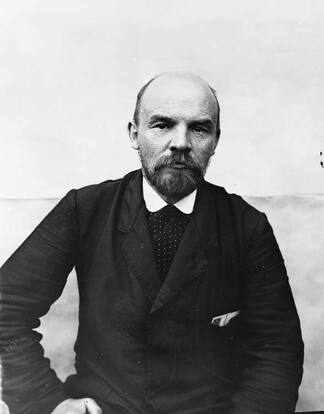
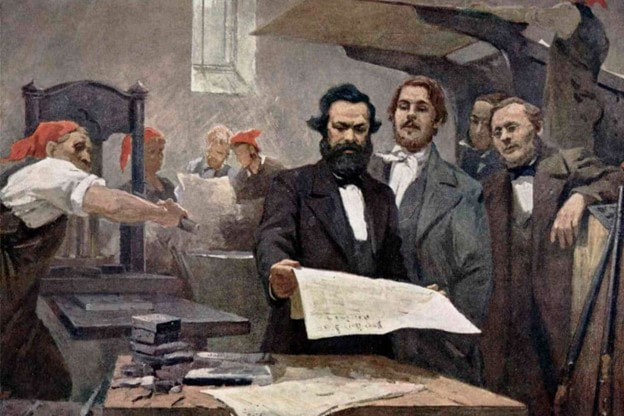
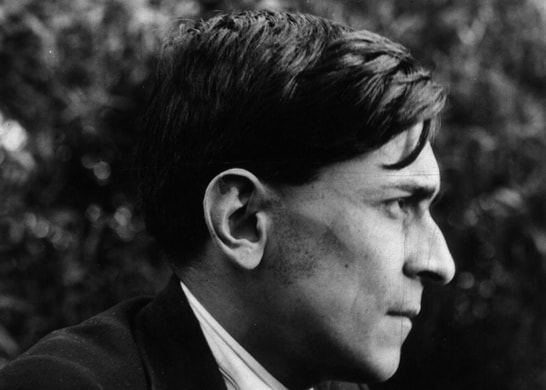
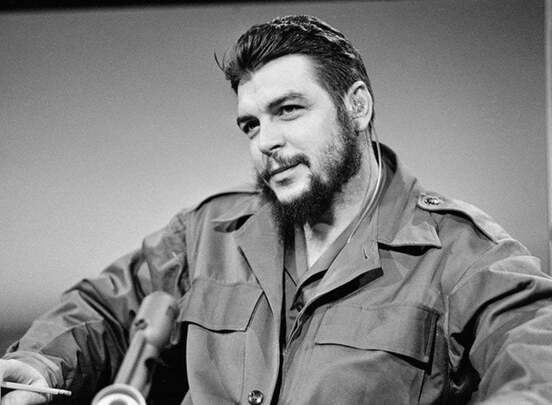
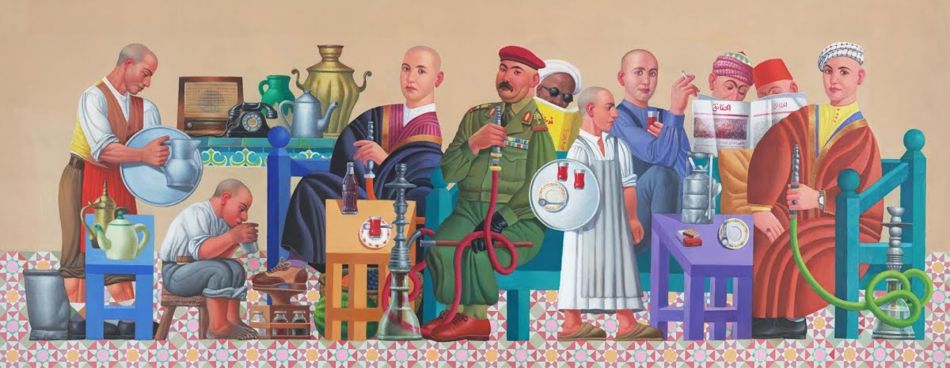


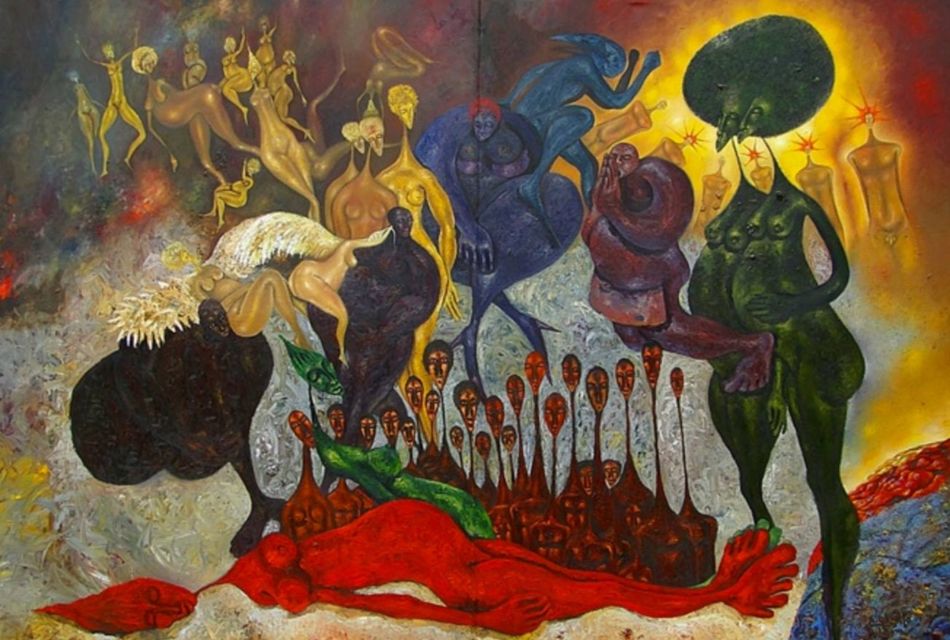

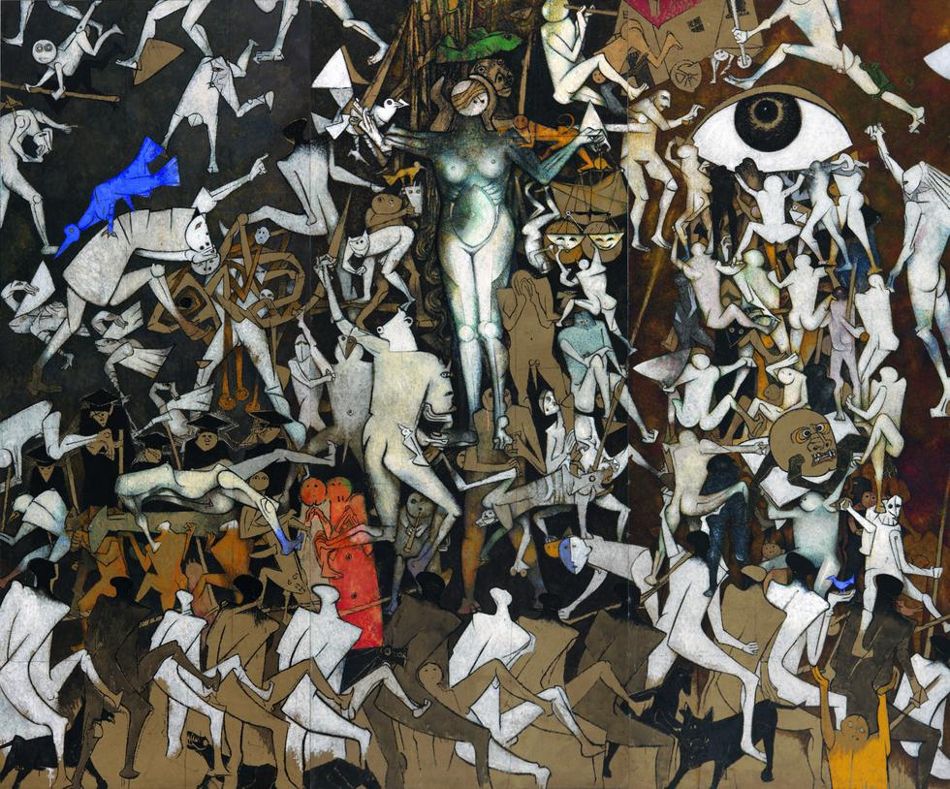
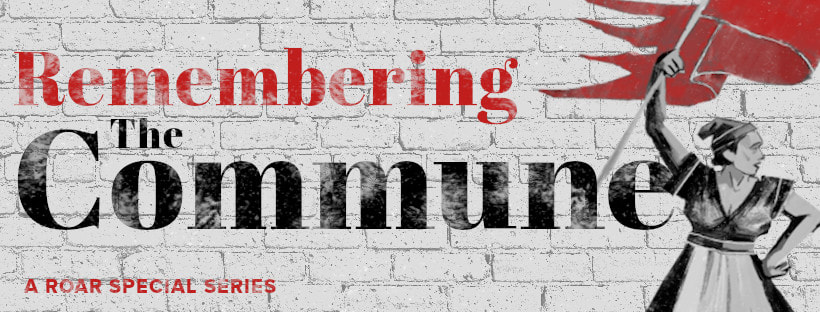

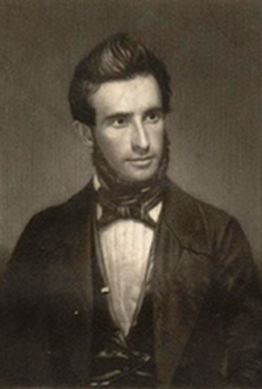
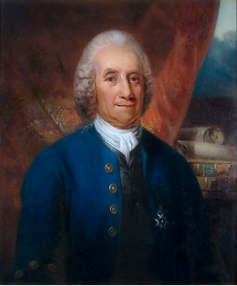

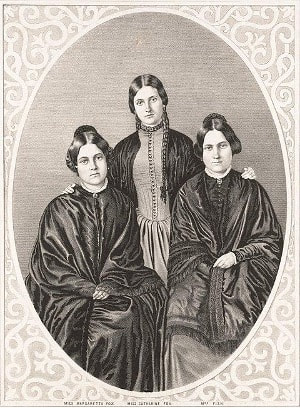






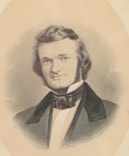


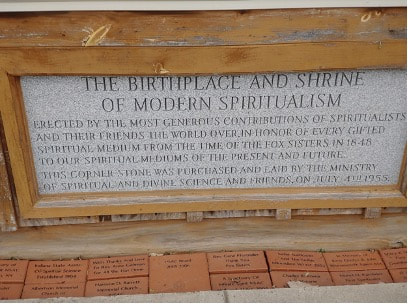

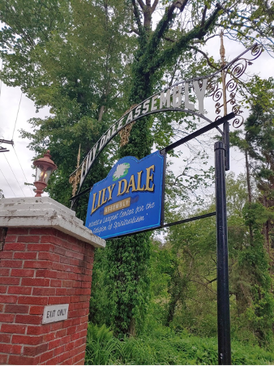
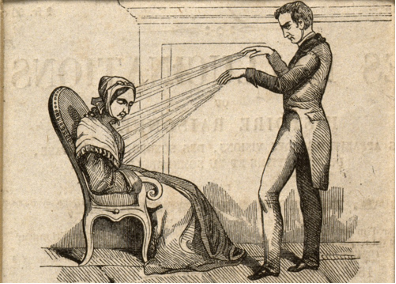


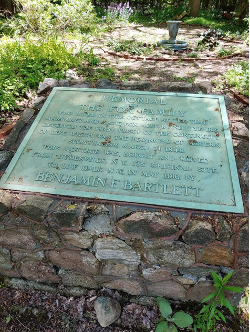



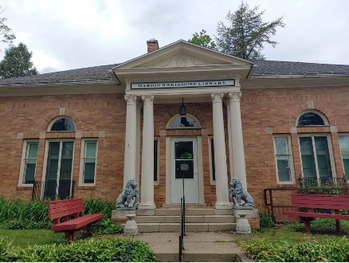

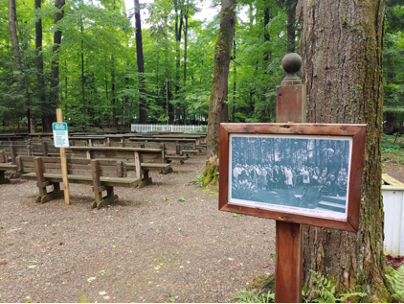







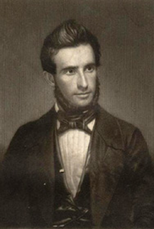









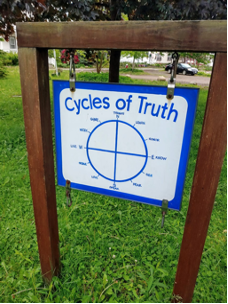






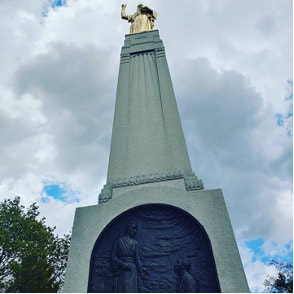





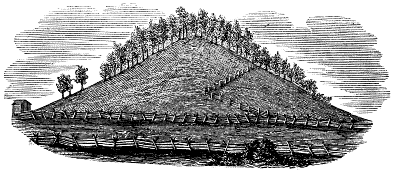
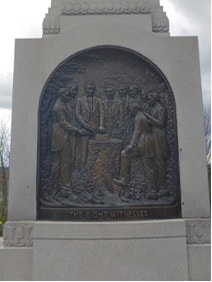

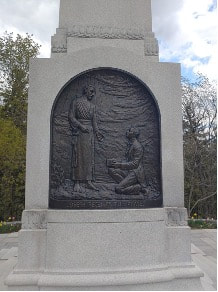
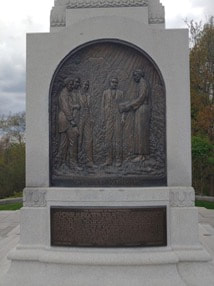
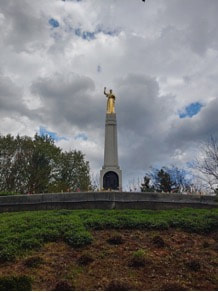
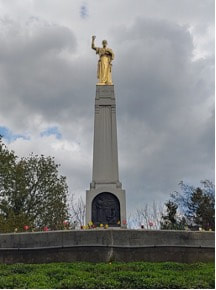
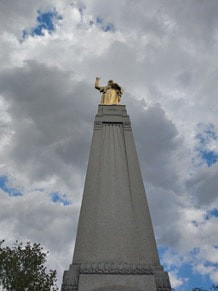







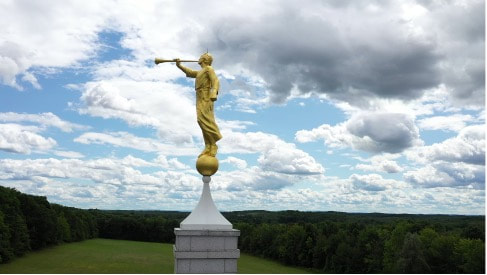





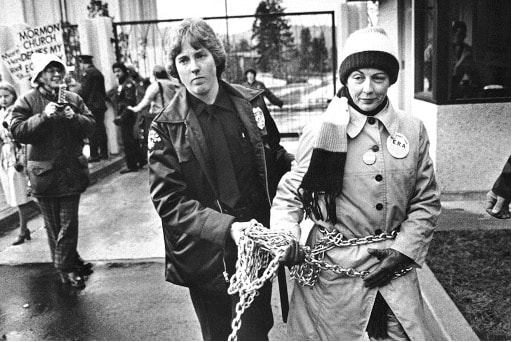





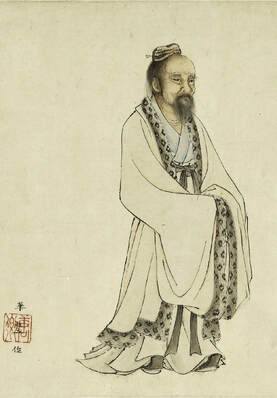

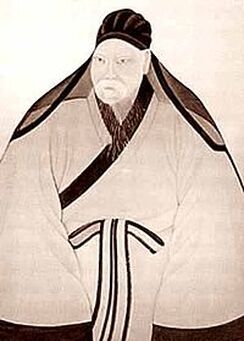

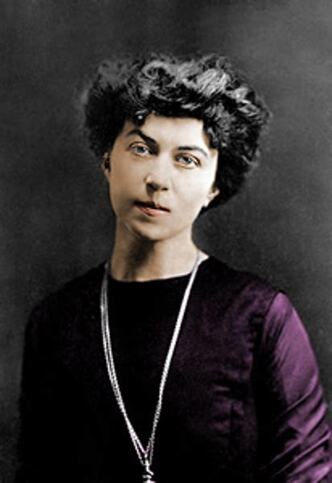
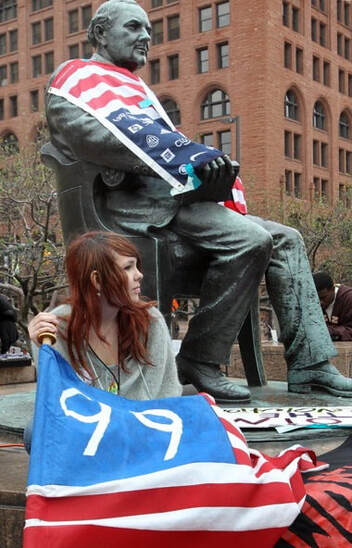

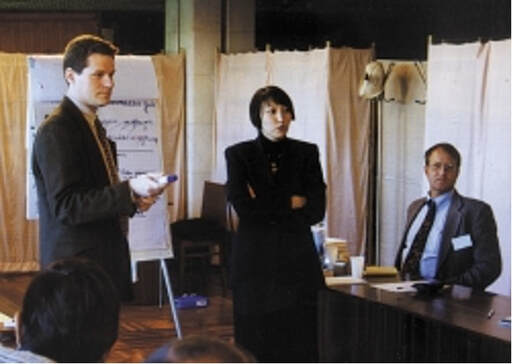

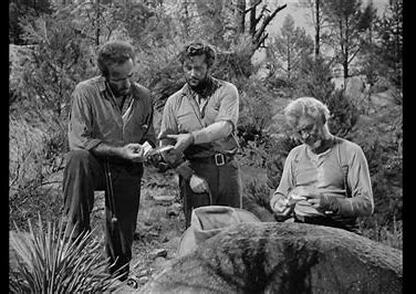

 RSS Feed
RSS Feed